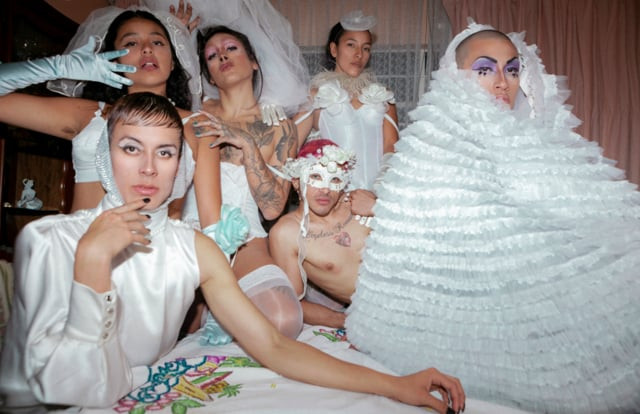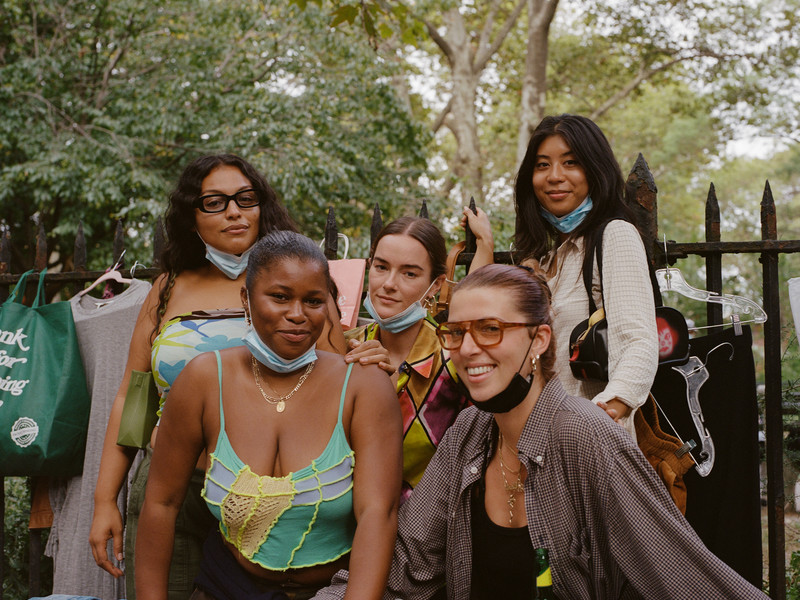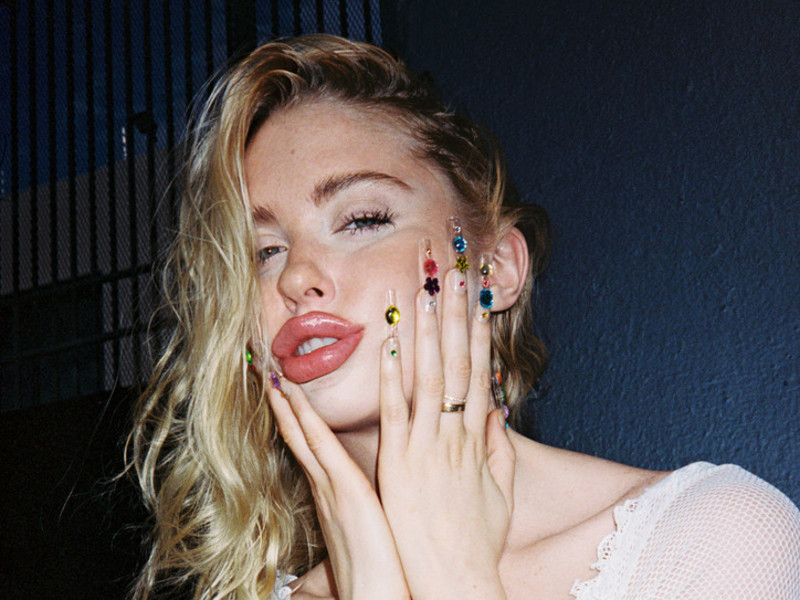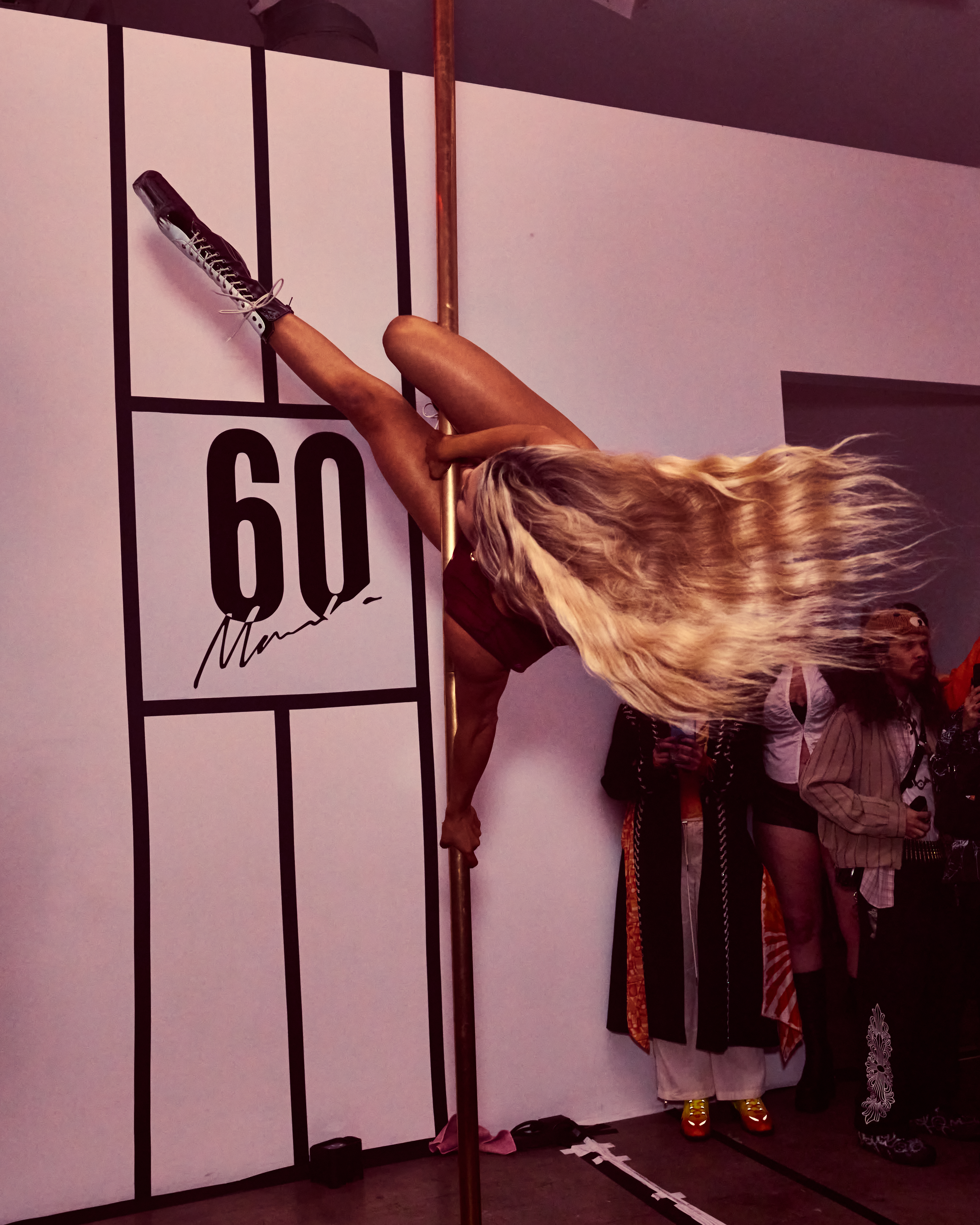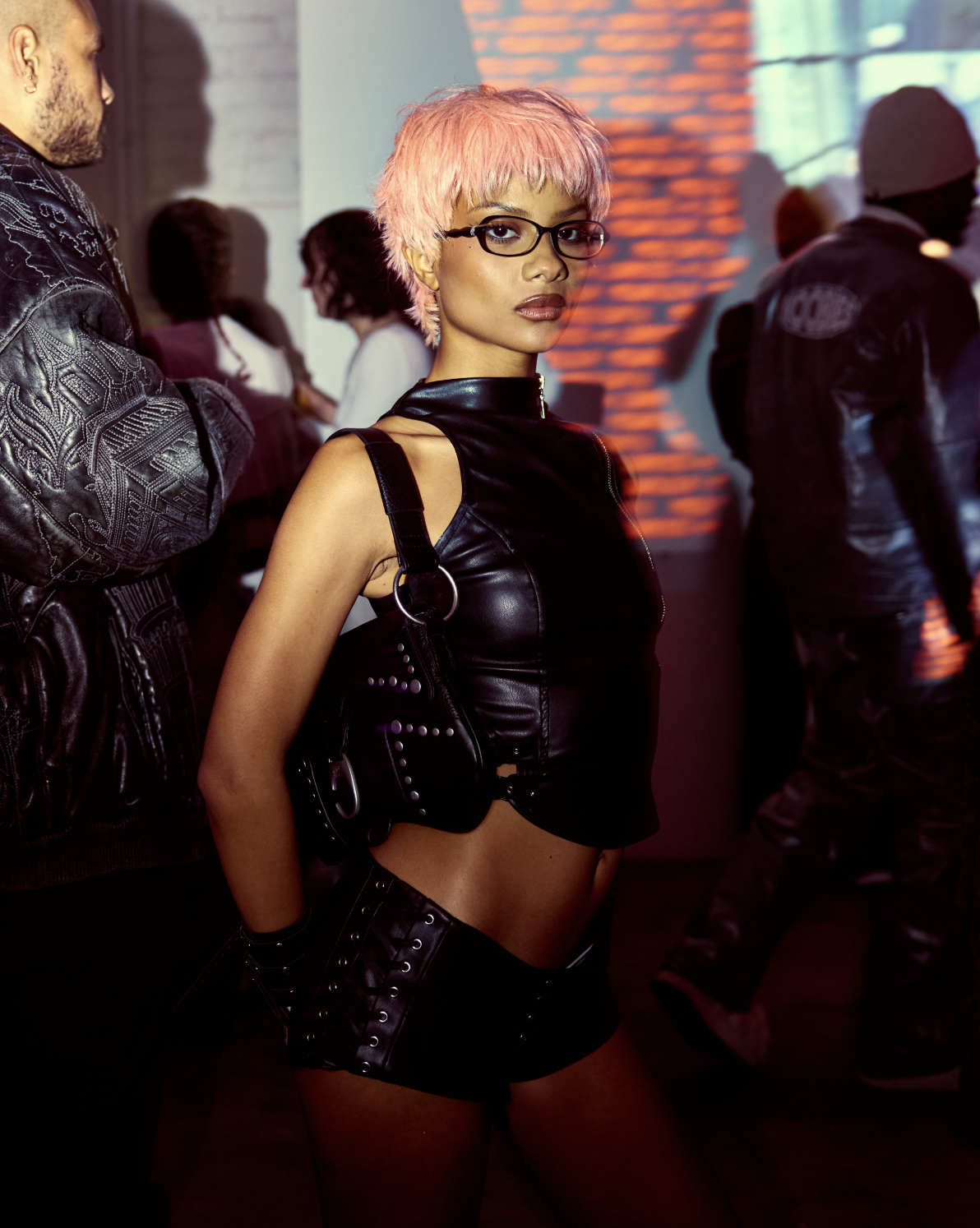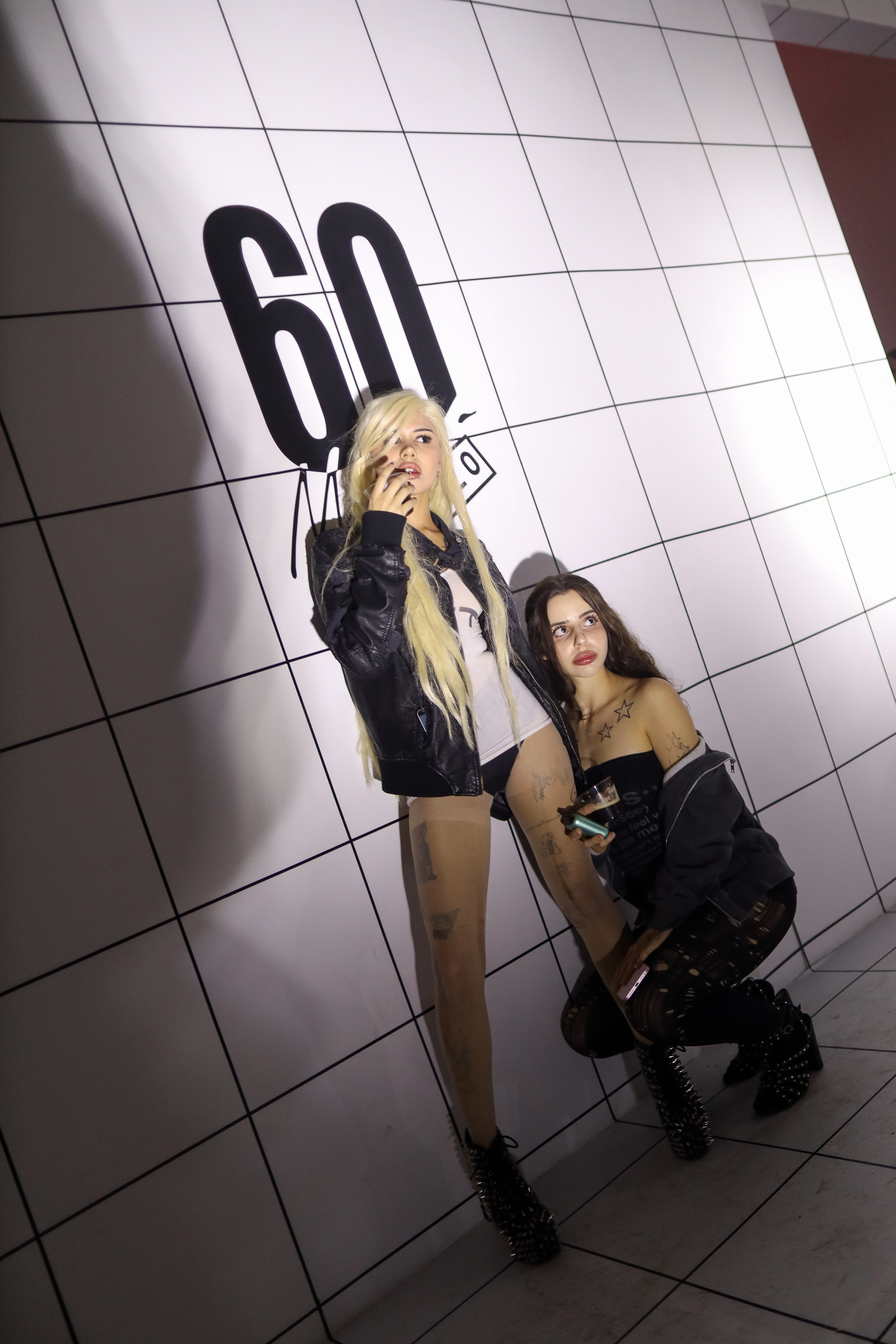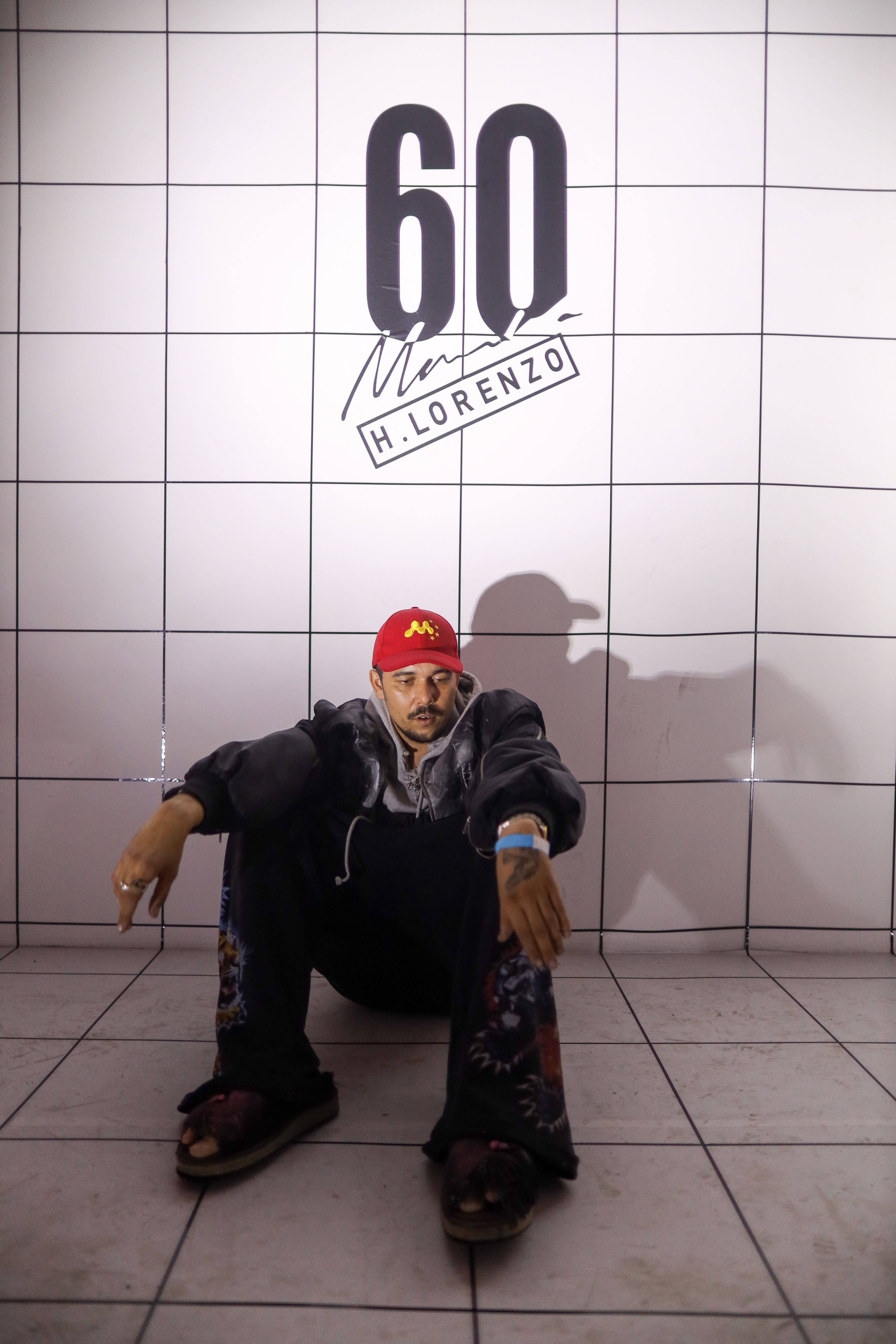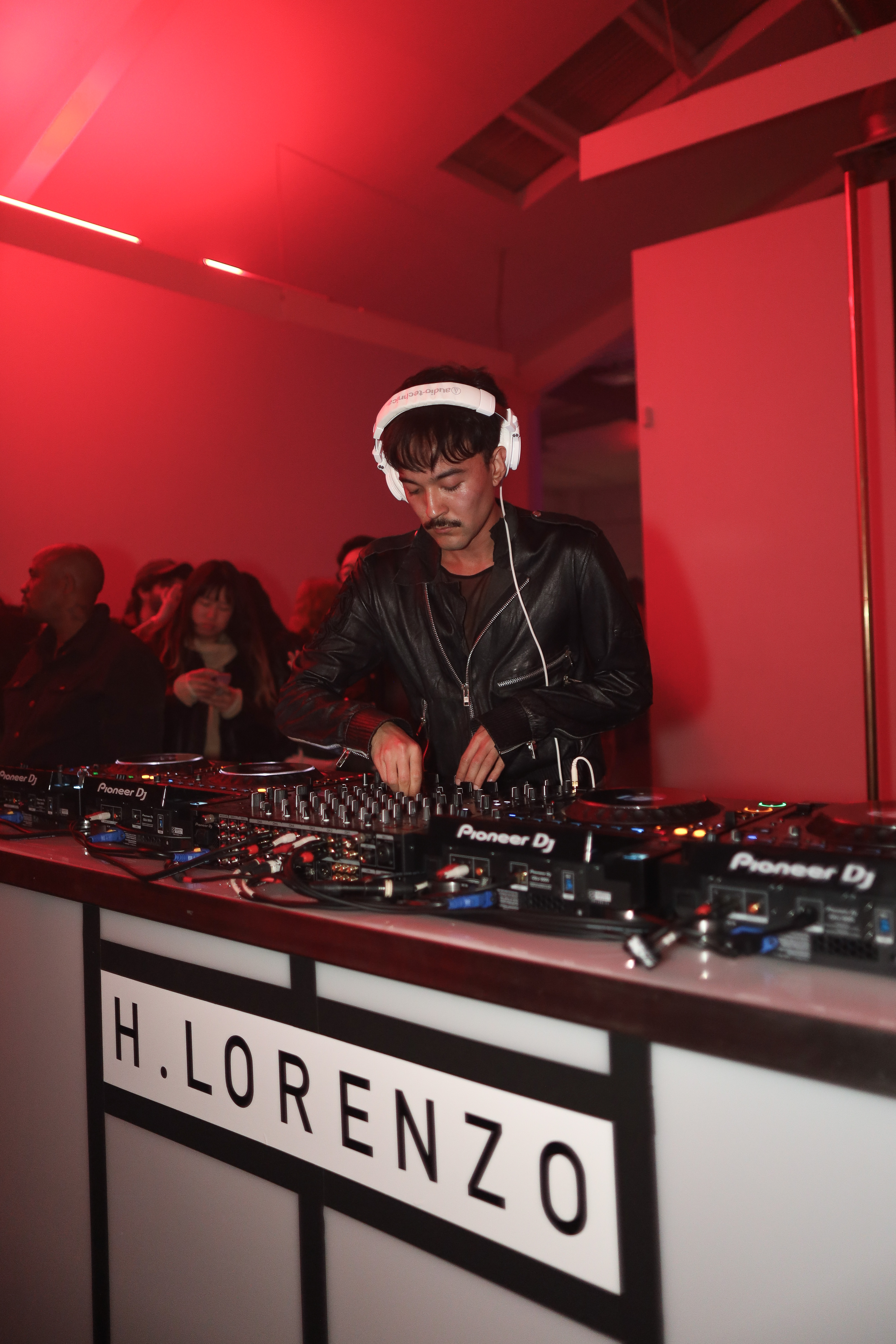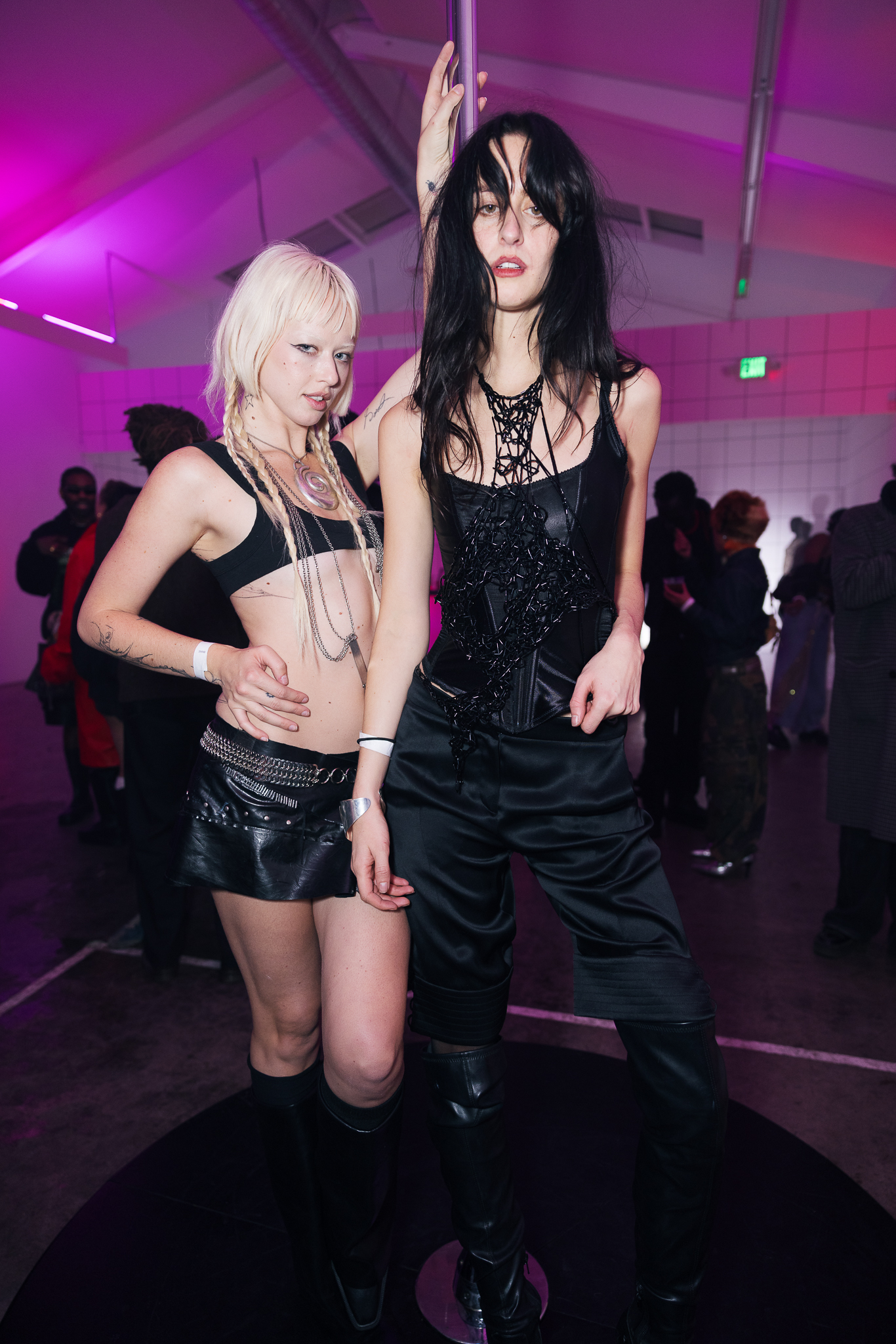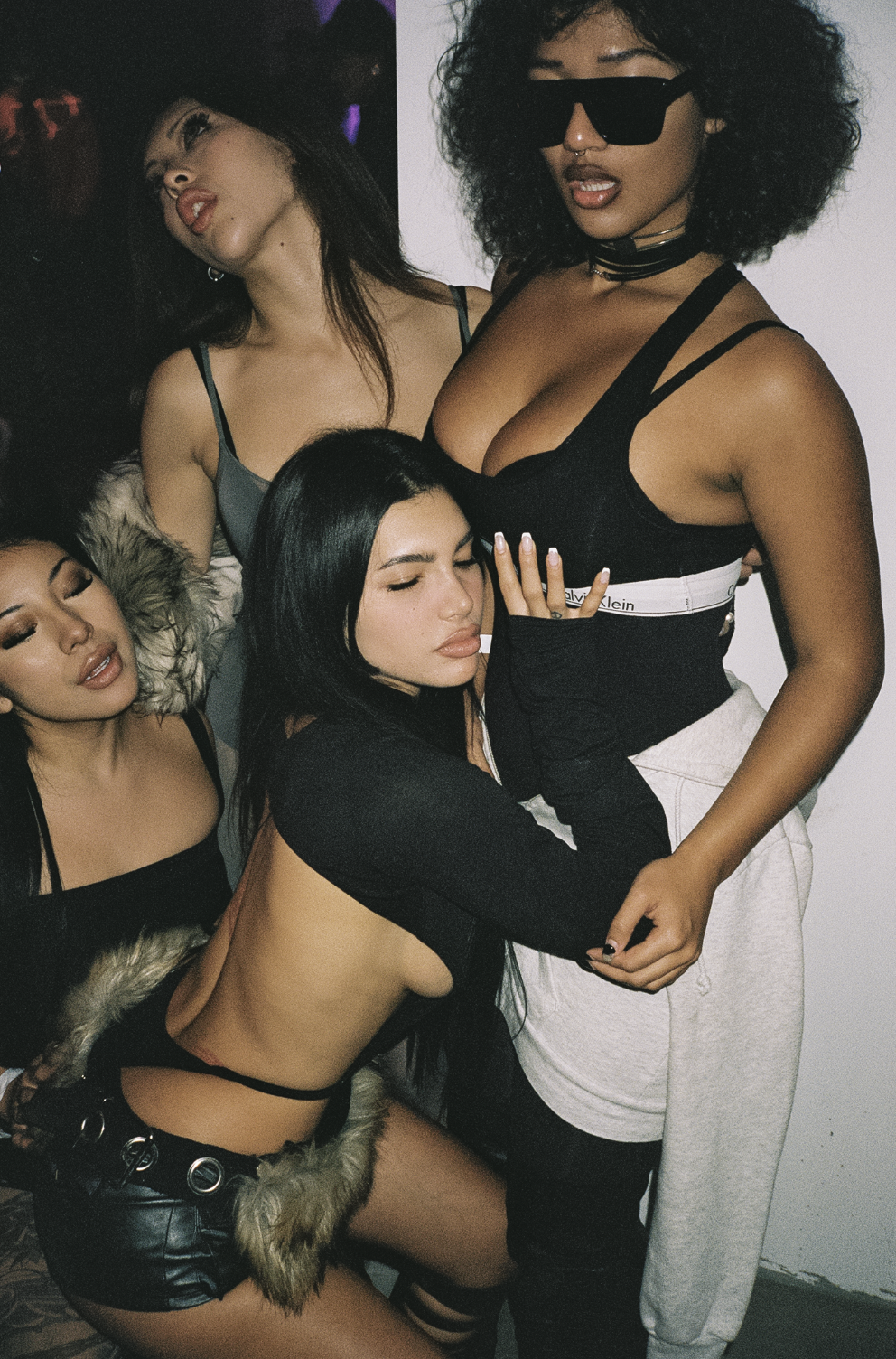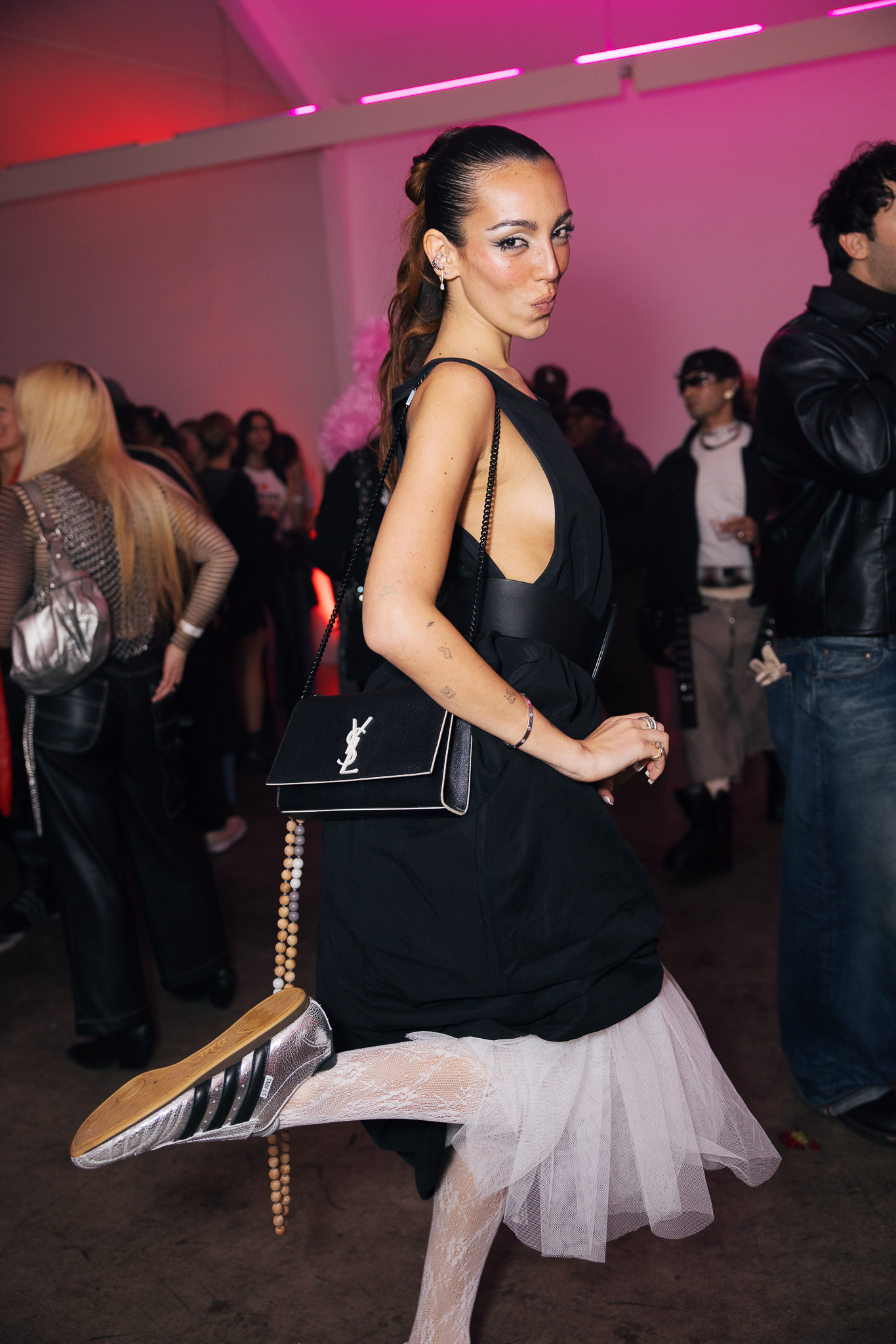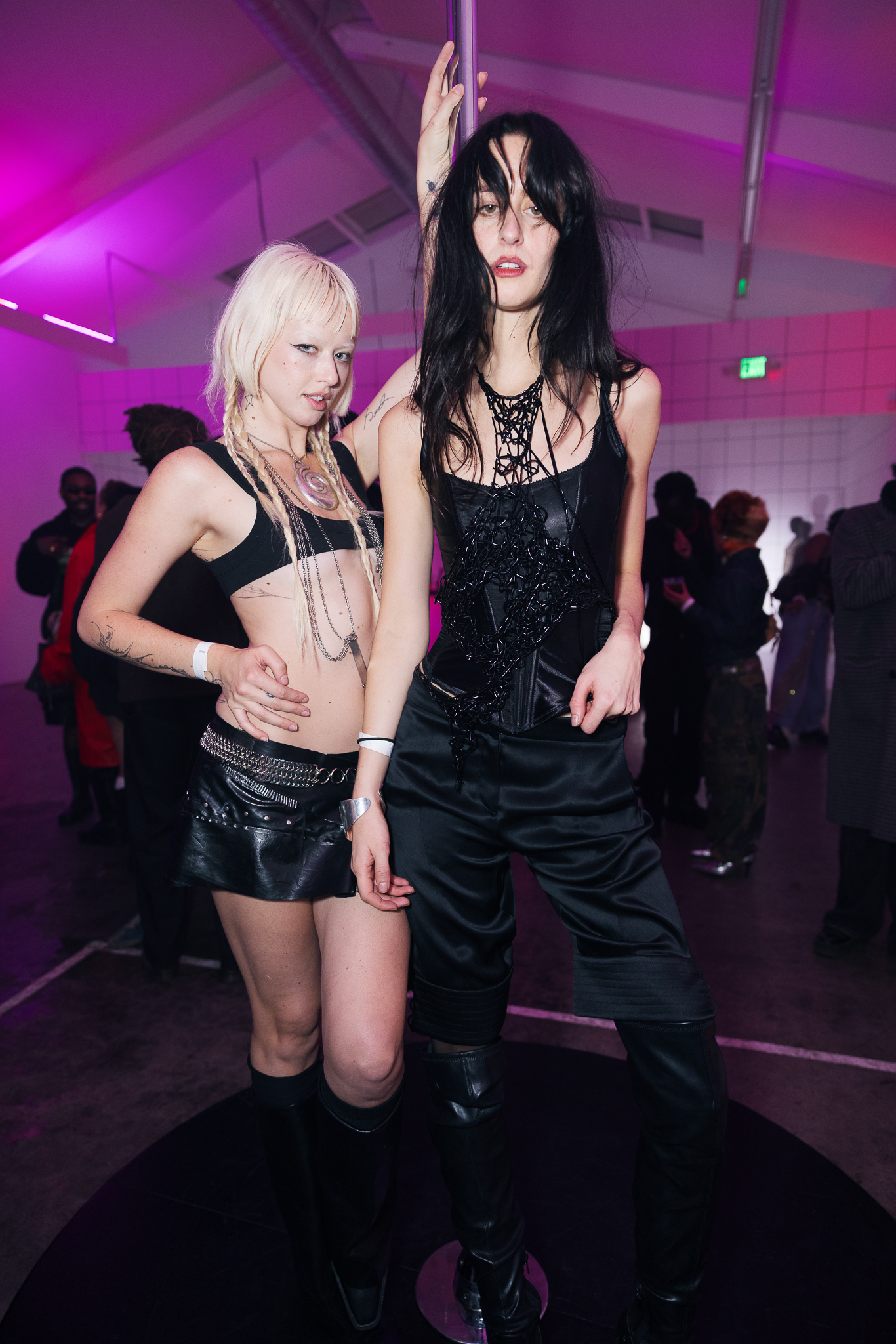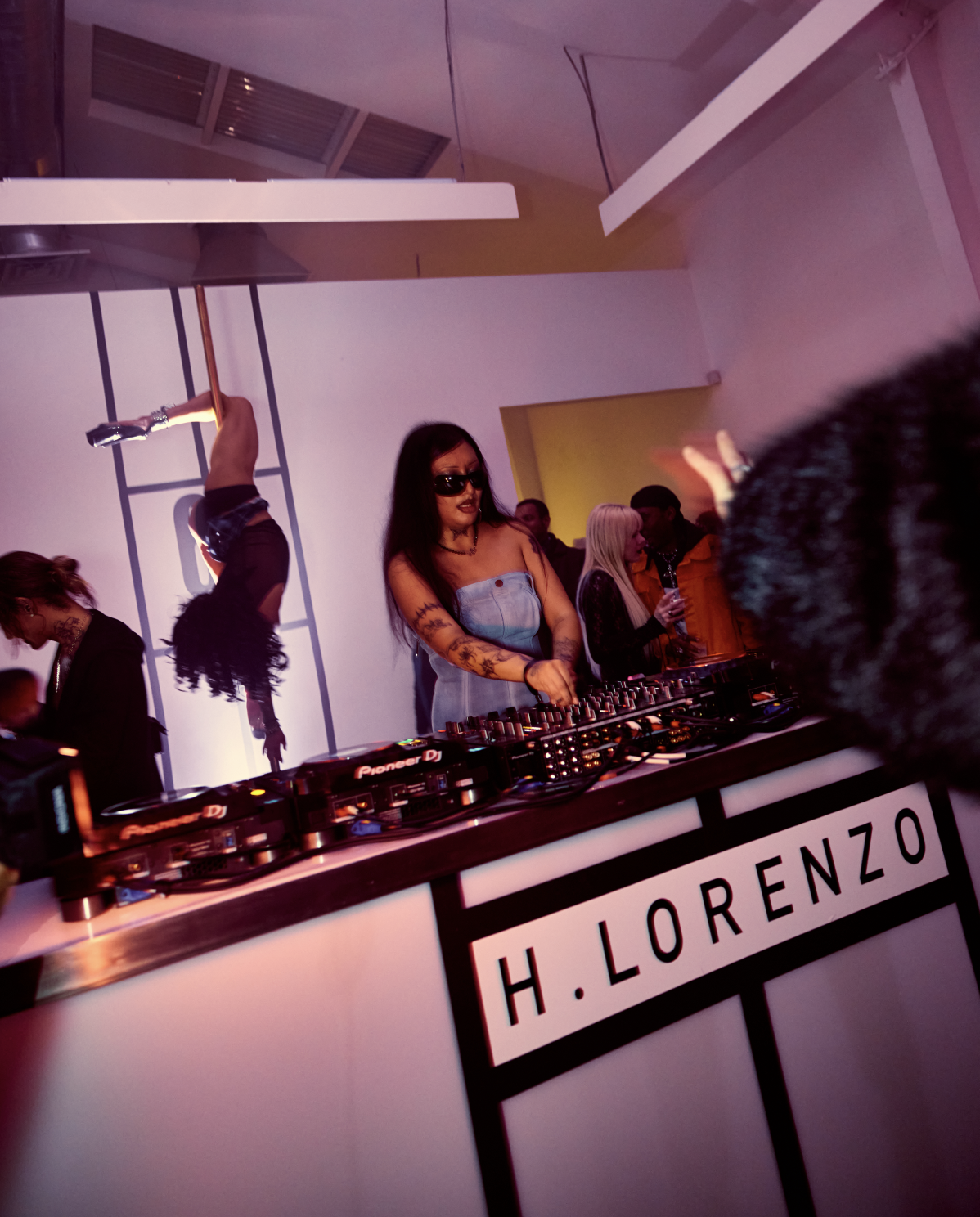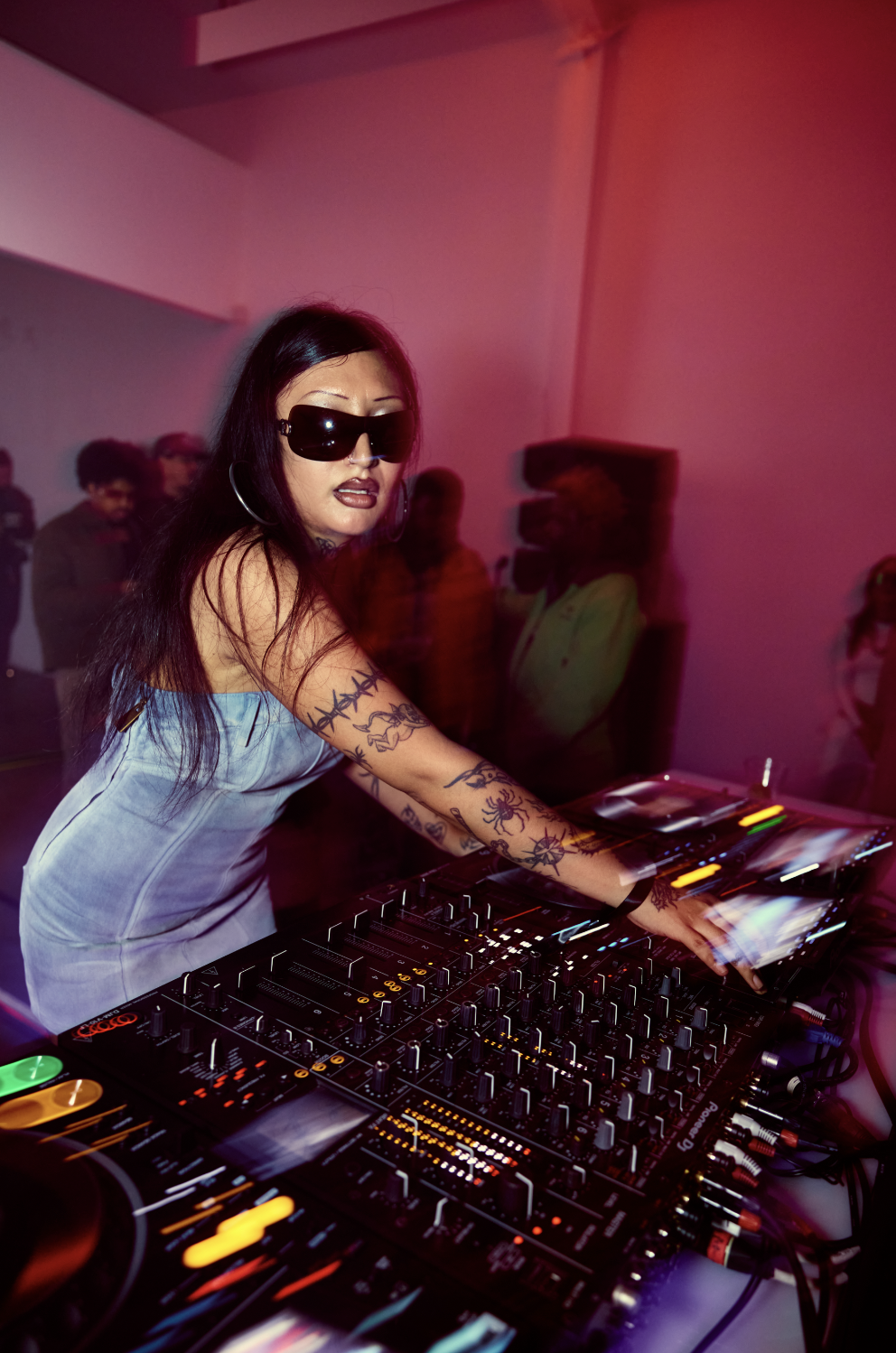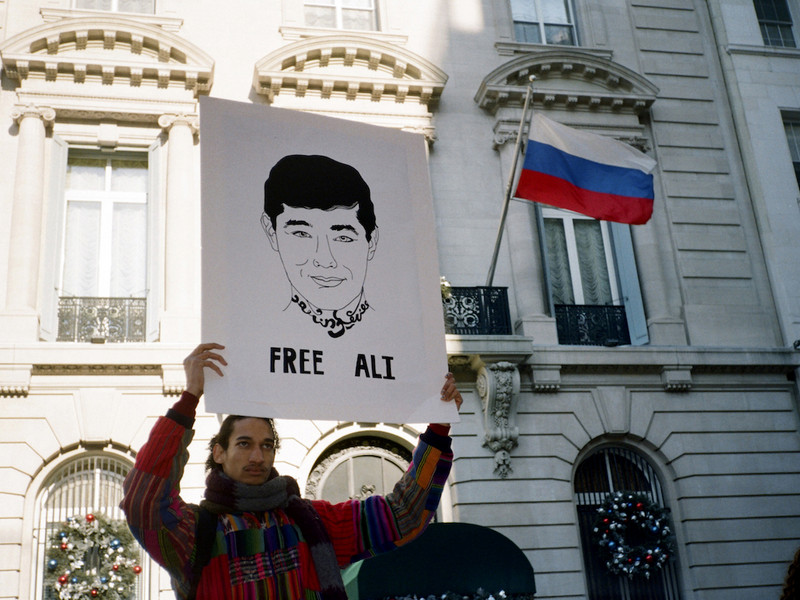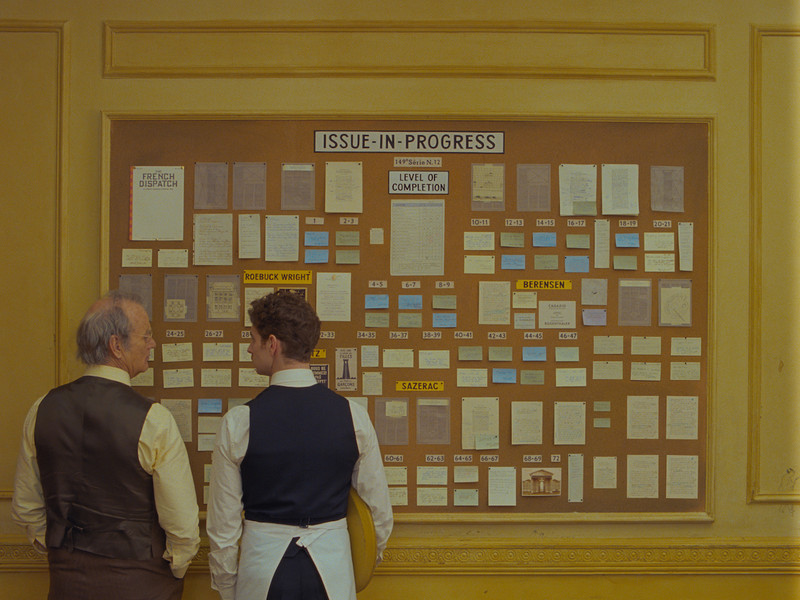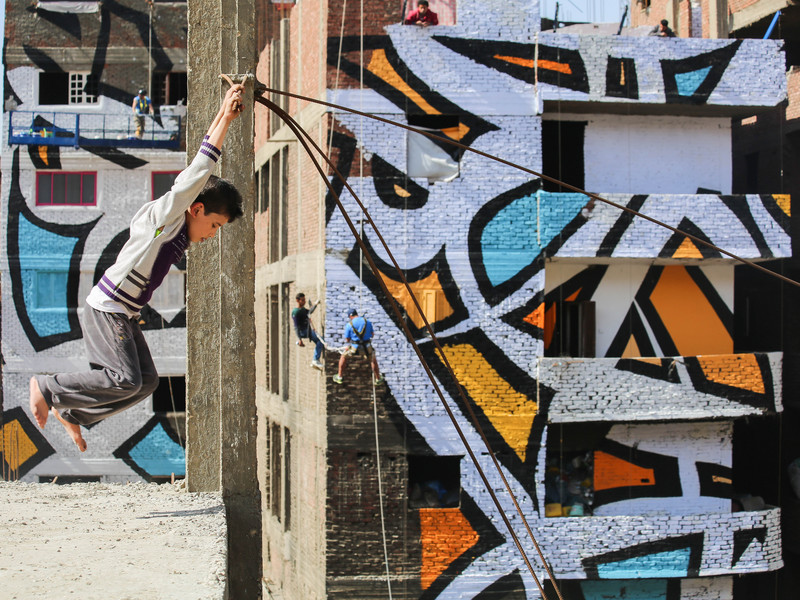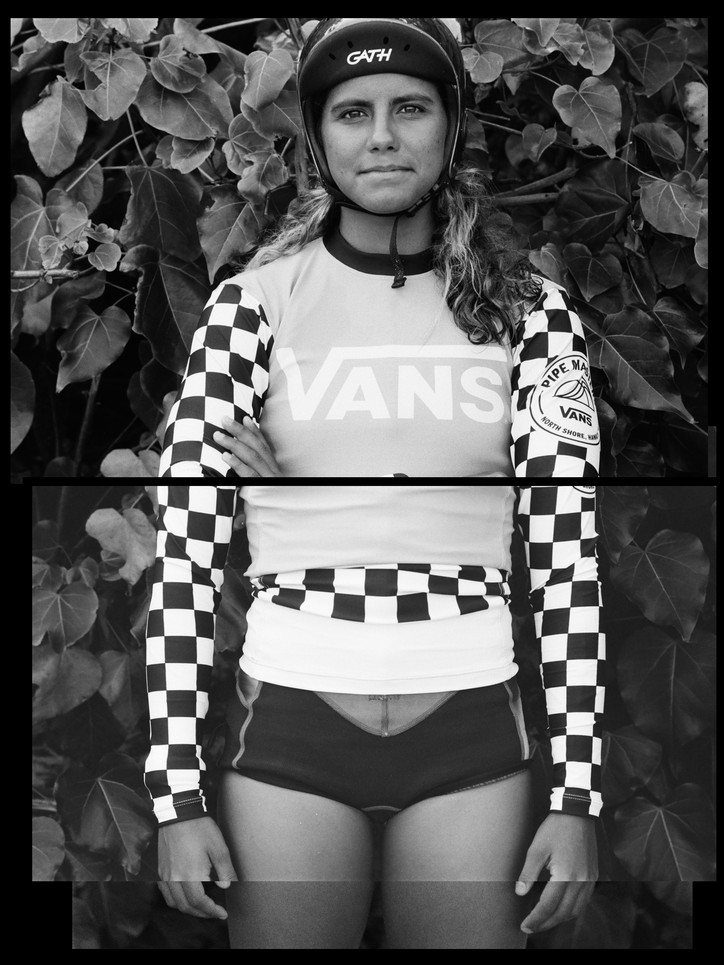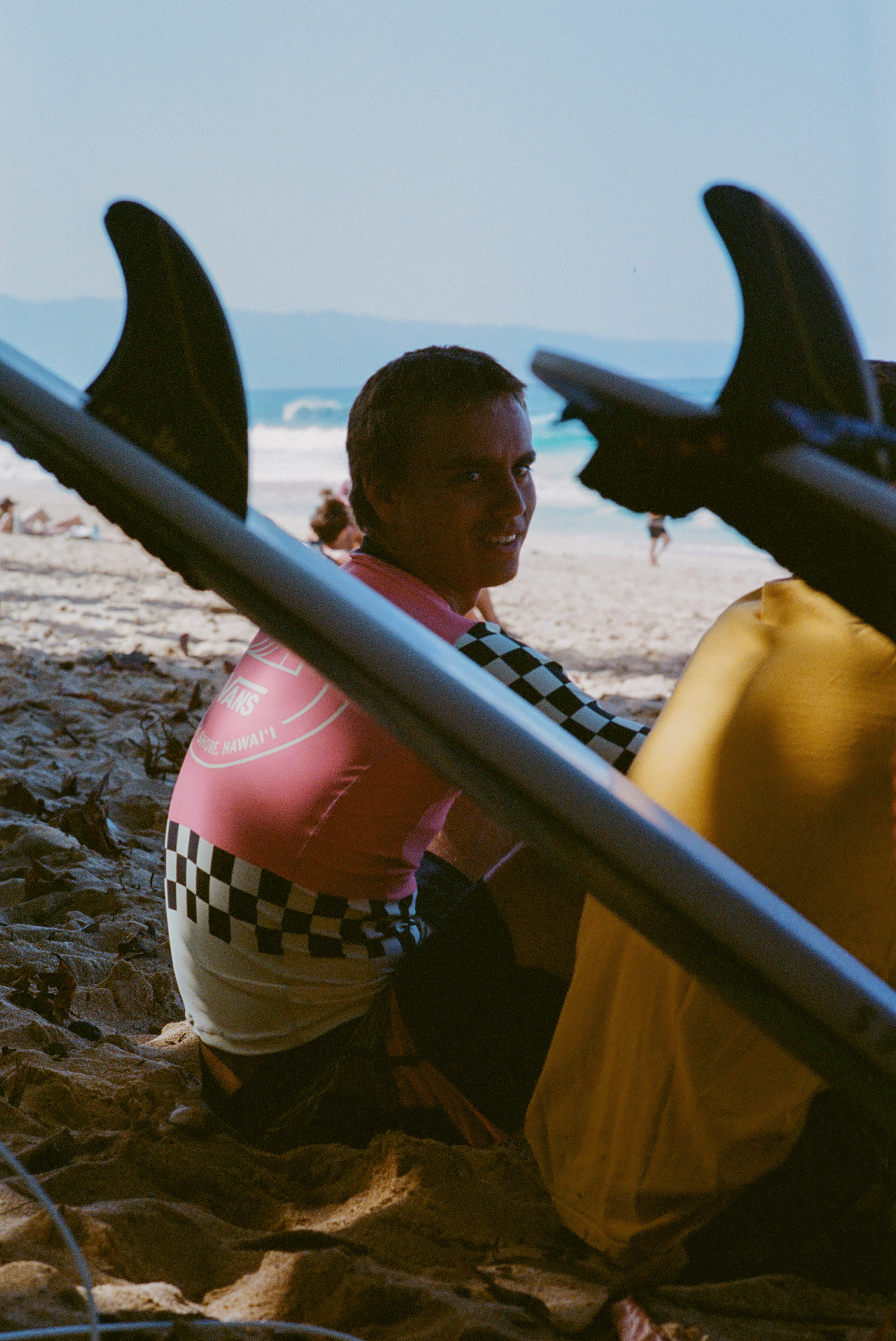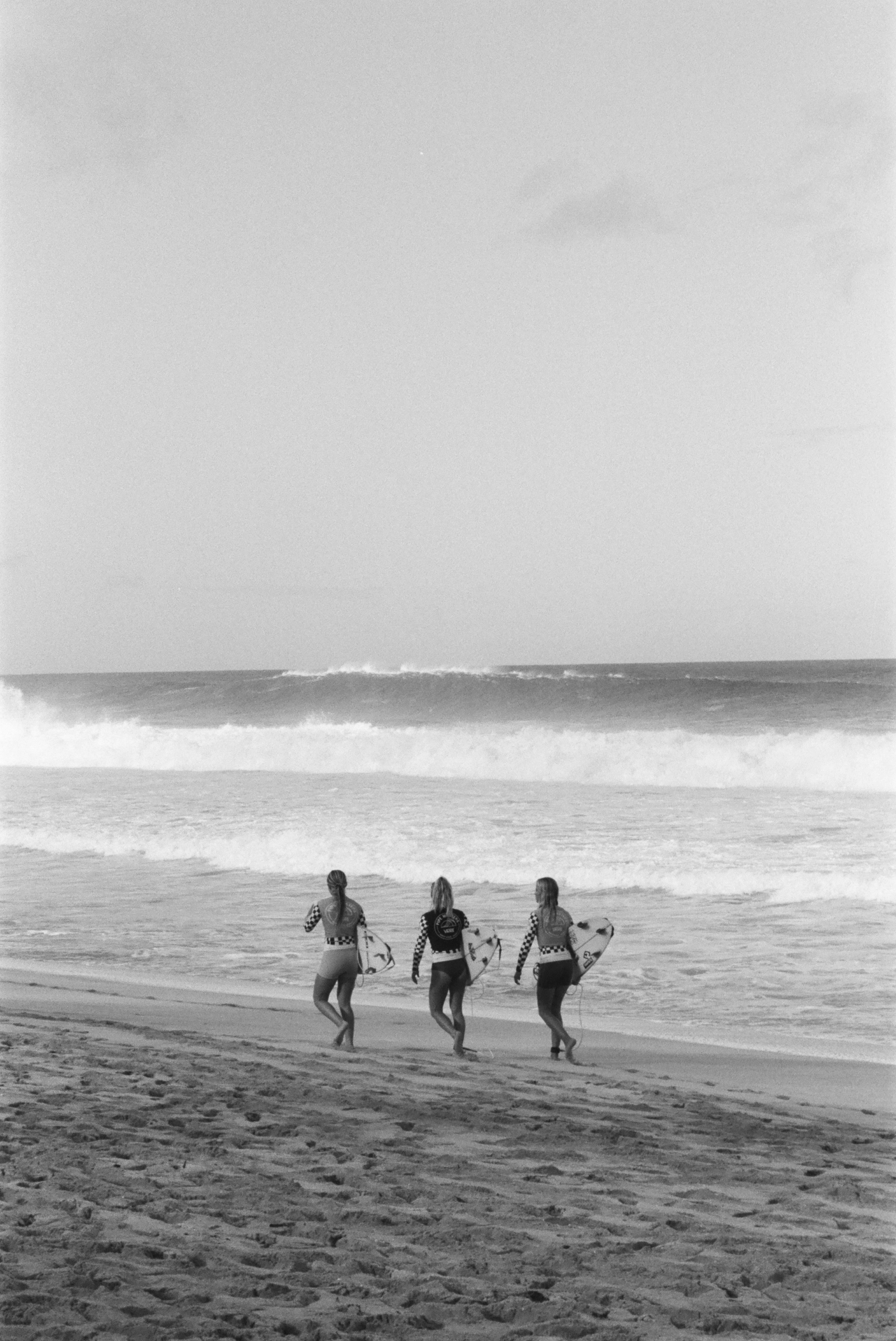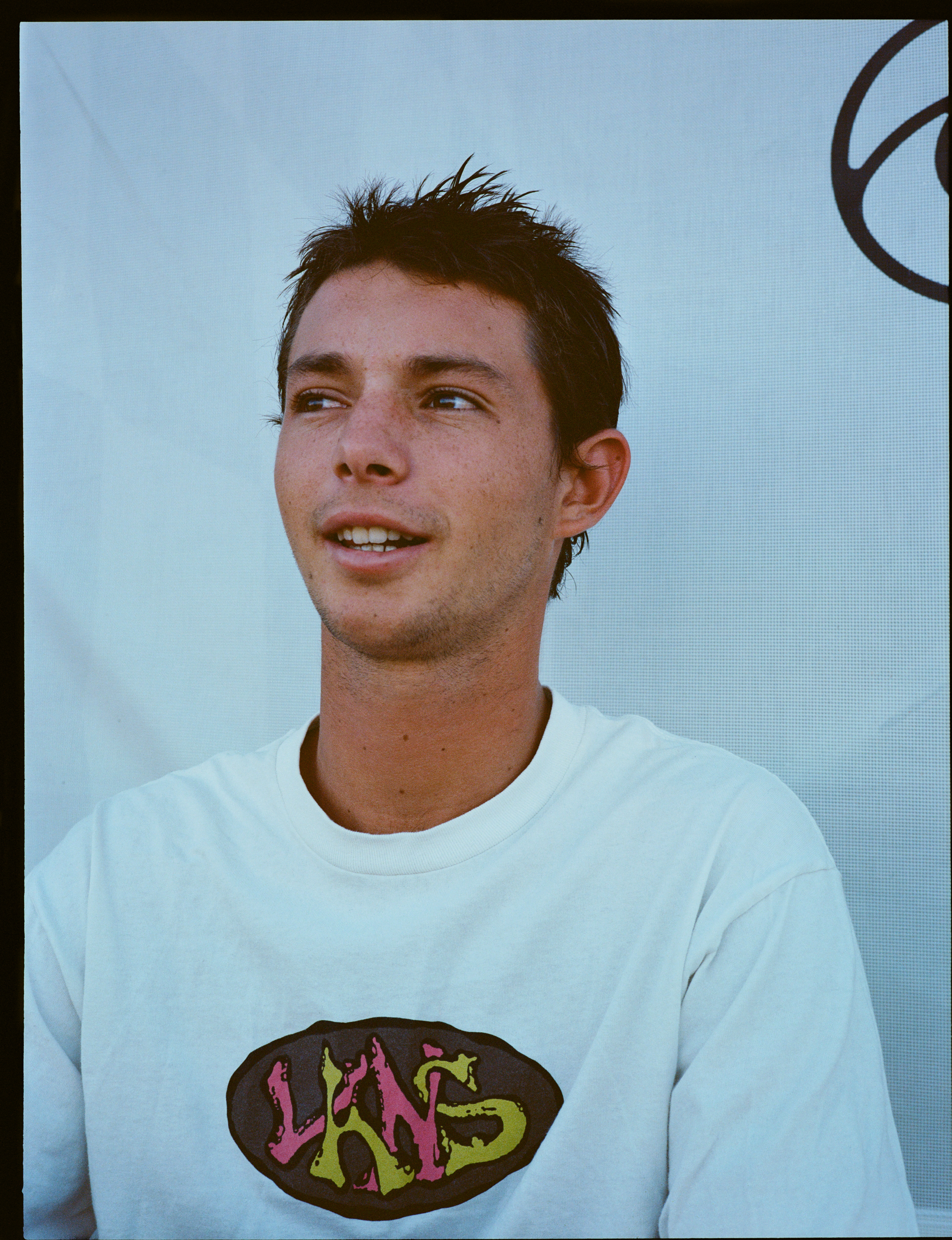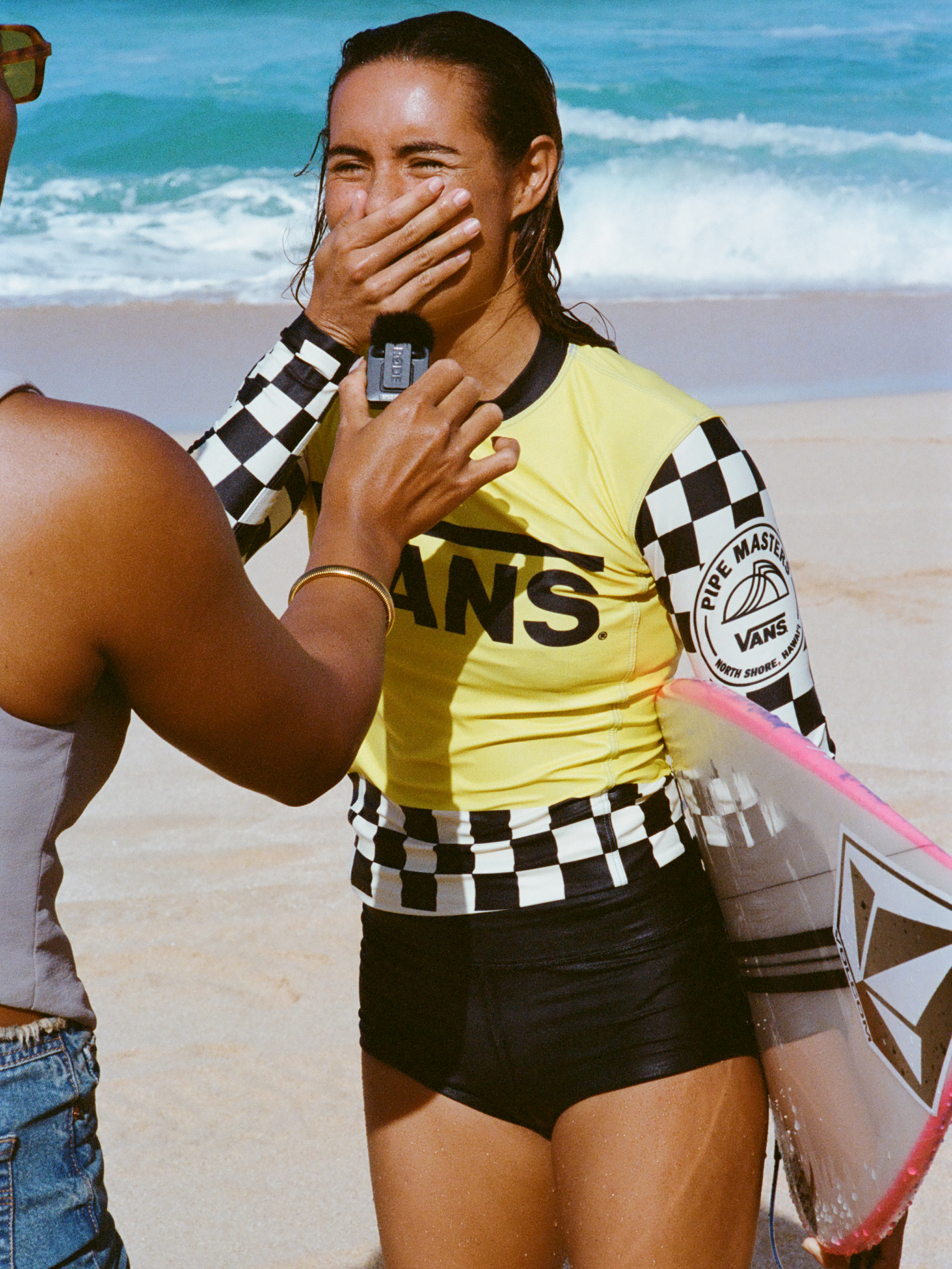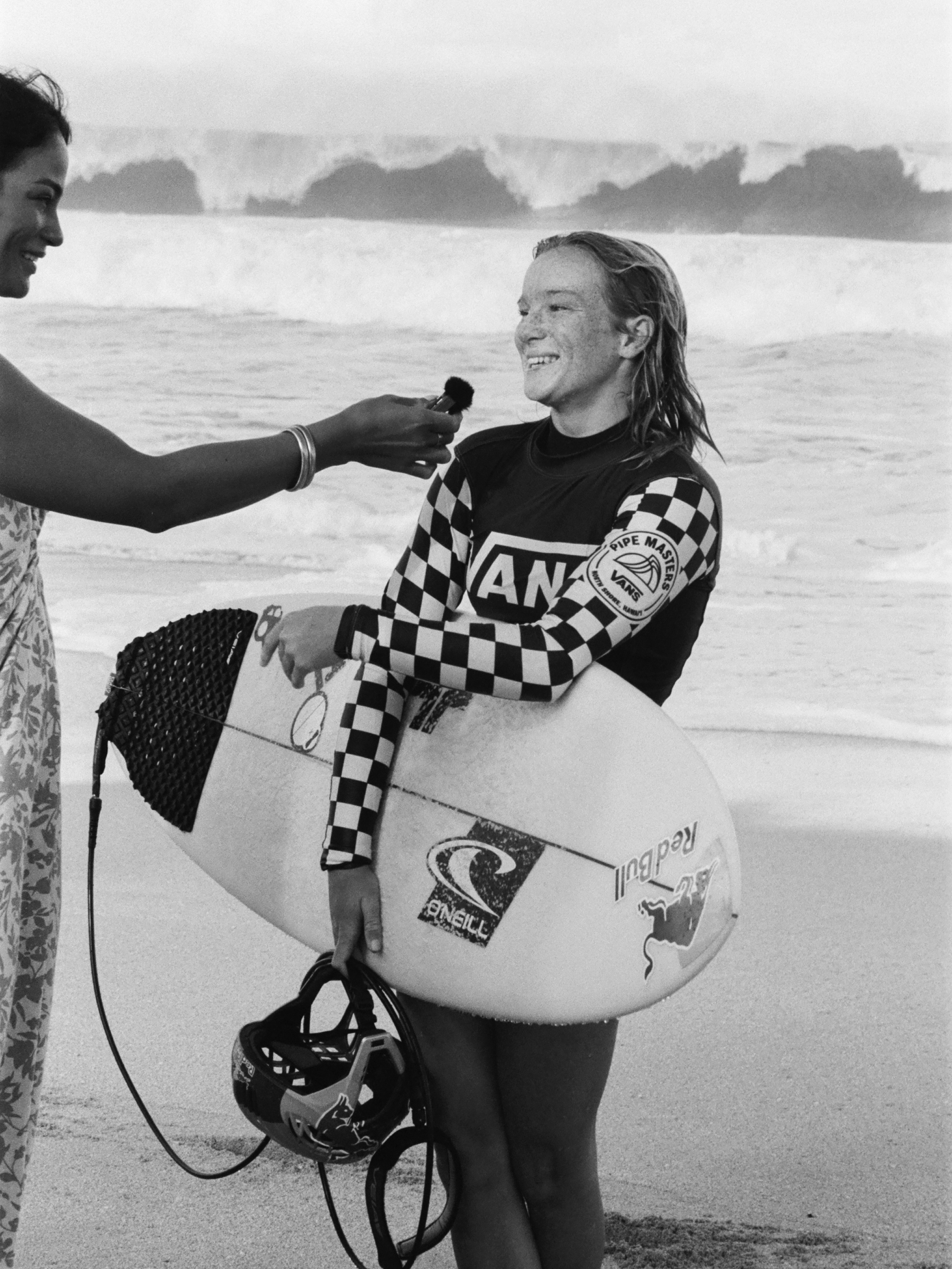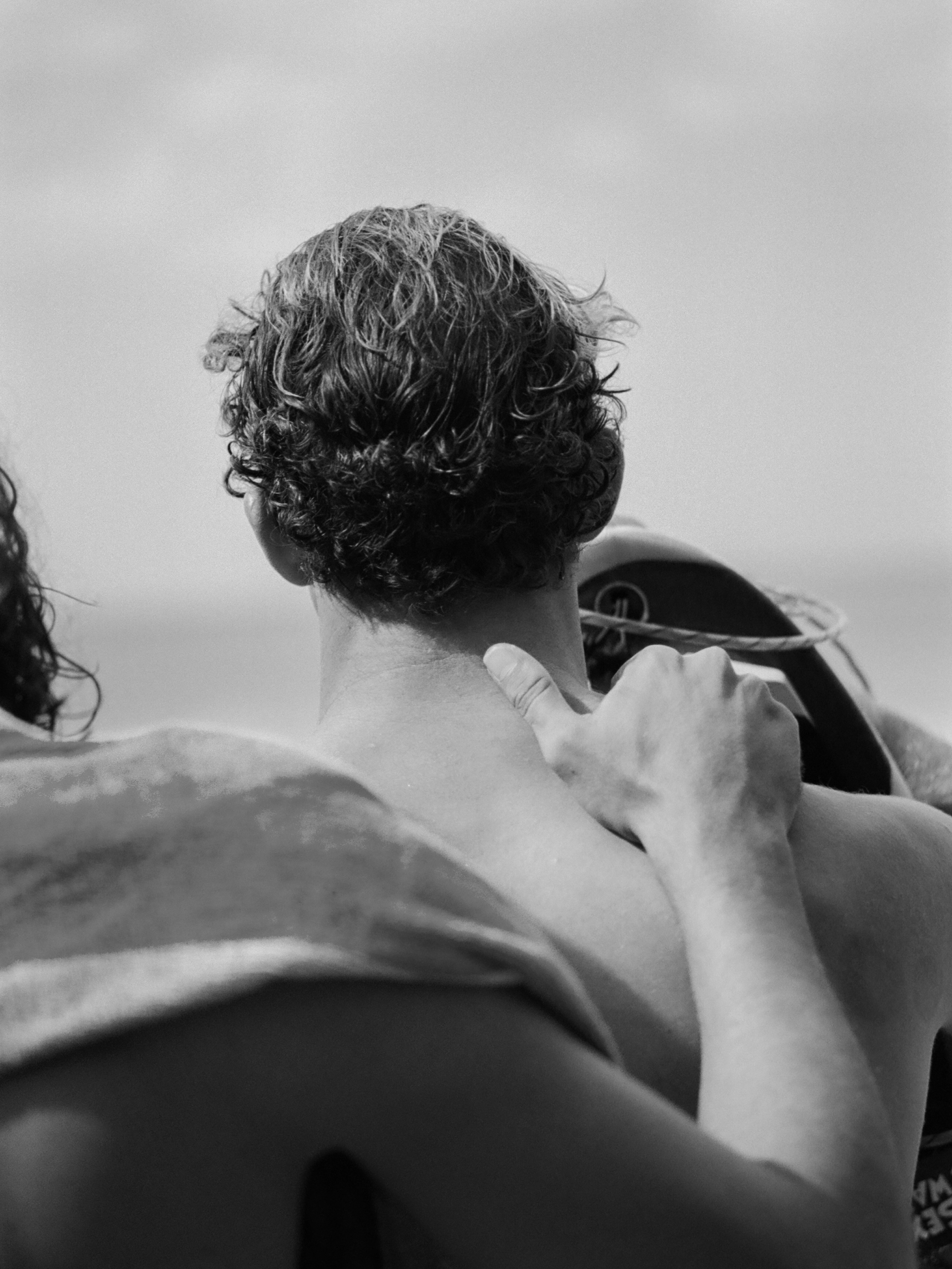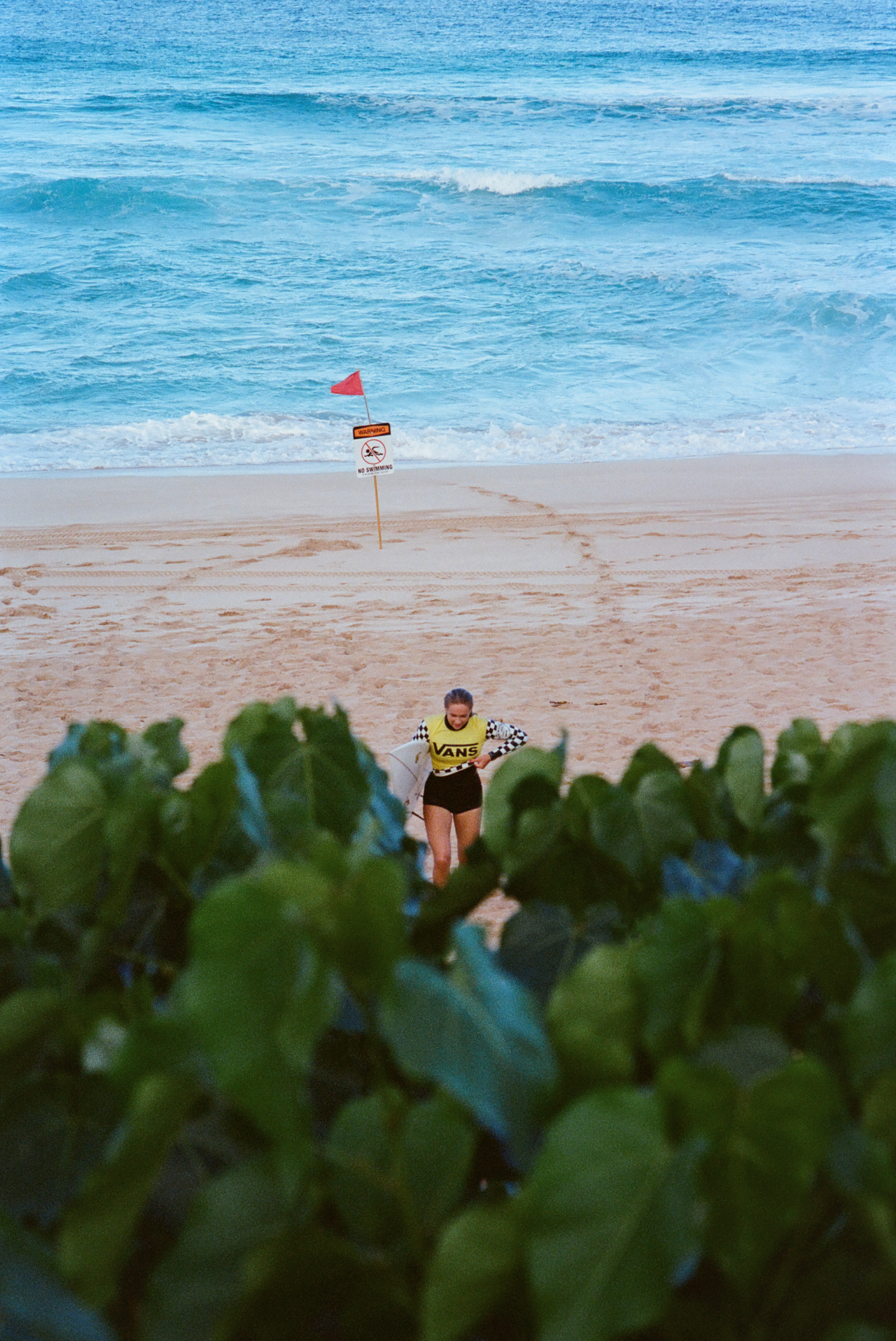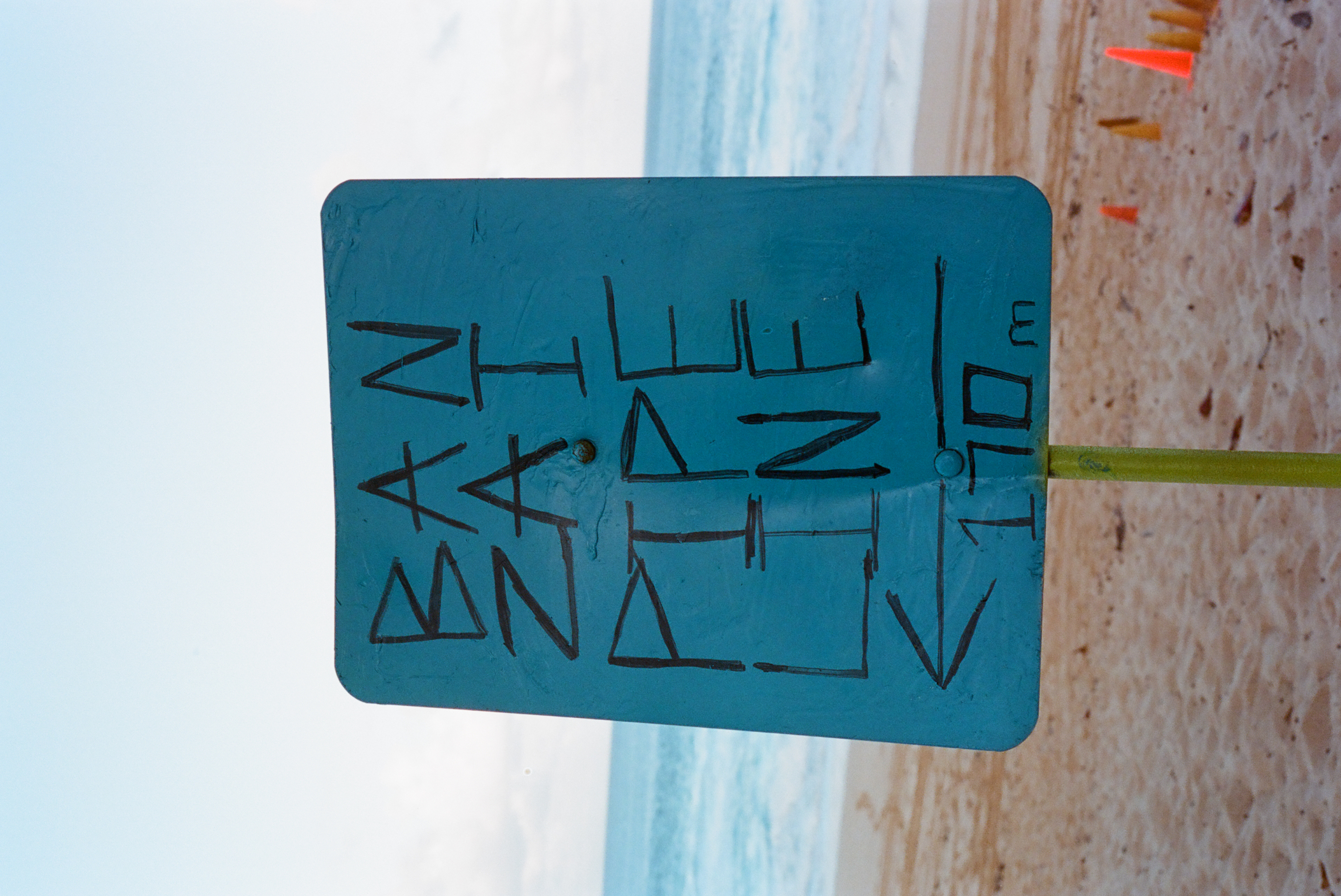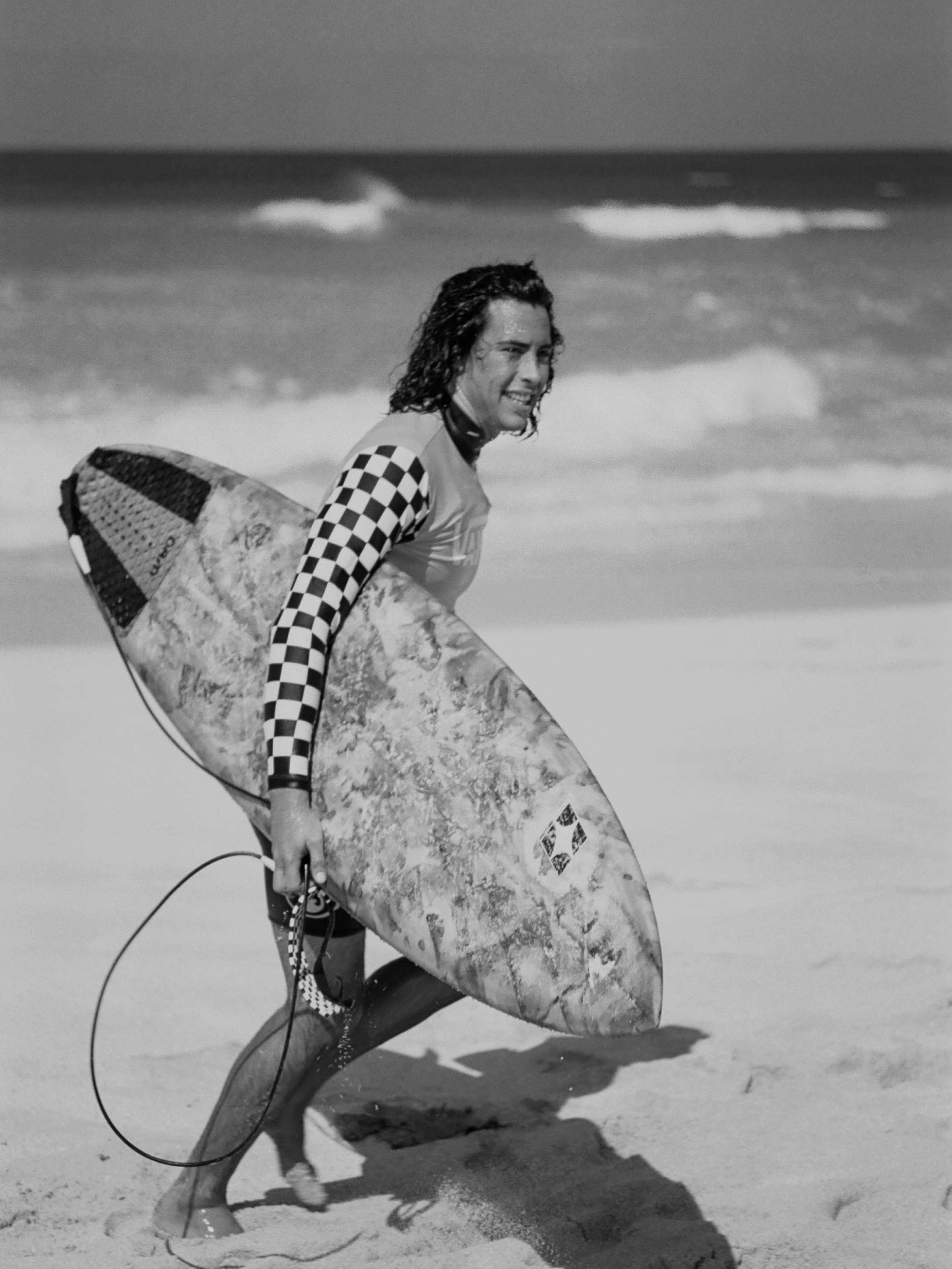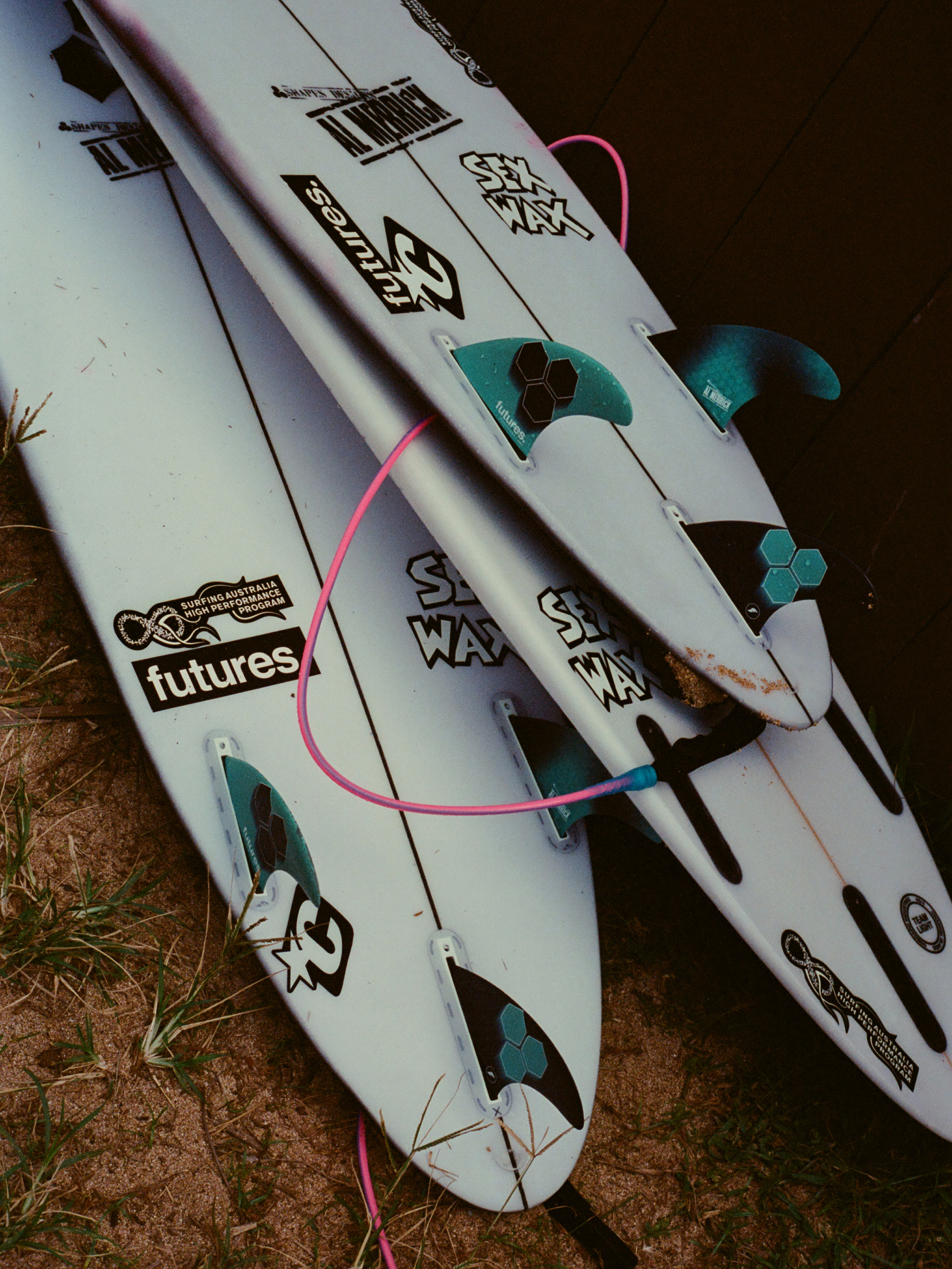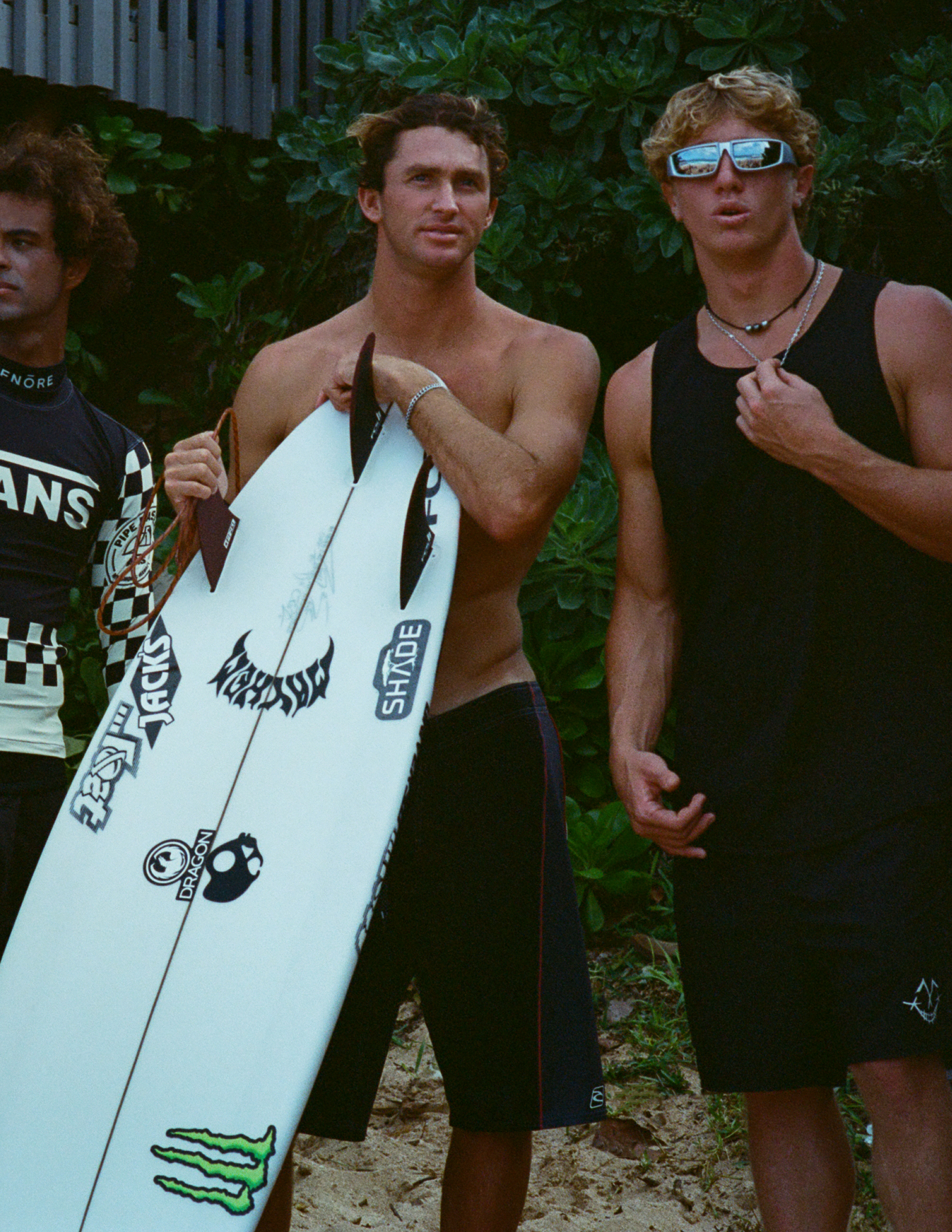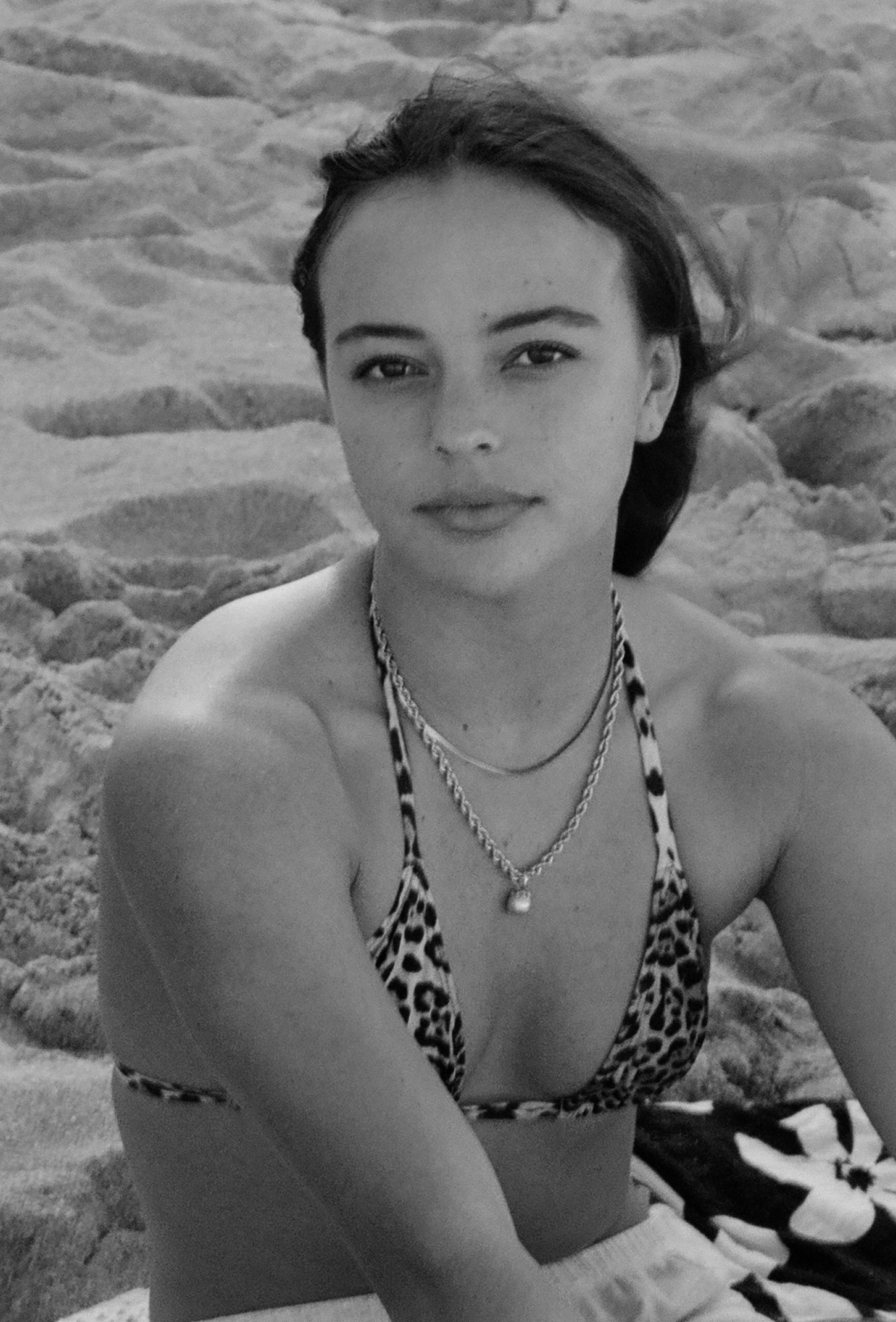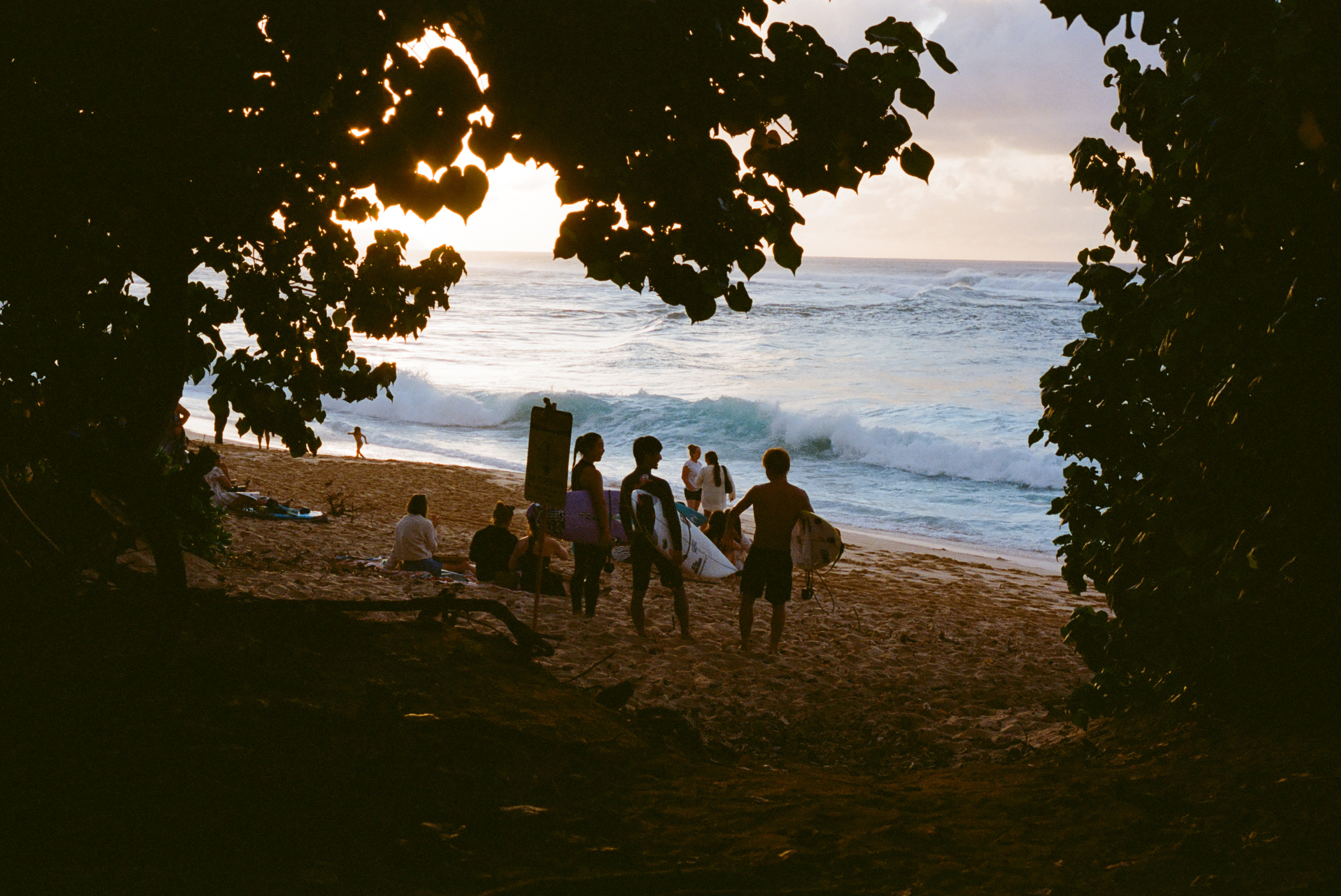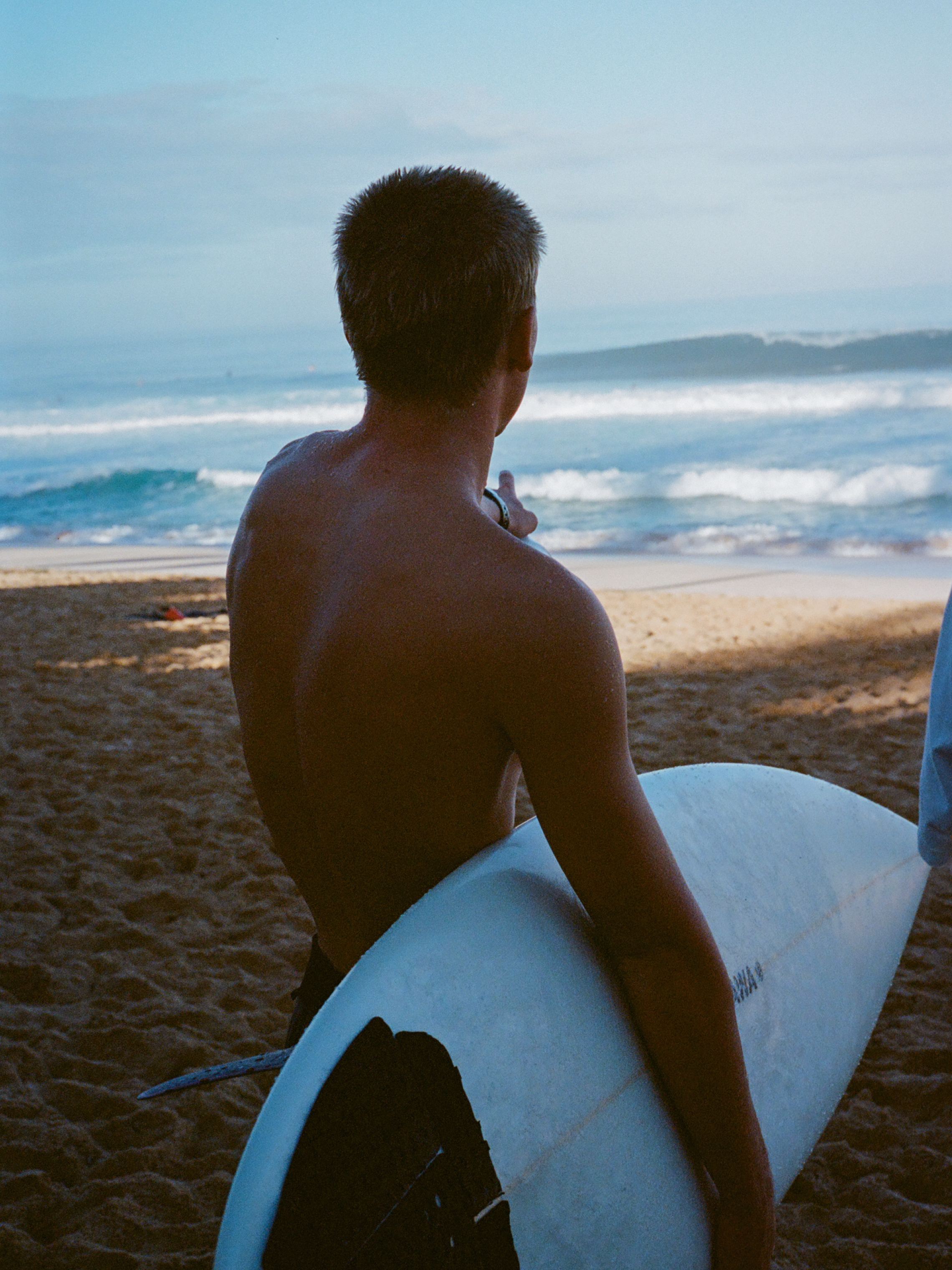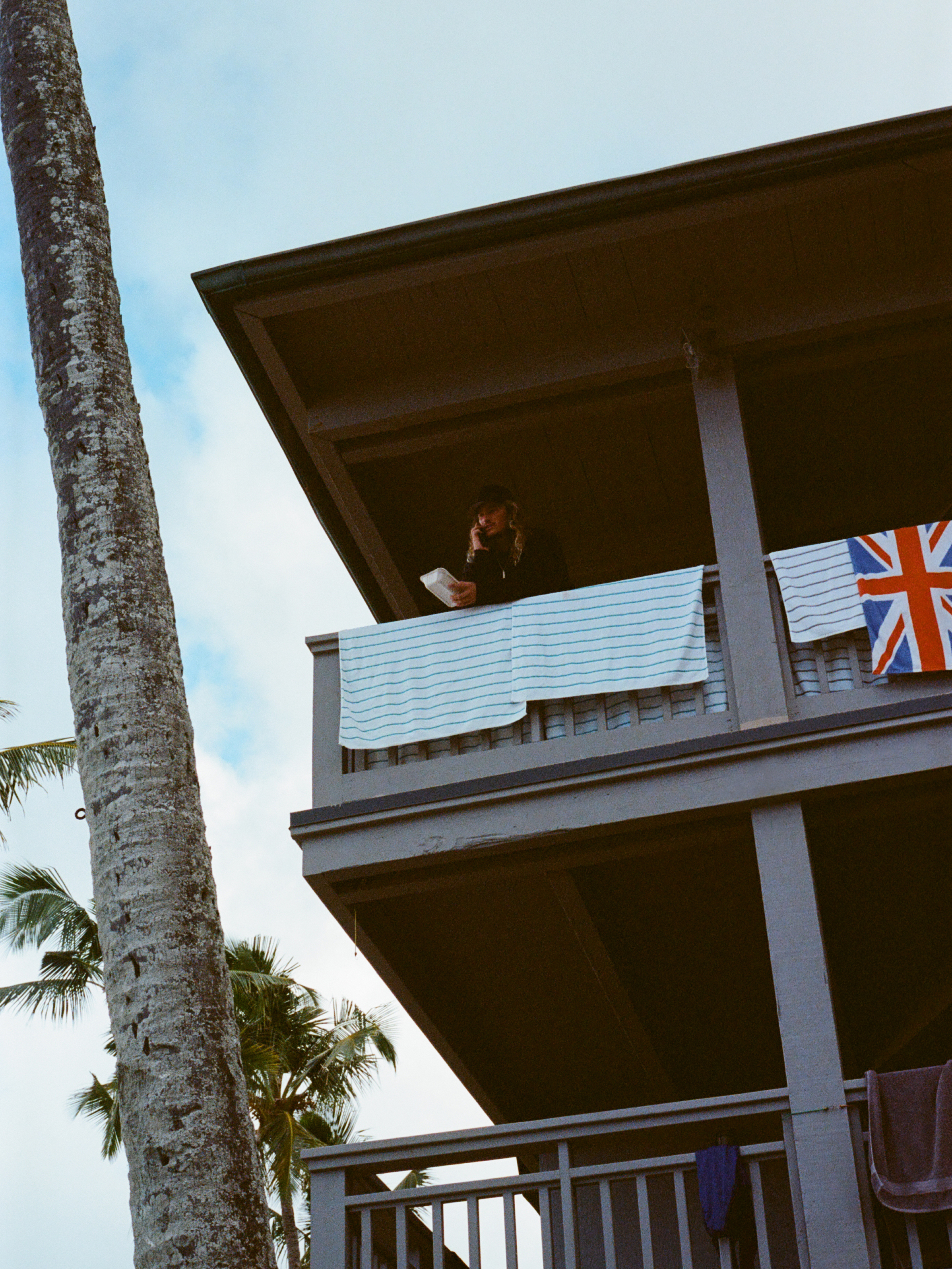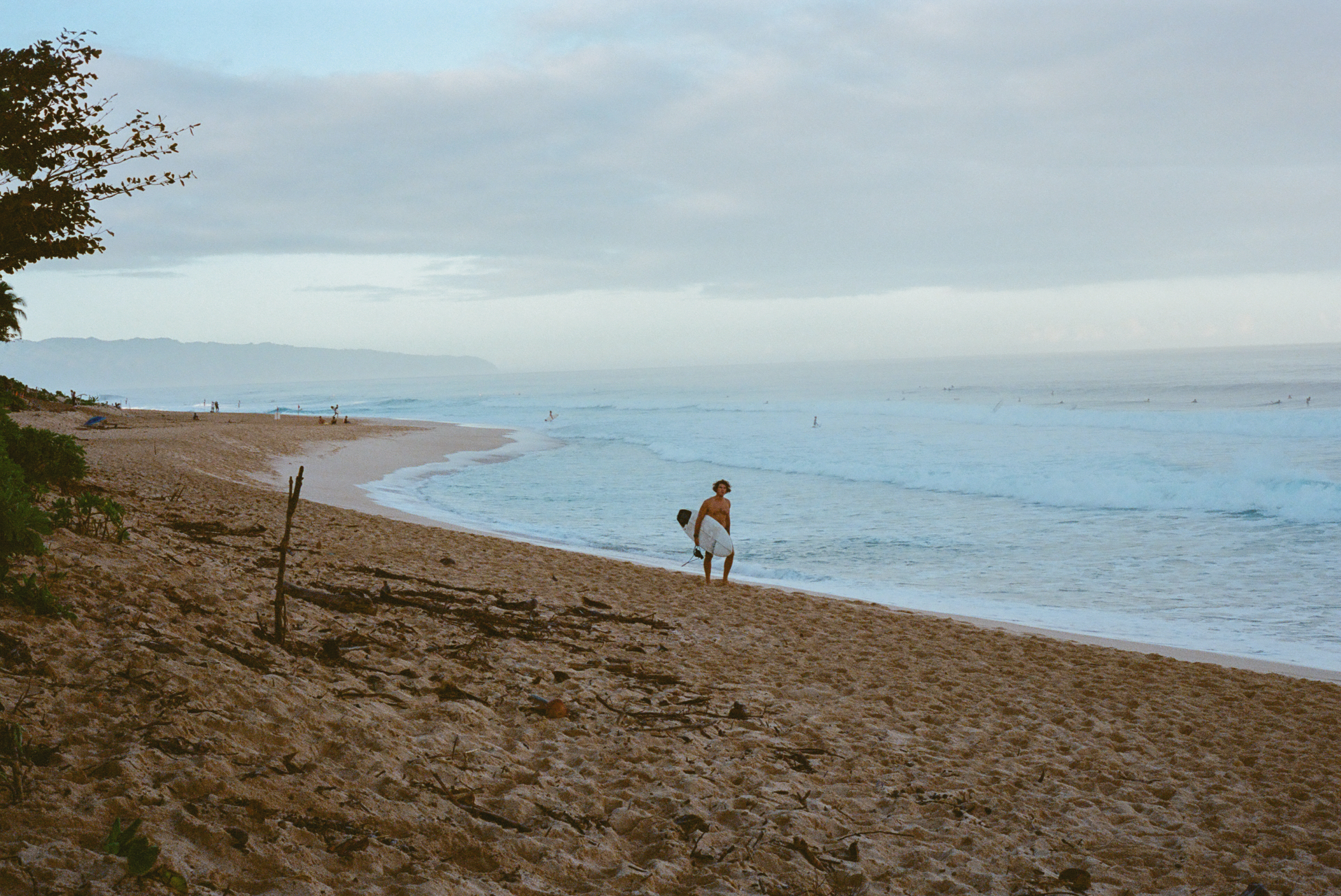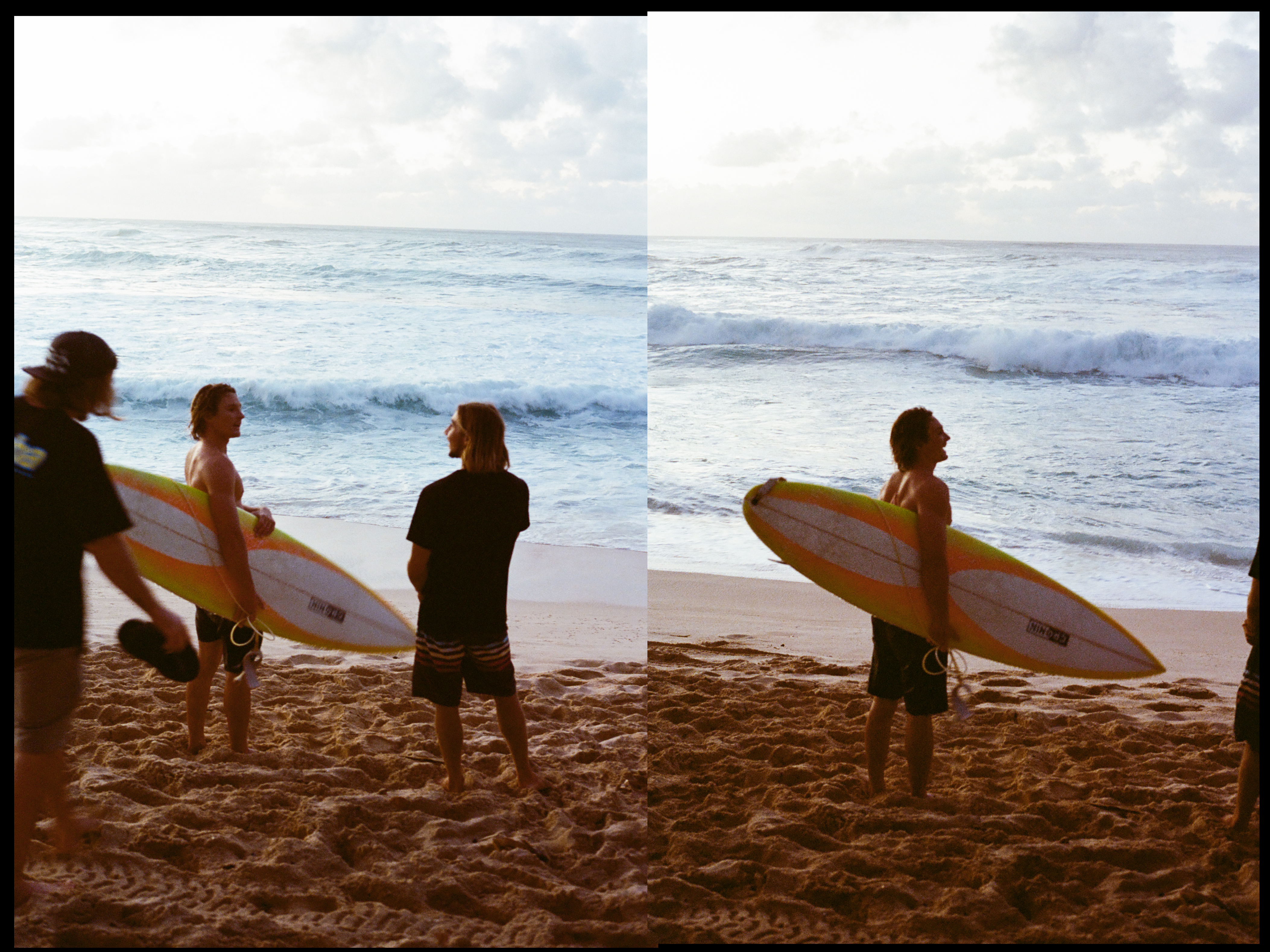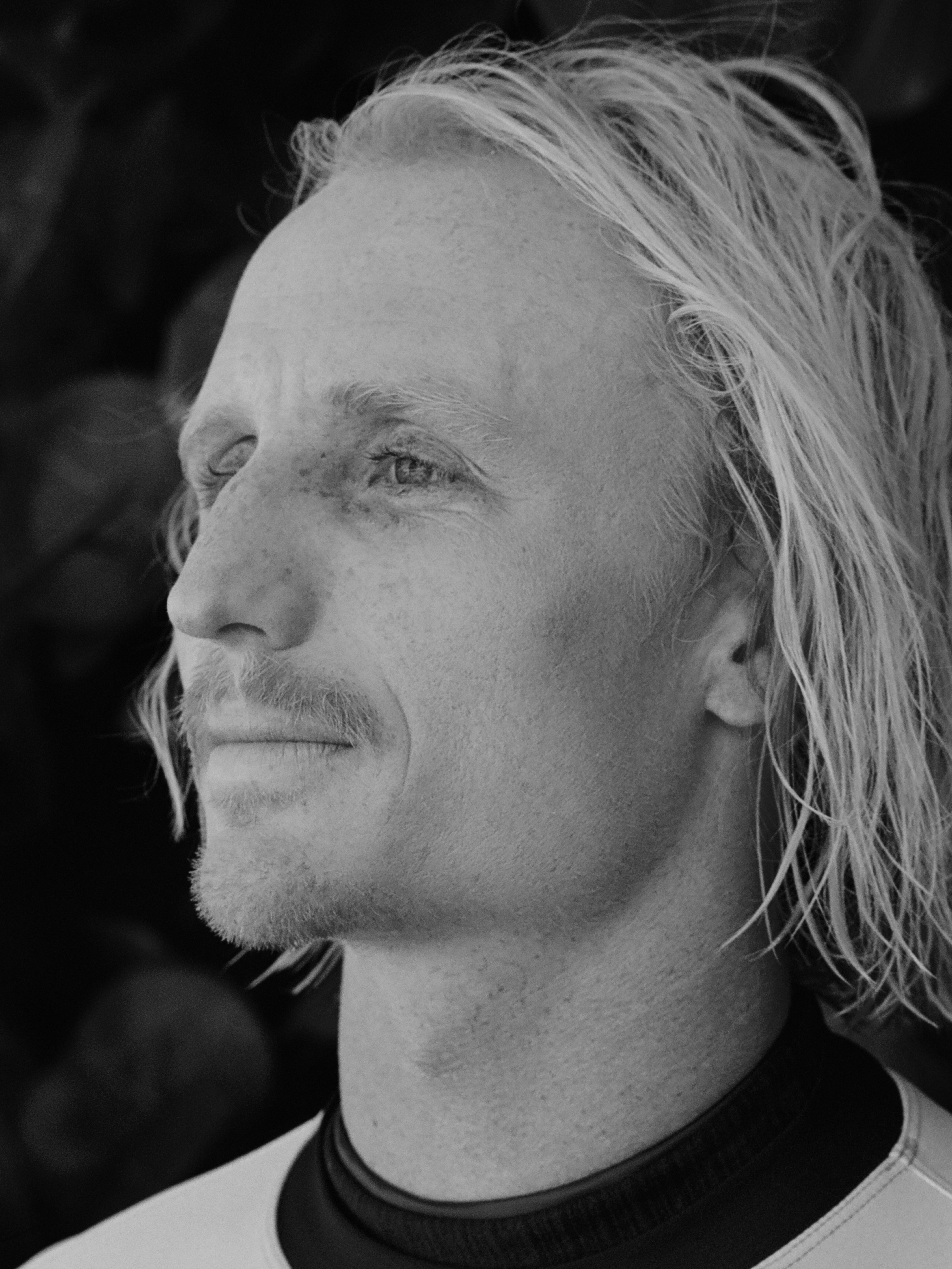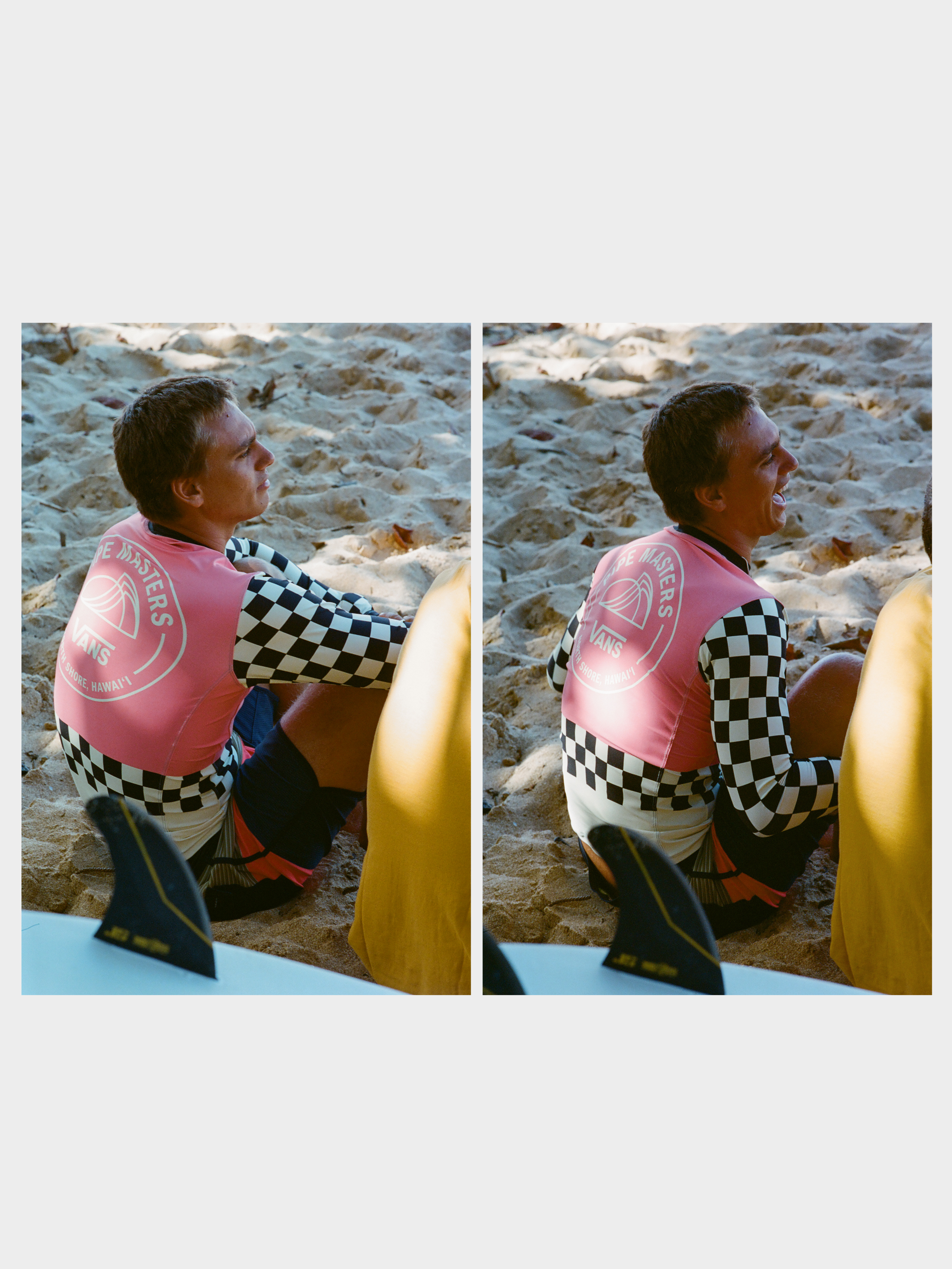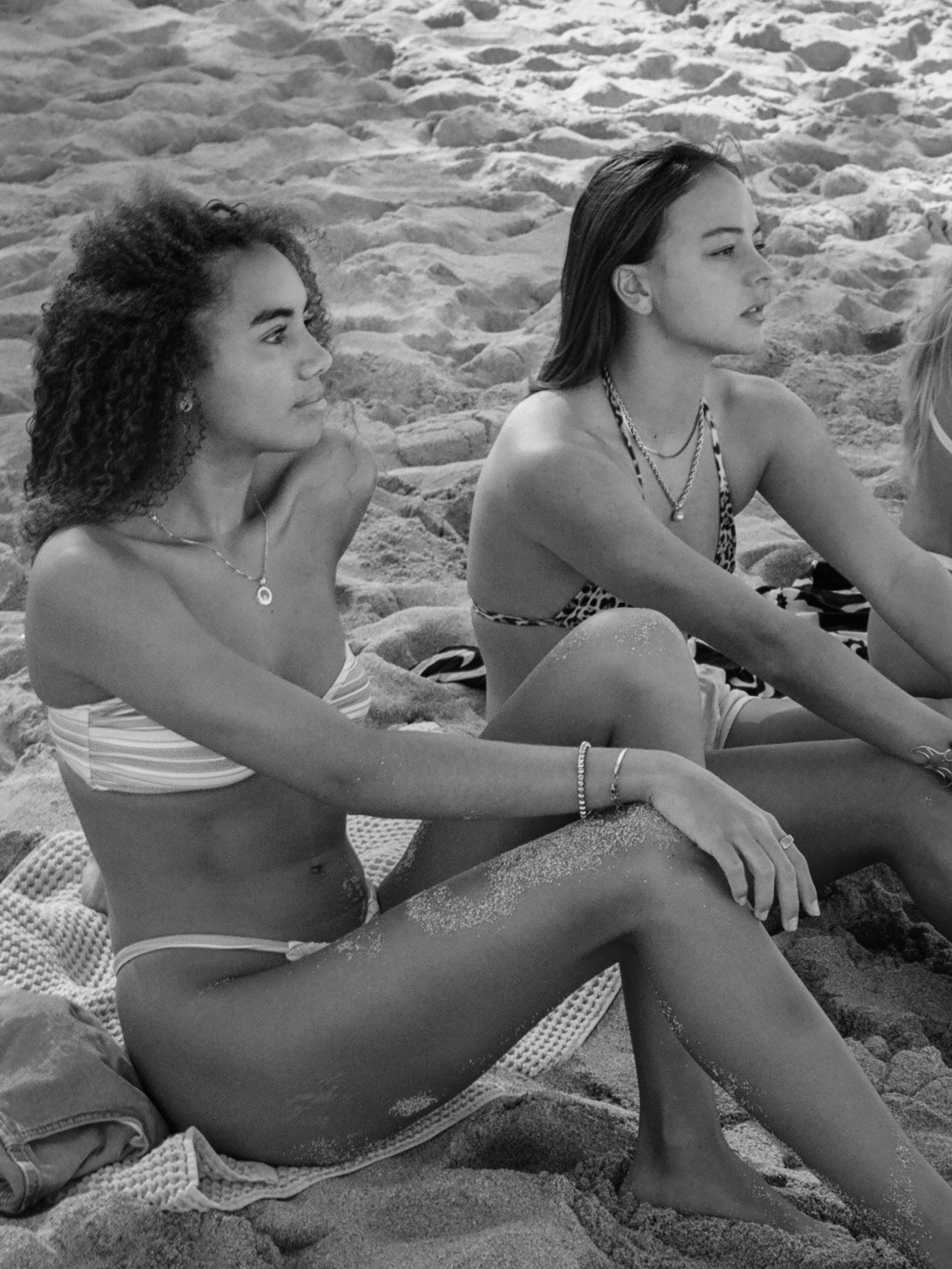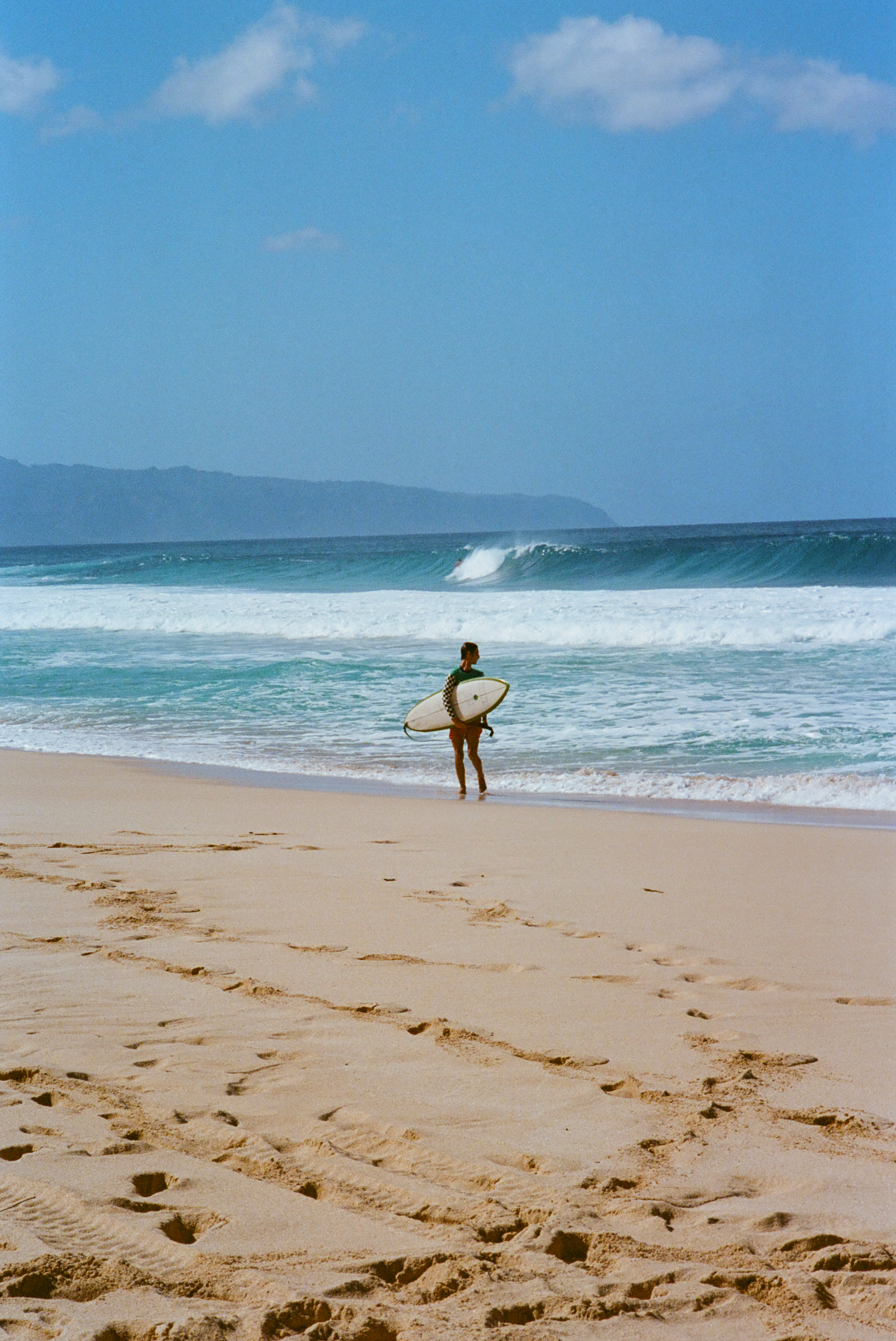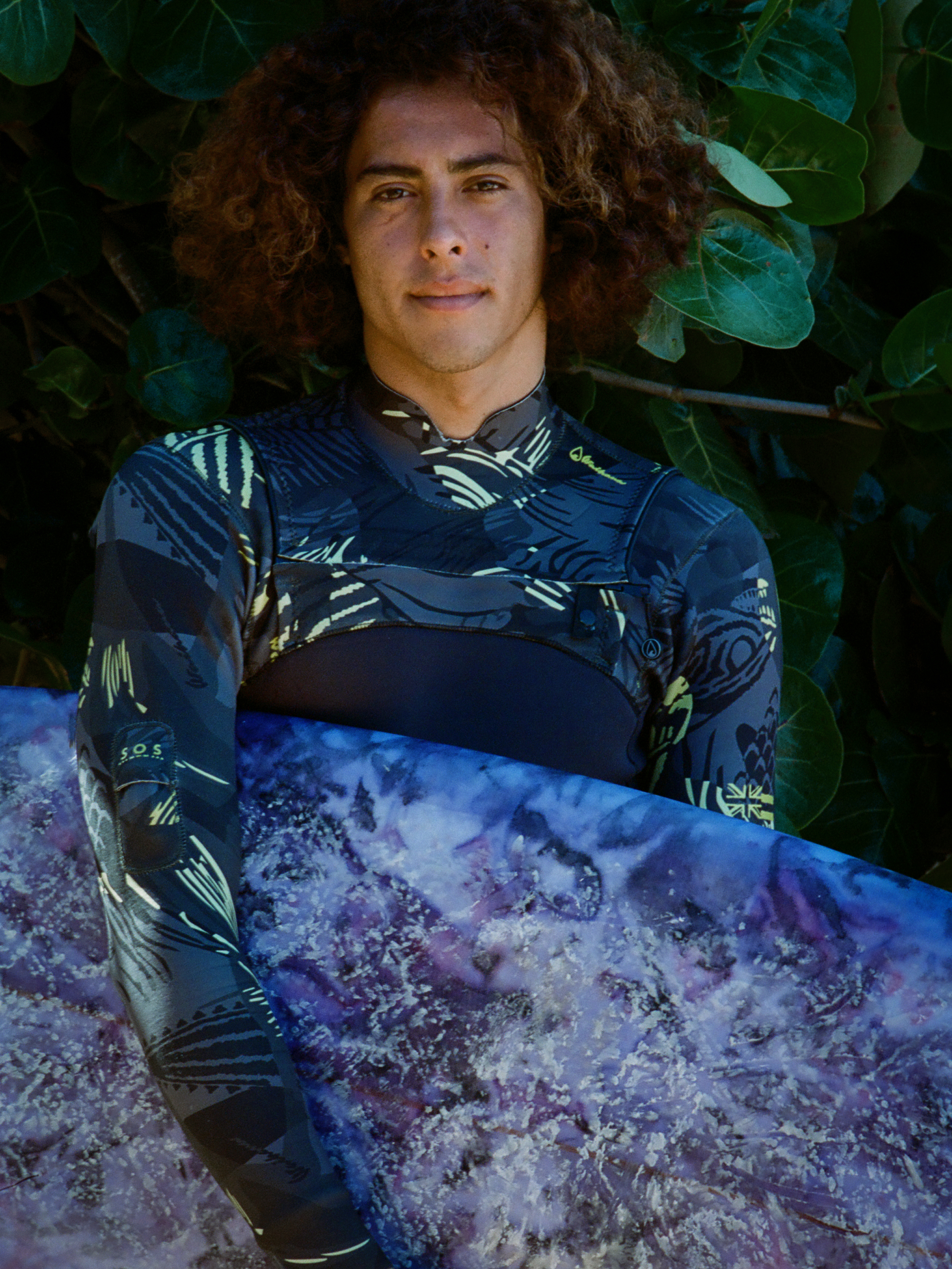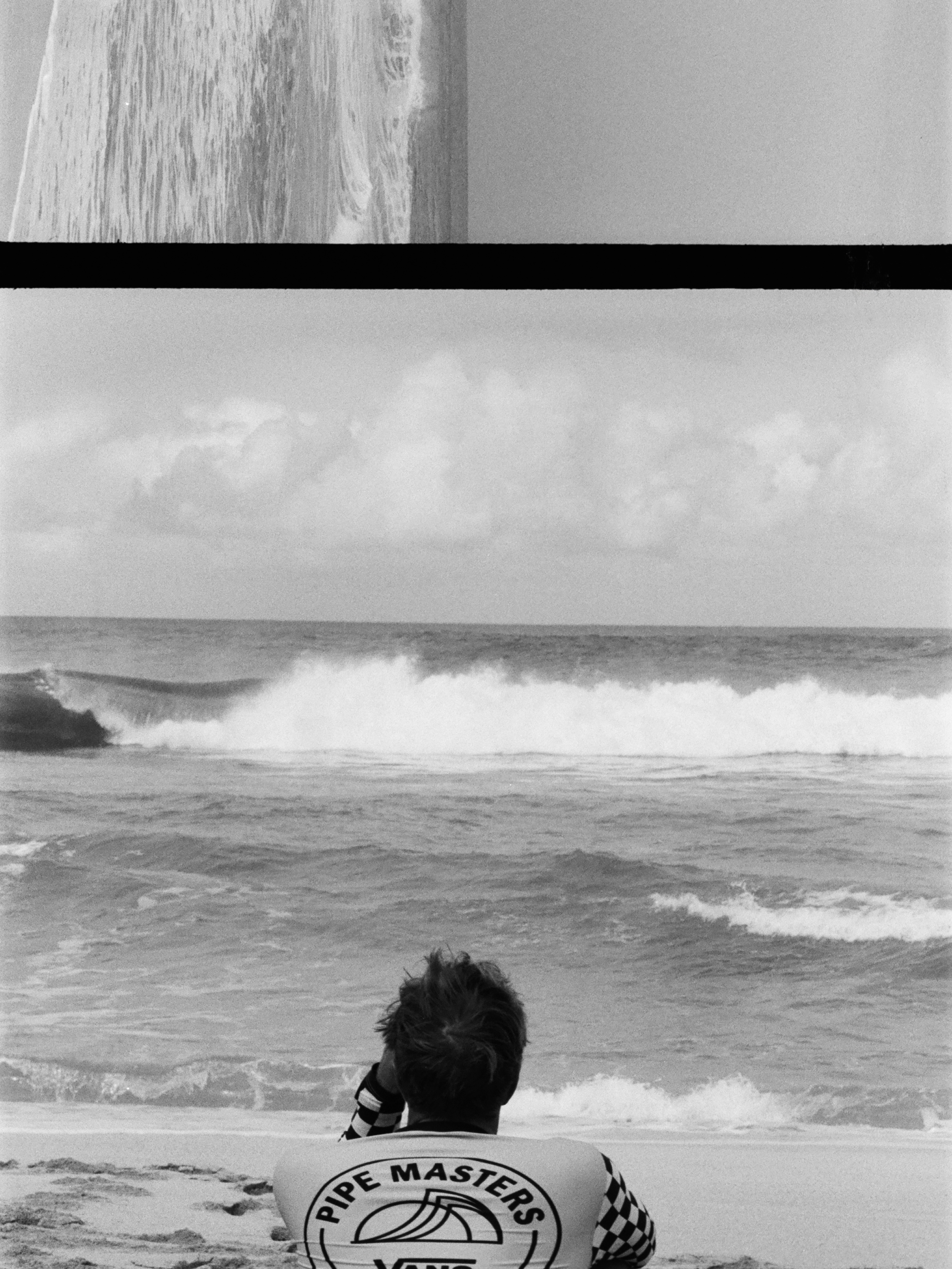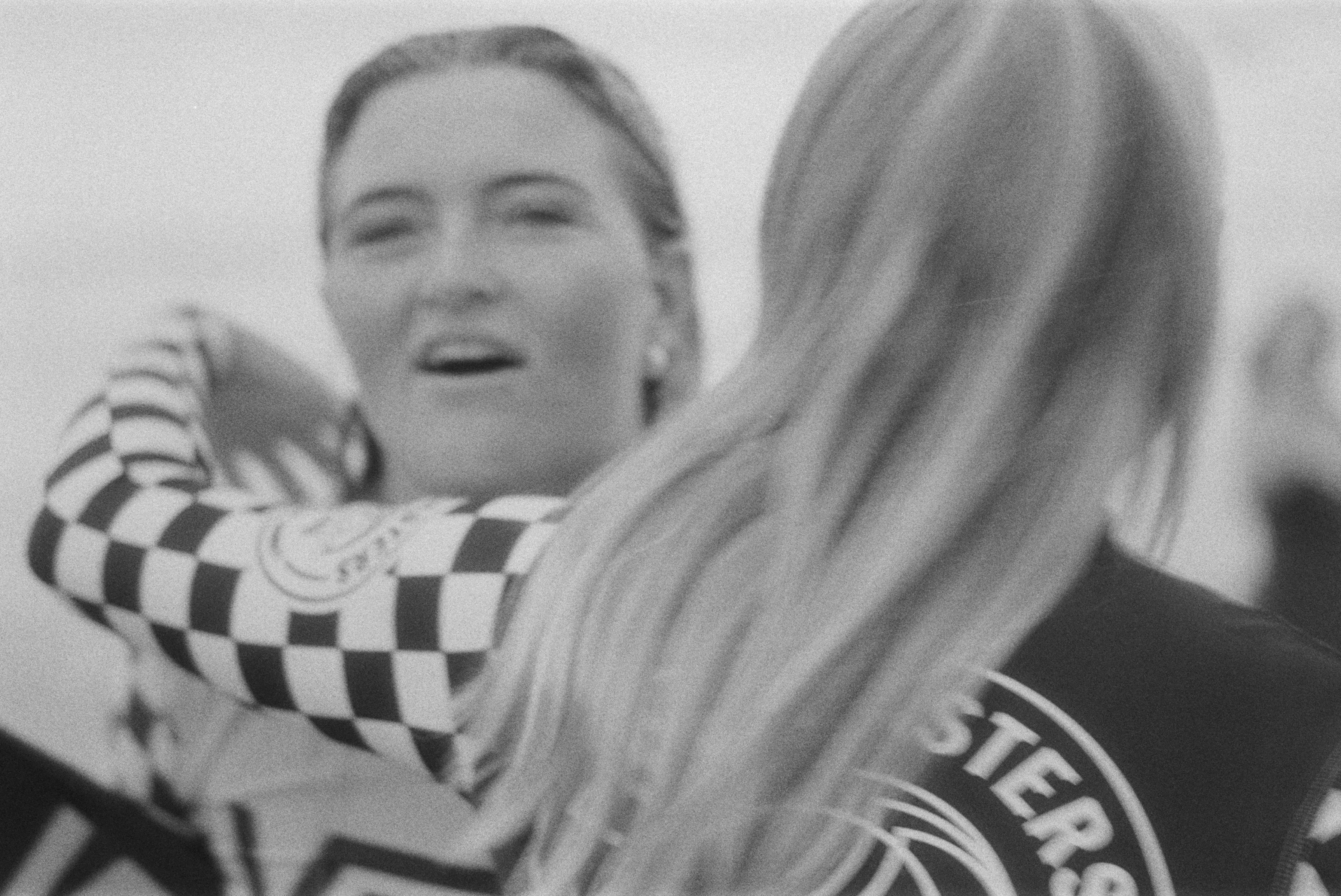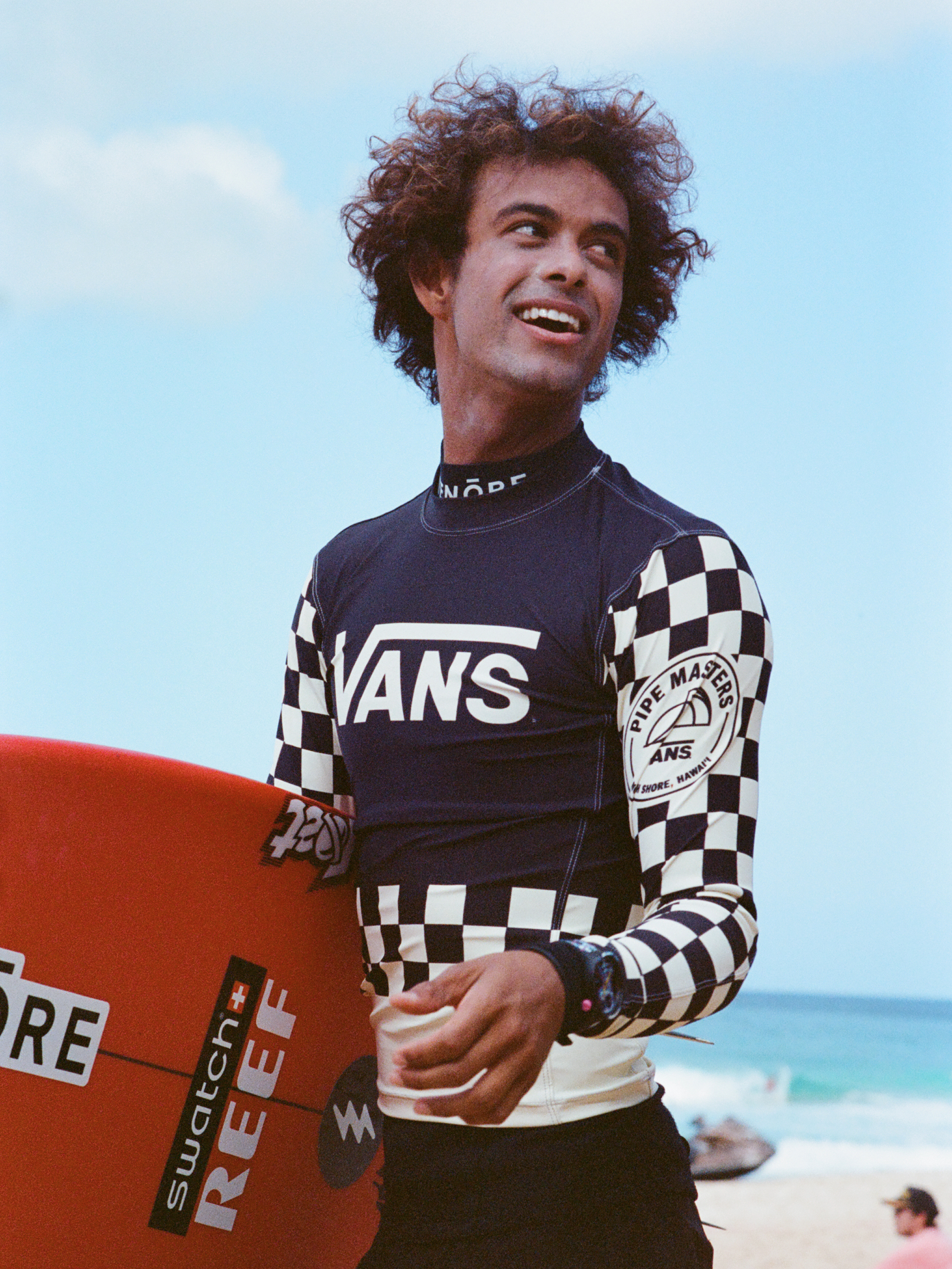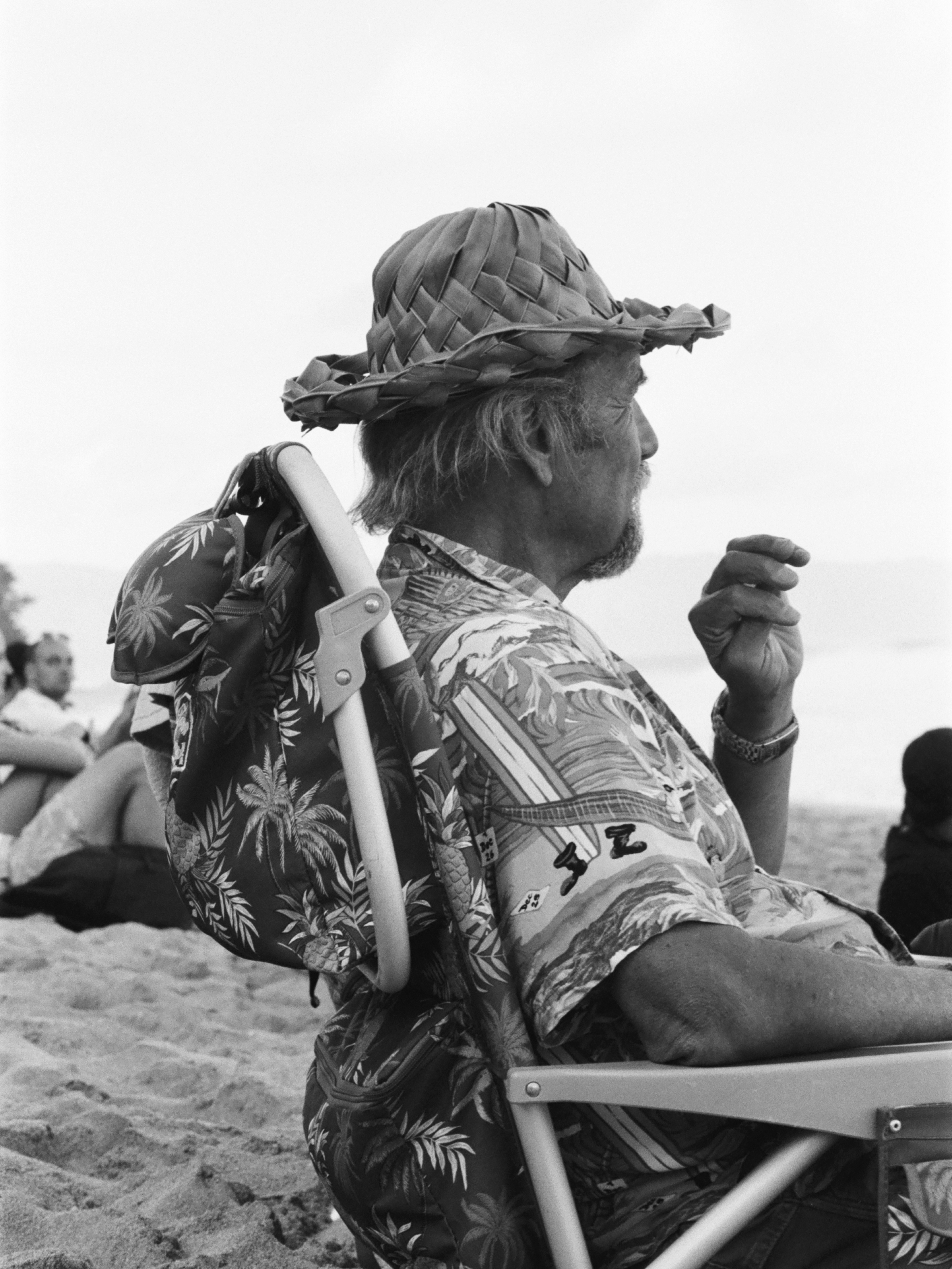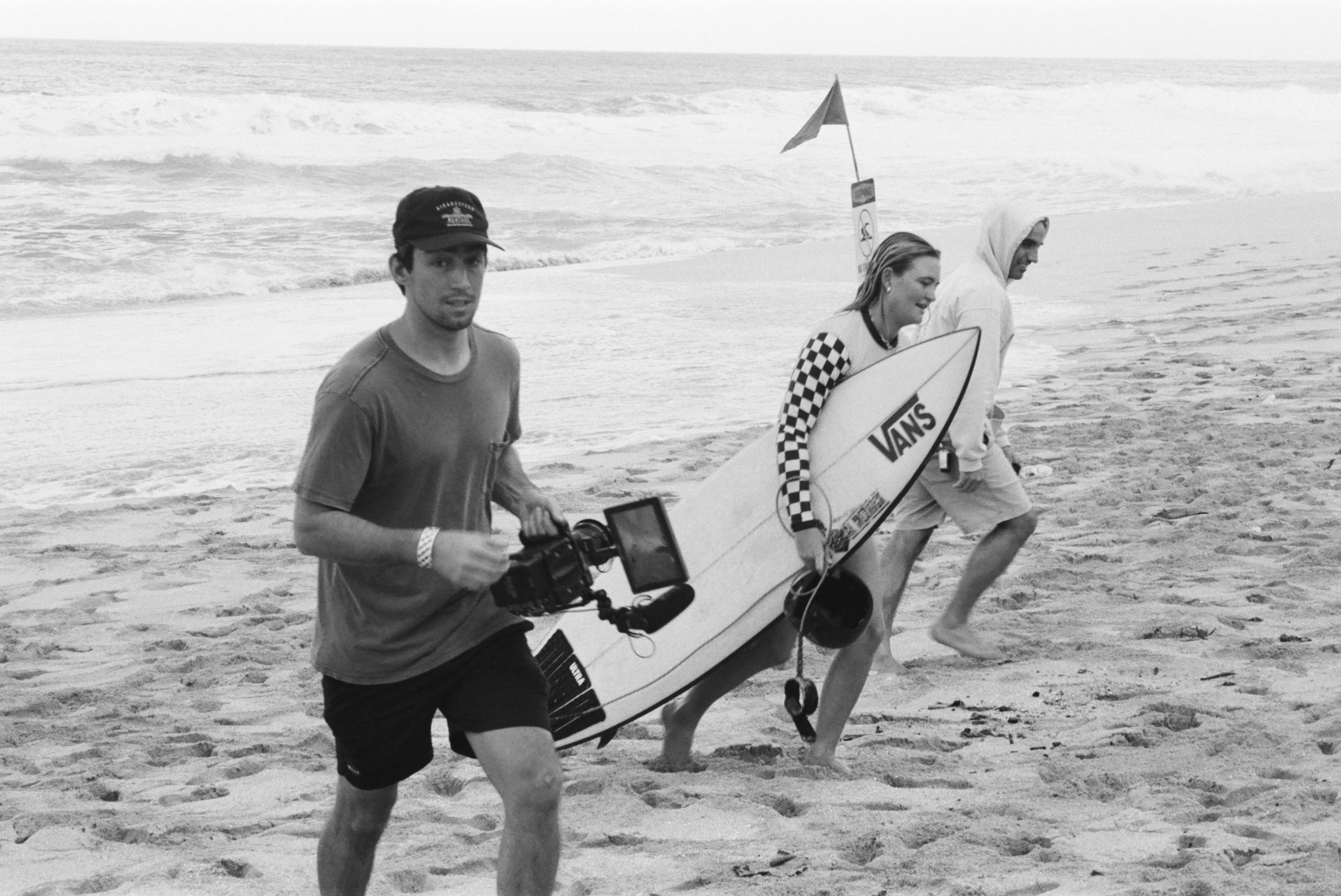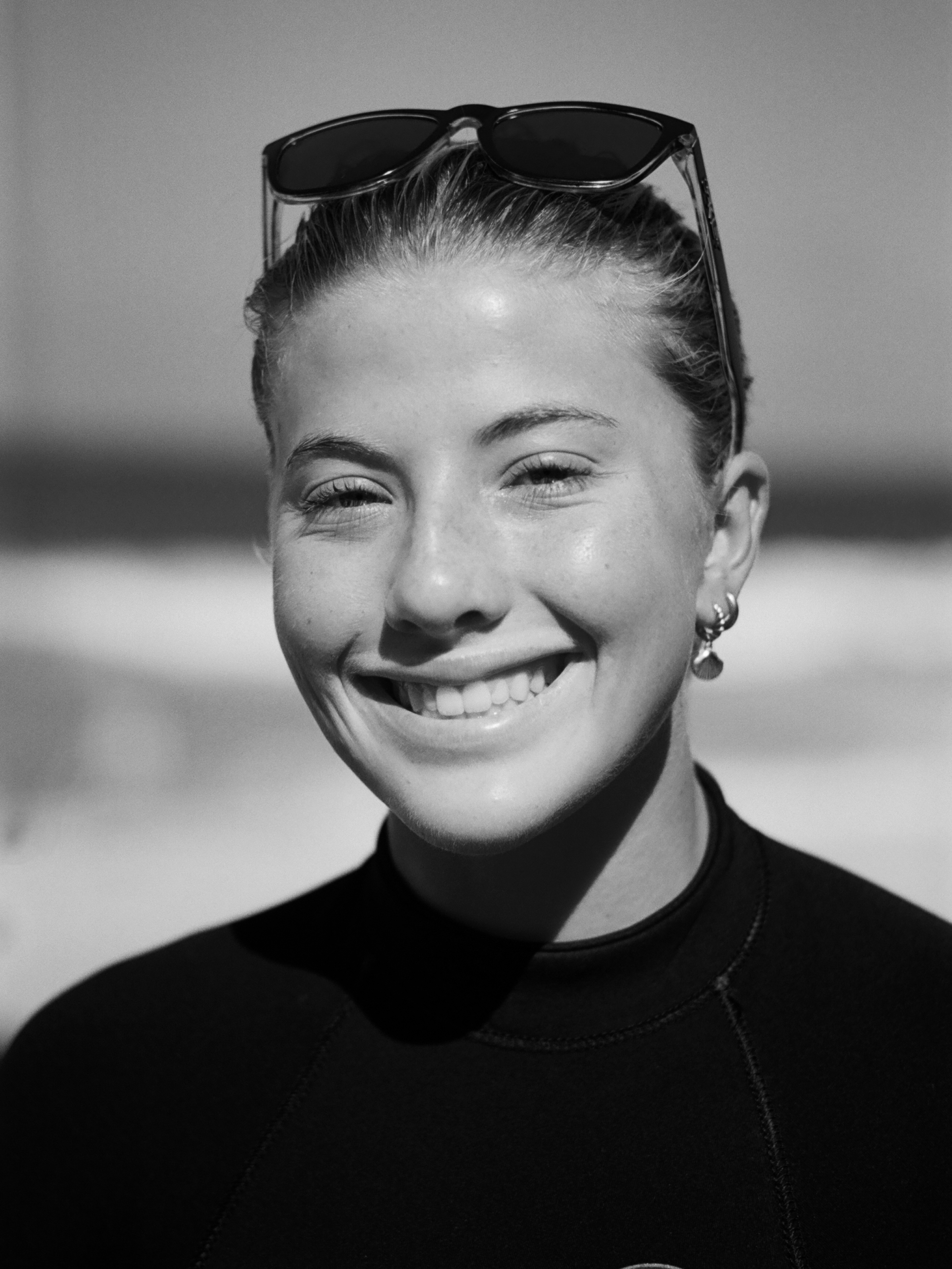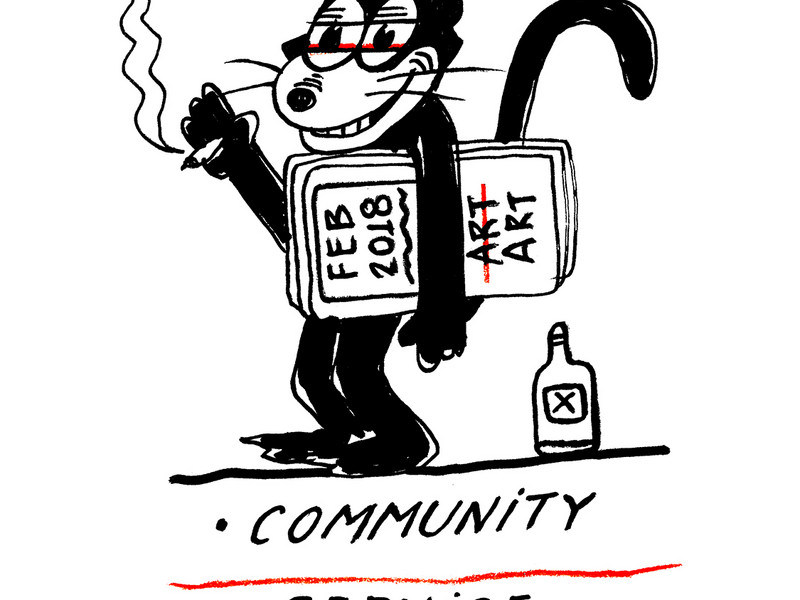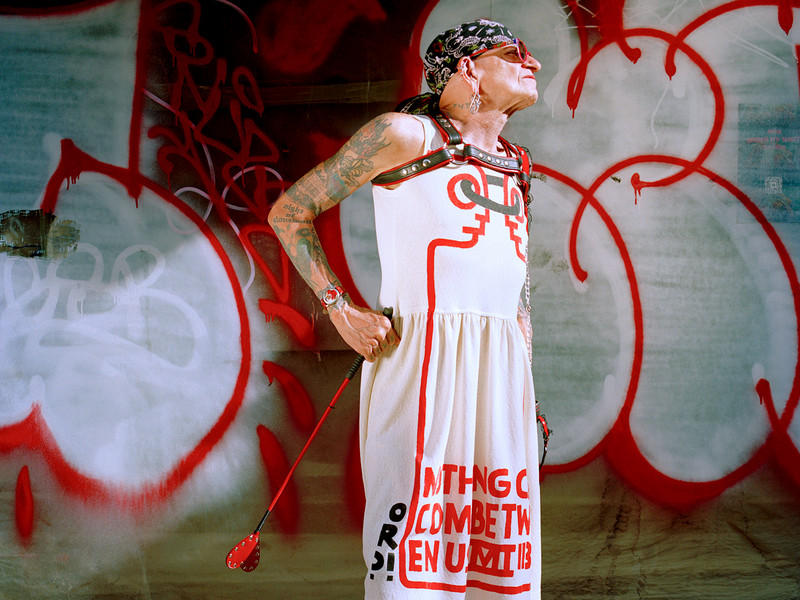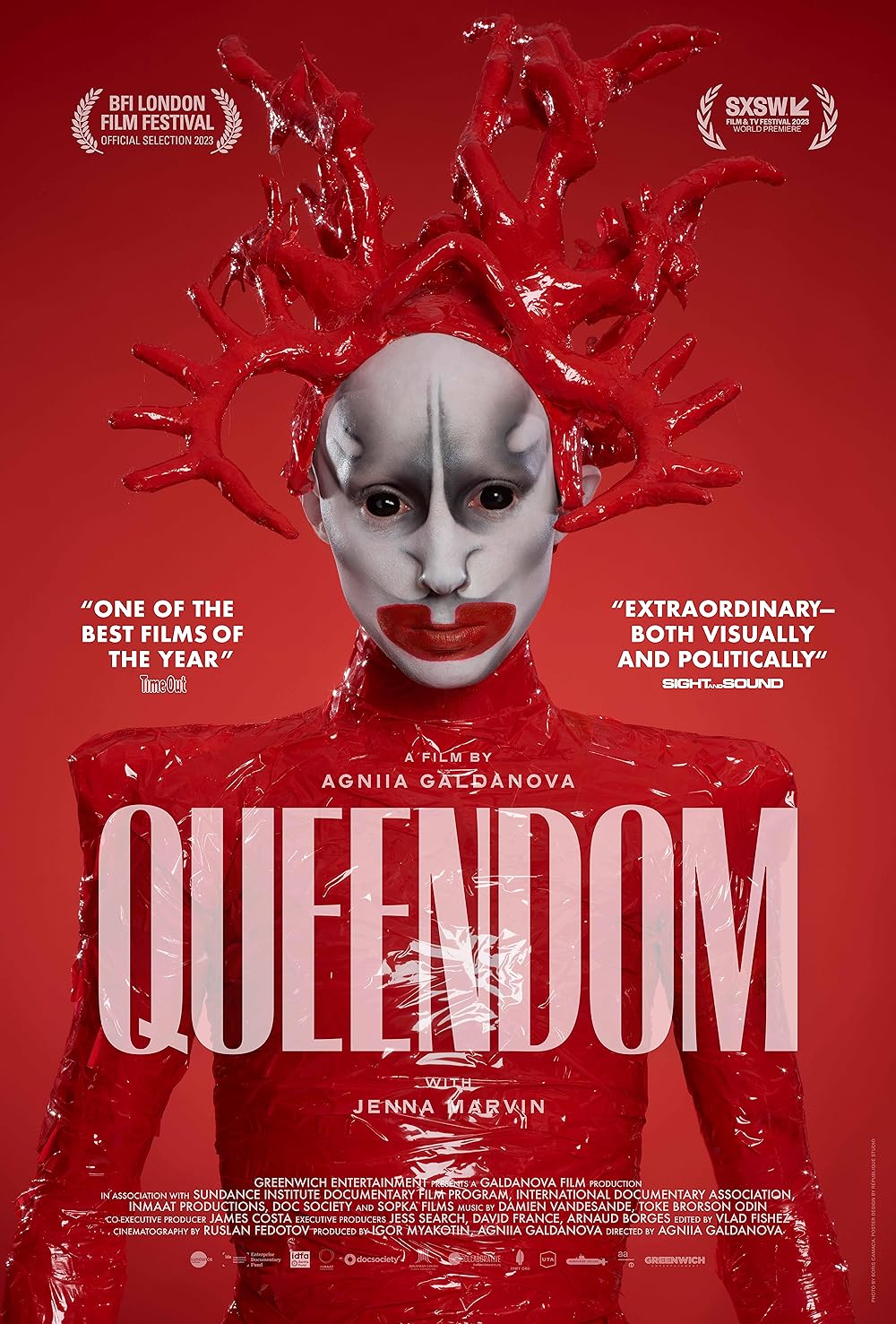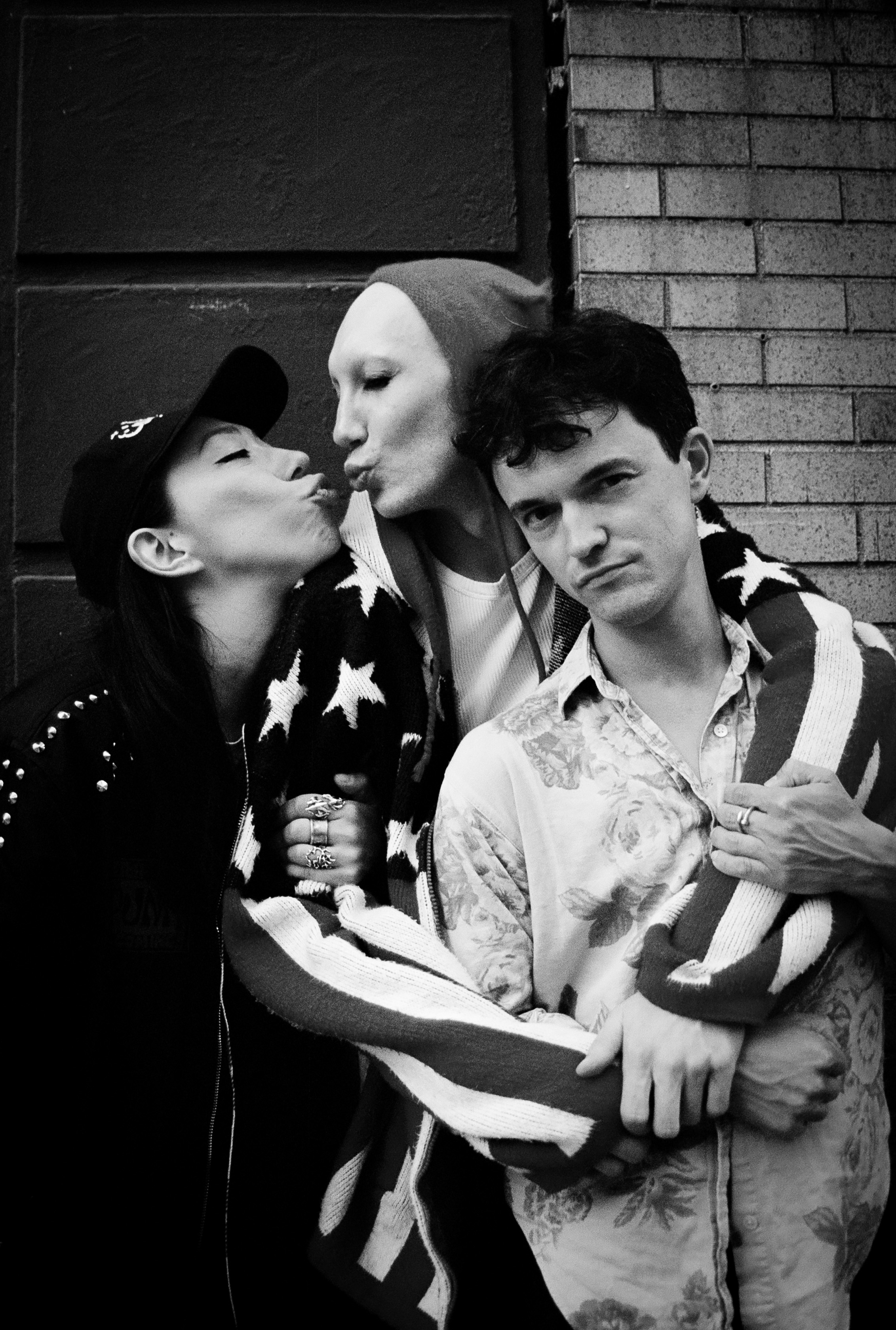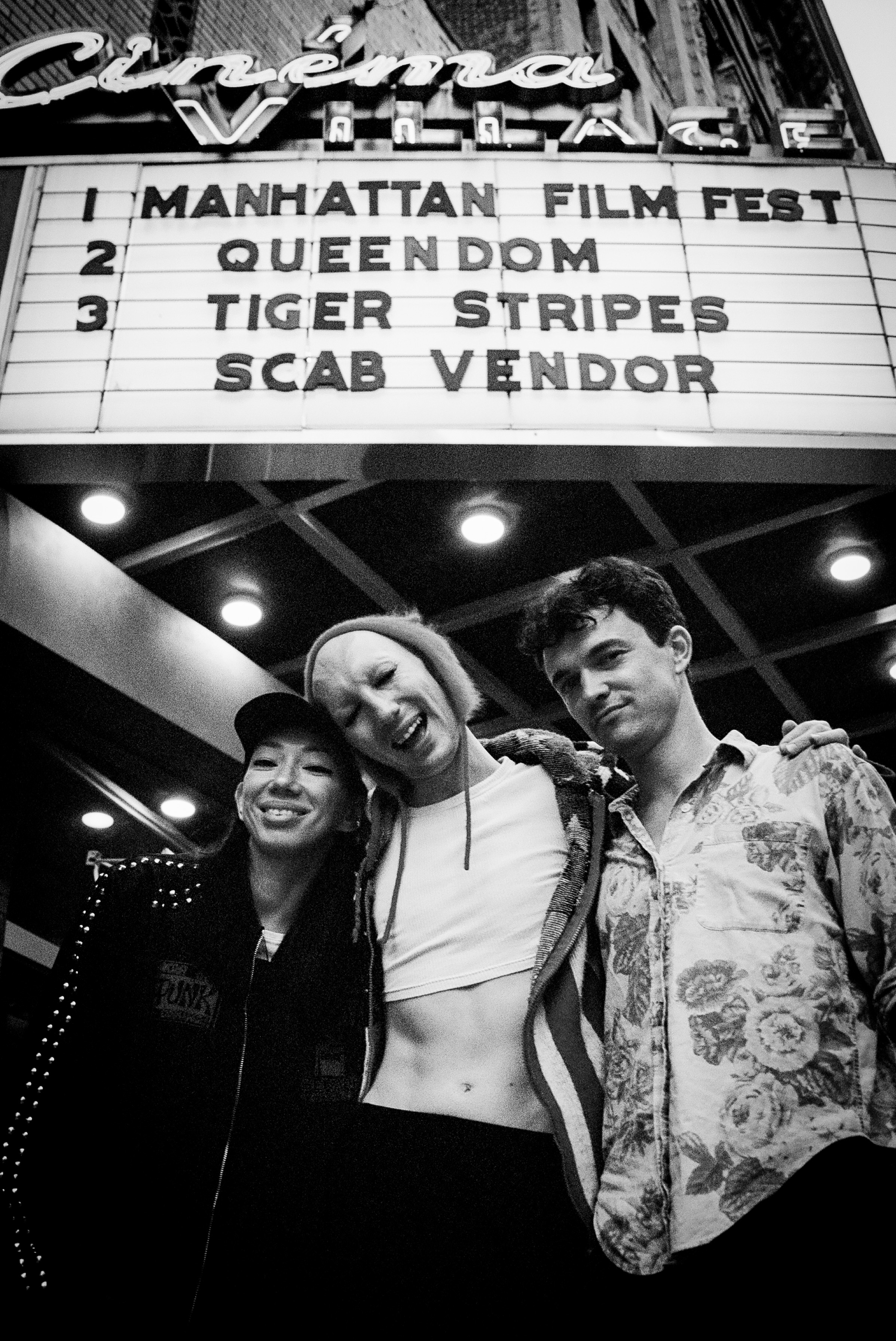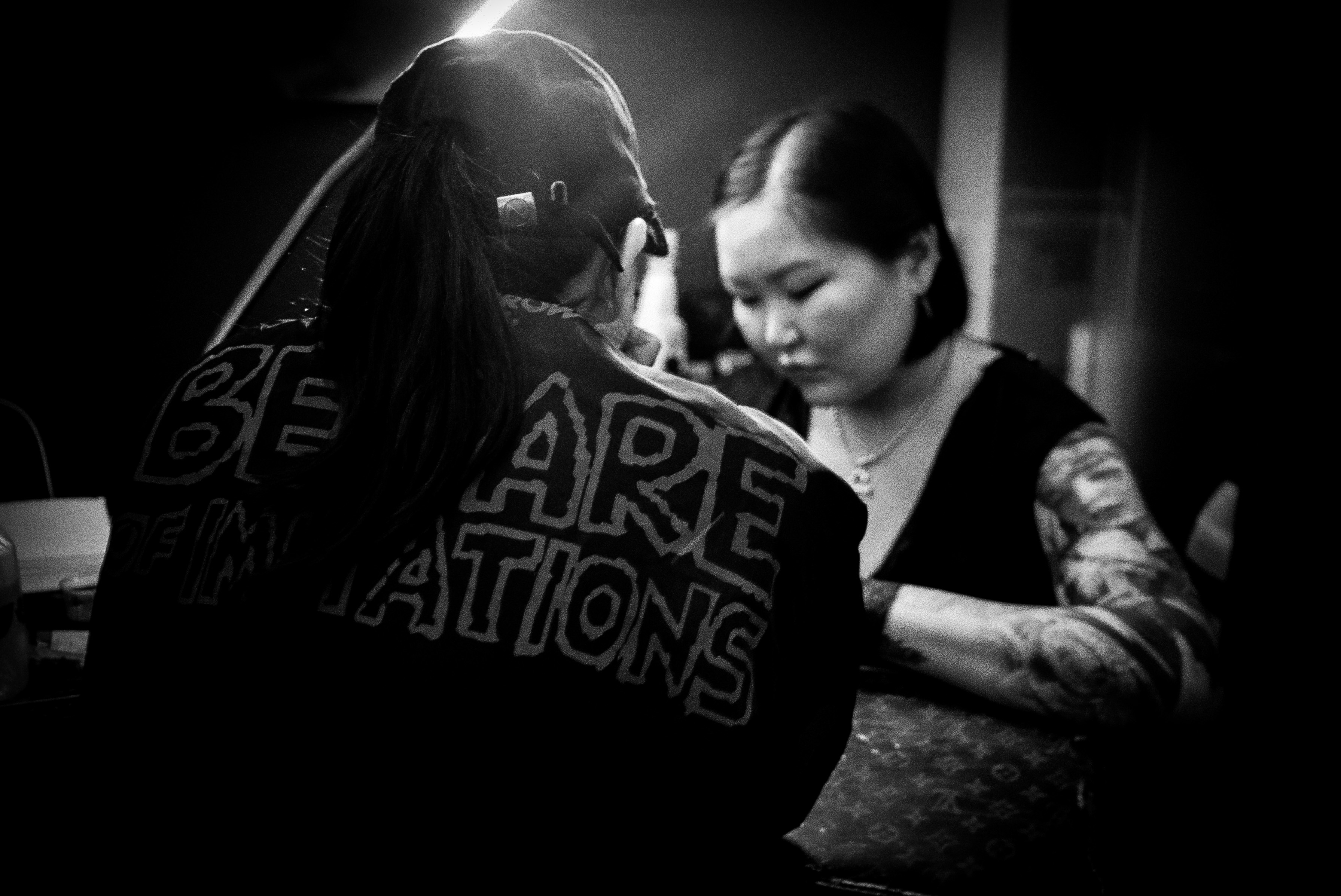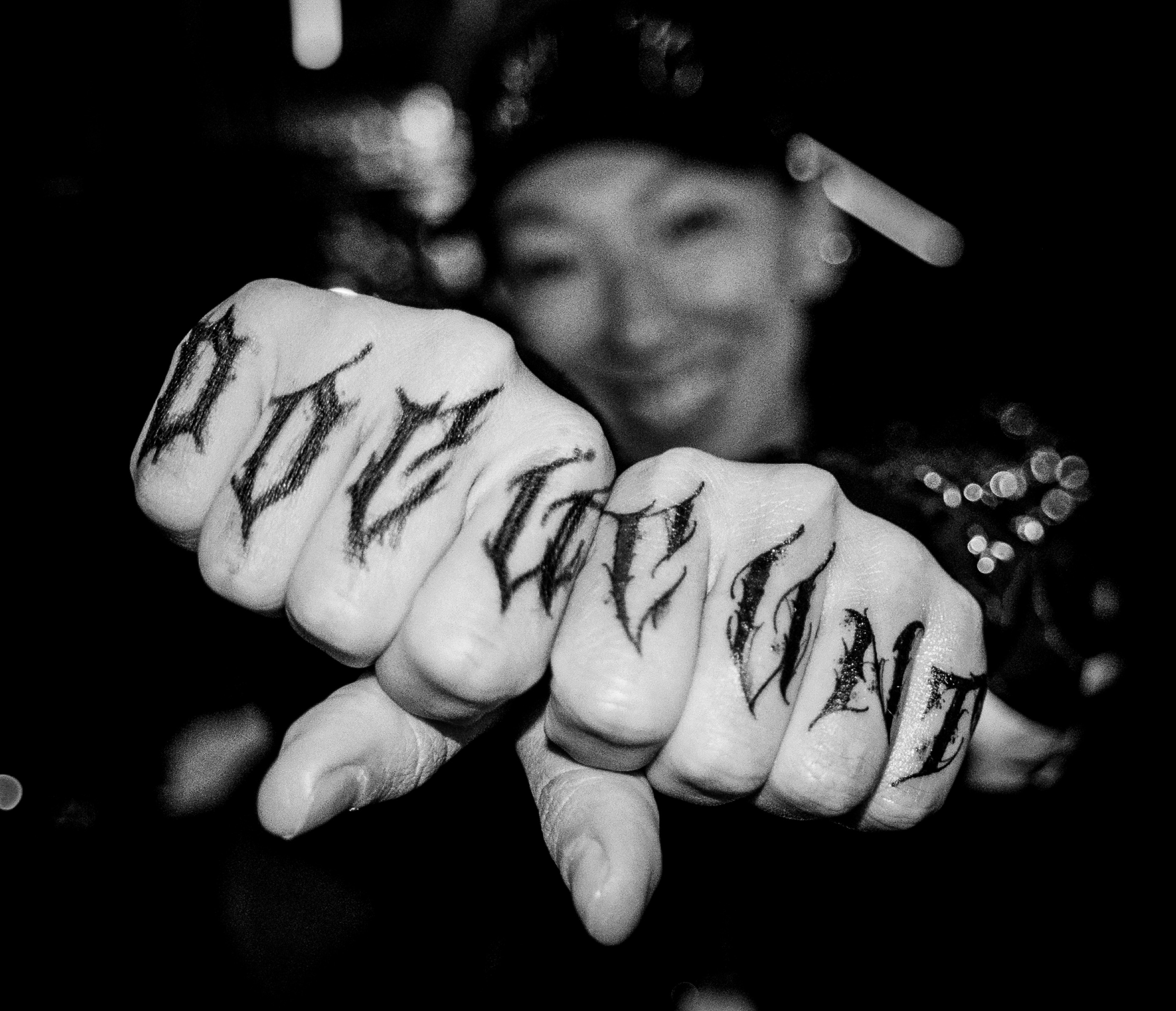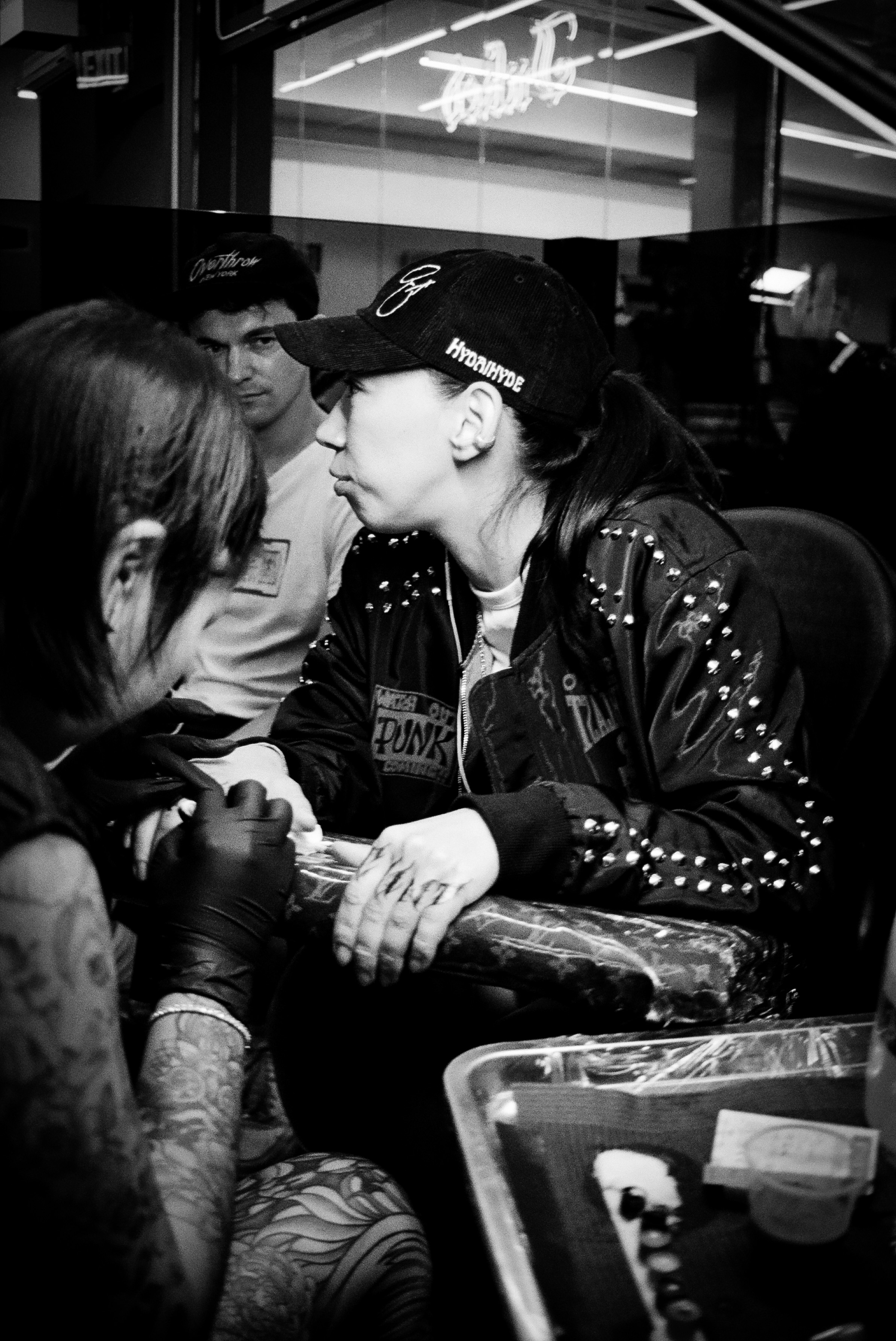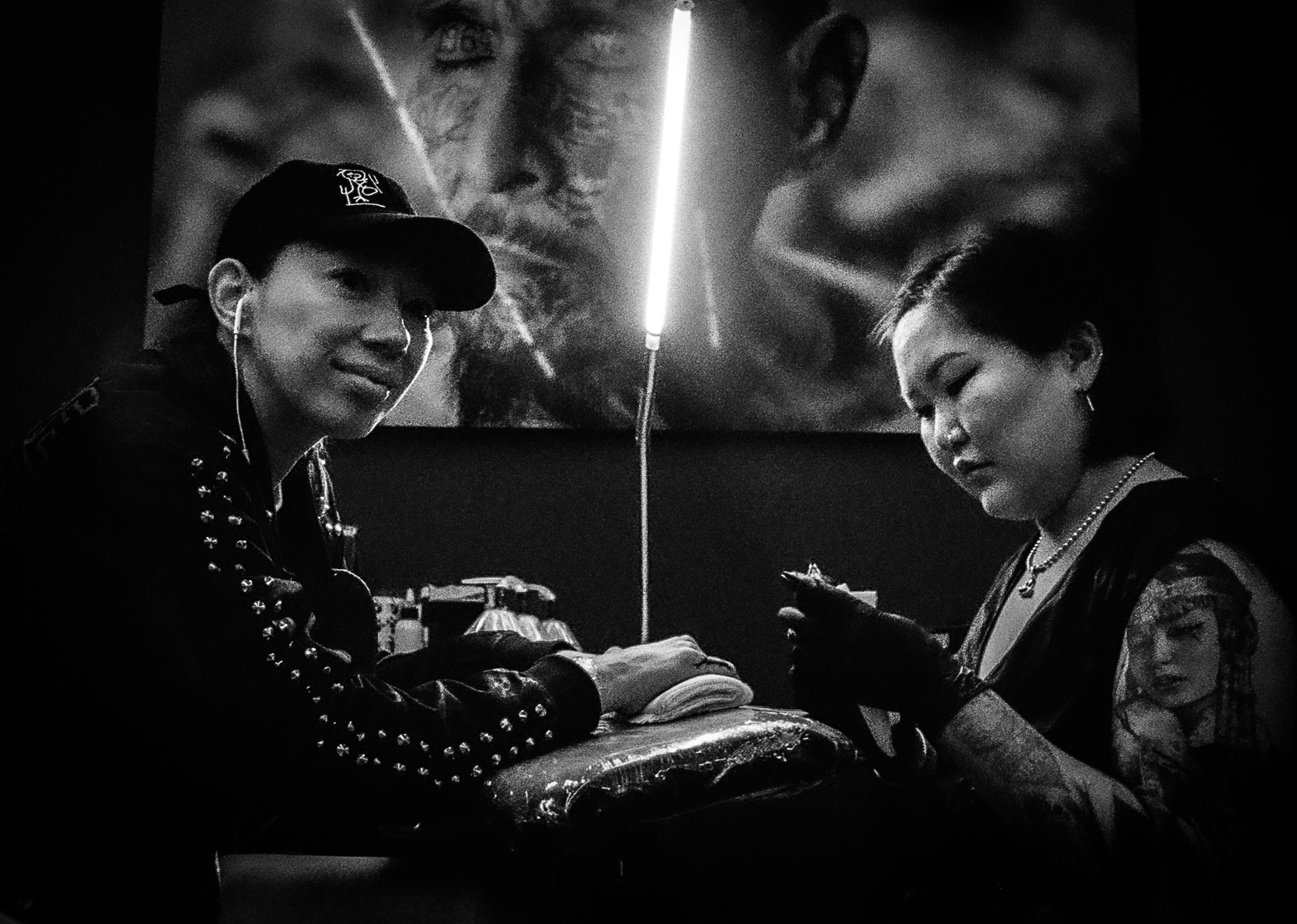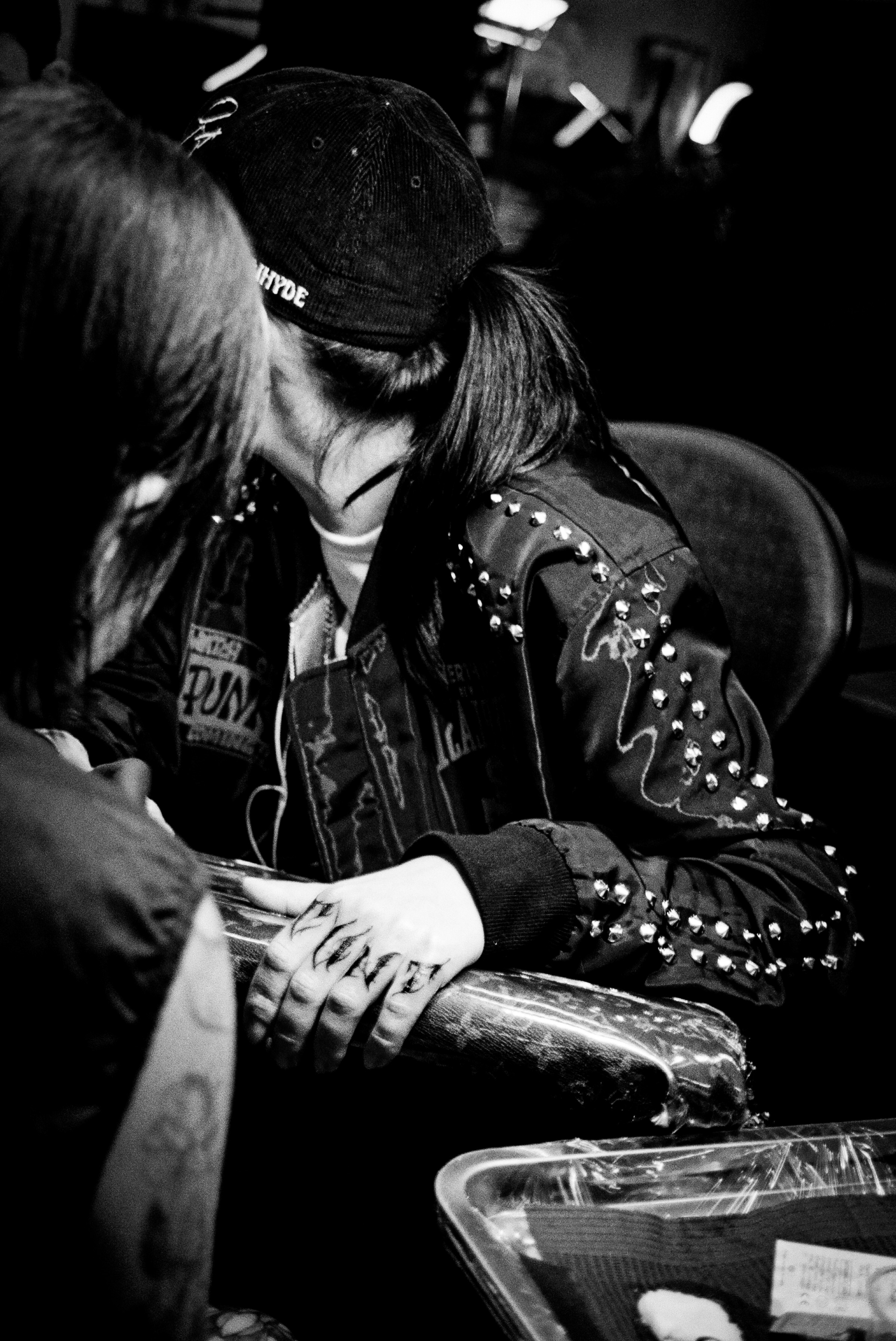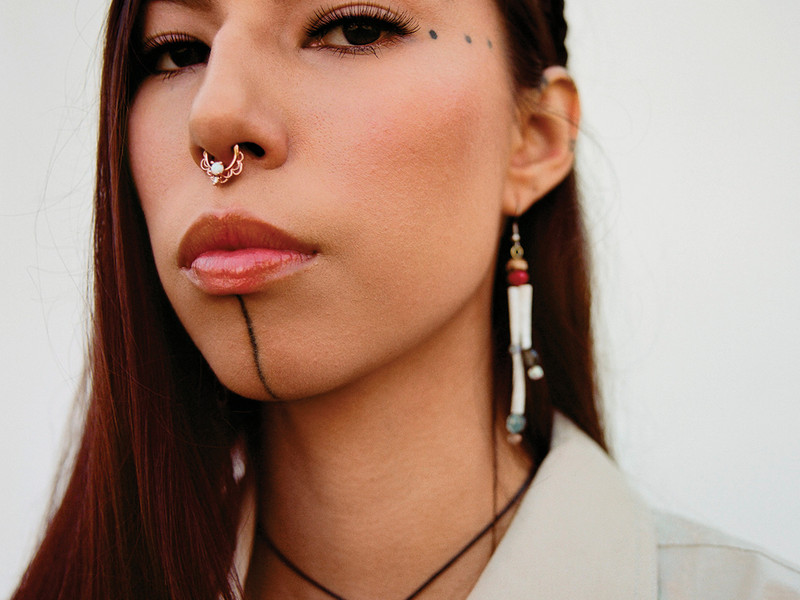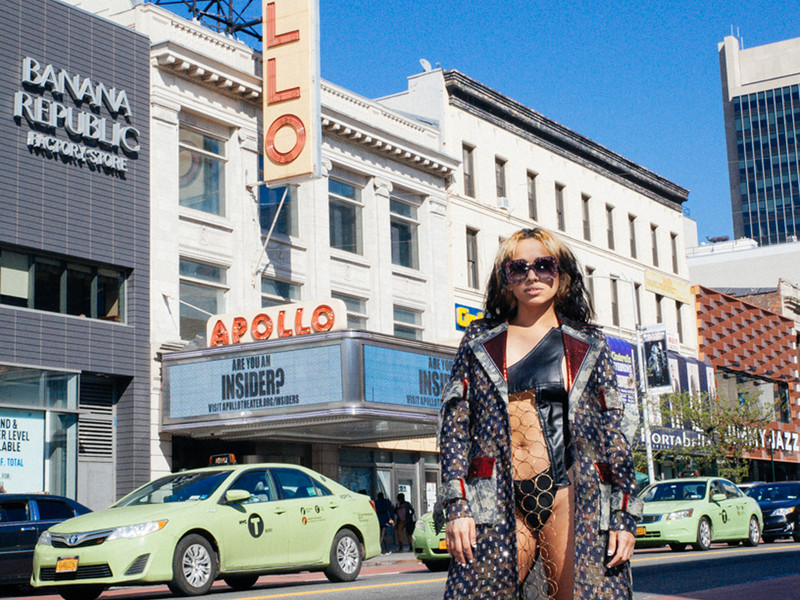The House is on Fire
Translated from Spanish by Alejandro Cabezut. Original Spanish interview below.
How did “House of Mamis start? Is the house also literally a house?
La Mendoza: The house started when I left House of Apocalipstick in 2017. House of Mamis is not literally a house where we all live — it was before, when I still lived in Mexico City. My apartment was the home base for all of us. I’ve since moved to Merida and some of the other members have also left Mexico City, but we’ve all stayed in close contact and the house is still very much alive.
AKA Overkill: House of Mamis was a product of globalization, born out of the idea of love and family. First, it was conceptualized as a safe space for all of us to meet and talk, then for a time, the Mamis lived together in two or three separate apartments. Now most of us have taken different paths but the house remains symbolically.
In your experience, what’s the meaning of being a house mother, daughter, or sister in House of Mamis?
La Mendoza: I’m the house mother. The first year and a half was a super intense time in taking on that role — it was a lot of responsibility, having to care of them all, finding them employment, cooking for them and ensuring we all stayed close-knit. I still ensure everyones’ well-being and continue to look out for them. Pony - It means loyalty, confiding in each other, empathy, self-care and being caring for the others. My ‘family’ isn’t comprised of a mother, father, and siblings. Only two of my brothers speak to me, one isn’t on speaking terms with my father, etc. I’ve integrated La Mendoza, Rio and Luisa to my chosen family because they’re the people that care for and worry about me even when we’re not in the same city. It’s all about creating your own family with the people that want to be your family.
AKA Overkill: Having empathy for someone that you’ve chosen as your family isn’t easy. When you have the role of mother or sibling you feel a deep responsibility for the well-being of everyone in the house.
What’s what you most enjoy about being in the House of Mamis? What’s it like to be a part of an artistic community?
La Mendoza: I enjoy dancing and cooking together, that’s what I miss most now that I’ve left Mexico City. Working together was the best, at one point we were all employed at a gay bar called “La Purisima” where some of us performed in drag and others worked the bar. It was the best to be together every day, doing dance training during the week, eating together and working during weekends. It’s the best to have a chosen family that loves you and doesn’t judge you.
Pony: I no longer live in Mexico City. When I walk in the street I try to be straight-passing in order to not draw attention to myself. I live in a very conservative town in the north of Mexico. When I’m with the Mamis I feel very safe and never alone.
AKA Overkill: It definitely represents being supported by an artistic community and being with the Mamis is extremely fun and very liberating.

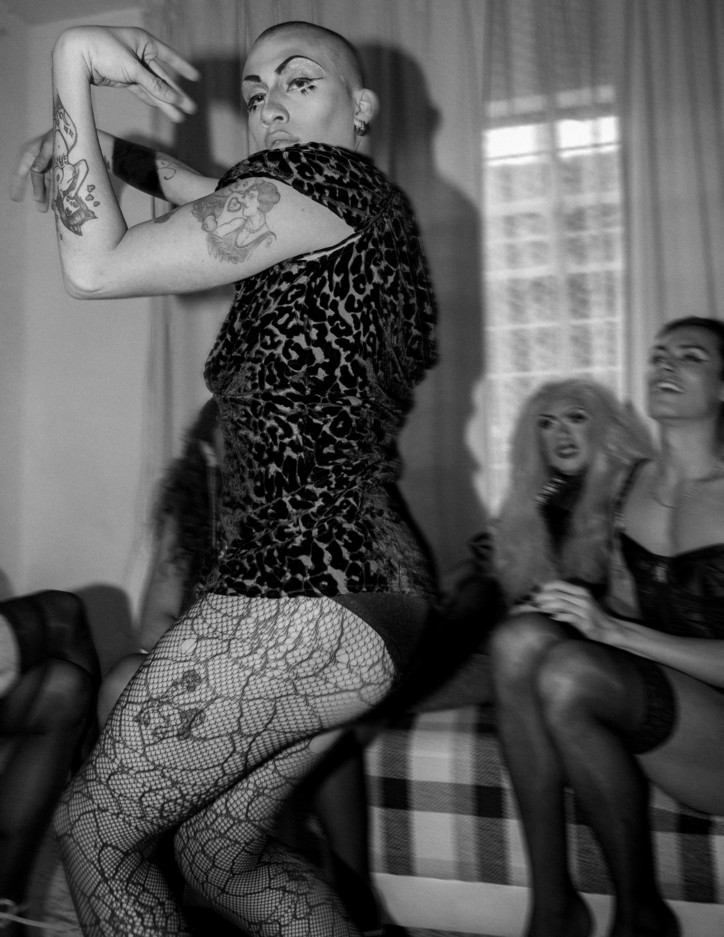
What’s today’s ballroom scene like in Mexico? Are there balls with categories similar to Paris is Burning?
La Mendoza: There are many houses and balls in Mexico City, and now in other cities like Guadalajara, Monterrey, and Merida. The community is growing, and each time there’s more people interested in taking part. There are two types of houses — the Kiki Houses, which are for fun, and the Mainstream Houses, which are recognized in the ballroom scene. The most popular ball categories in Mexico are Vogue Femme, Runway, Old Way and Sex Siren; the ‘Sex Siren’ category is very specific to the Mexican ballroom scene and is inspired by our Latin and Mexican culture.
Pony: Paris is Burning is the best reference to understand how this movement began. Thanks to the documentary, there’s a long history of iconic people from the scene that have come to Mexico to share their rules and culture. In our balls, there’s themes, categories, a chanter (emcee) and competitions. In Mexico City, there are many houses and a voguing community that’s in constant flux.
AKA Overkill: There are Kiki Balls in order to experiment and meet others in the community and balls to compete. The scene has been maturing. We’ve learned from all countries with drama but also with love.
How’s the relationship between the different Voguing Houses in Mexico?
La Mendoza: Sometimes there’s a lot of drama — especially in Mexico City. Right now there are many conversations surrounding politics and cultural appropriation. The newer, fresher scenes support each other in order to generate a community.
Pony: There’s a strong sisterly bond. At first, there were many spats, disagreements, and differences, which I think was natural because we were all learning. We all wanted to voice our opinions, yet slowly but surely we all ended up in sync. Naturally, in competitions, there’s always someone who’s not in agreement with something, but every day the friendship and support between the houses grow.
AKA Overkill: Everyone maintains a cordial relationship for the most part. I think pretty much everyone understands where they stand when coexisting during Balls. The ego and power struggle is what generates the most frienemies between houses.

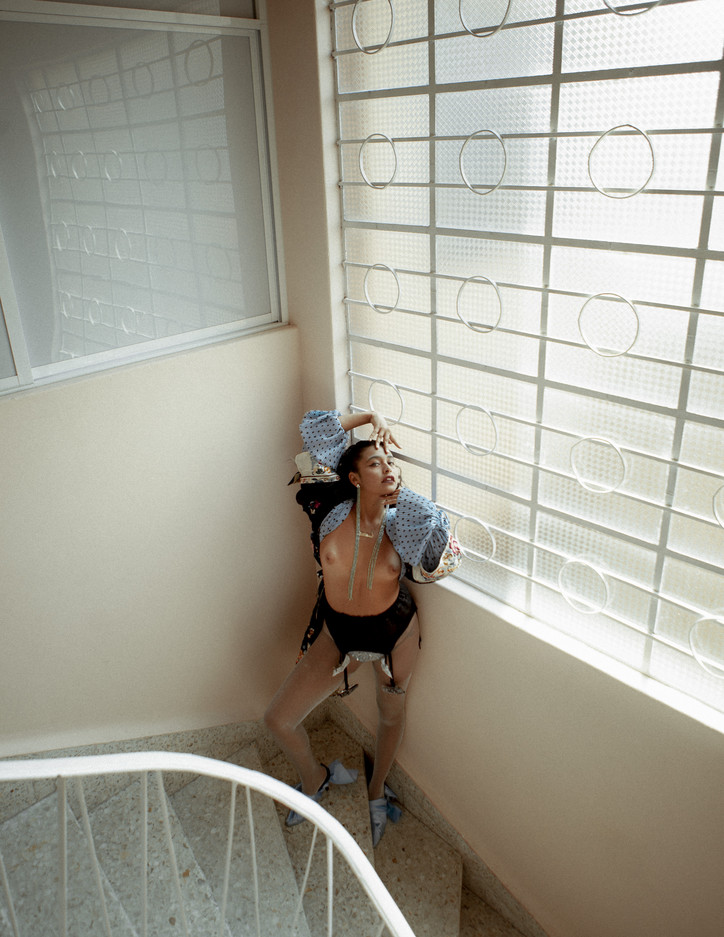
We can see voguing and ball culture has been adapted to Mexican culture—what does it mean to you to be a queer Mexican/Latinx?
La Mendoza: For me, it’s being counter-culture. Mexico’s macho culture is very strong — owning your femme identity when it doesn’t fit within masculine stereotypes can be difficult.
Pony: I think being Mexican has nothing to do with my gender. I’m very proud to be Mexican. I love my cultural roots. Once I heard one of my sisters sing opera in Náhuatl and I realized how rich our country is. I’m from Huásteca Potosina and I love how unique the nature and biodiversity is in our country. I believe a queer person endures discrimination in any country, the stigma is global, just in different intensities.
AKA Overkill: Being queer in Mexico is complicated, especially if you’re not white. Mexican culture is deeply macho, classist, and mysogynist. It’s quite interesting to take this new culture of respect towards the community that’s been globalized and mixing it with the positive aspects of Mexican culture, like its cheeky playfulness and the hood’s culture.
What is the differences you find in other countries’ ballroom culture? Do you deem it important for each community to have their own style and references?
La Mendoza: Every community adapts itself to its needs. In Mexico, that need was to find a space of resistance, a safe space to dance, become in-tune with your body, and simply enjoy. There’s many competitions here but I think Mexico’s scene is more political than anything.
Pony: It’s very normal for each community to find its unique voice. Also for the culture to be shared and for all of us to learn from one another. In Brazil the Balls have a unique style, similar to afro-voguing. The balls in Japan are similarly unique, it’s very enriching that we all make our mark when doing something inspired by a movement that started in another country.
AKA Overkill: The Mexican scene definitely has its own style. A big difference is the finances and visibility enjoyed in other countries. I’d love to see my fellow Mexican voguers have first world budgets to work with. The talent in Mexico City’s on fire!
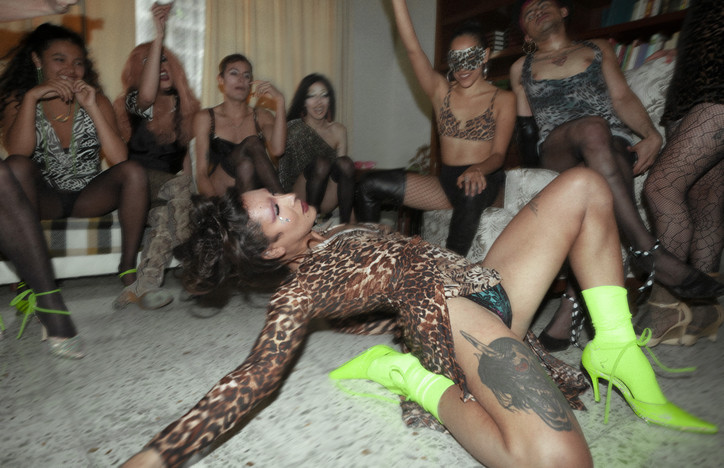
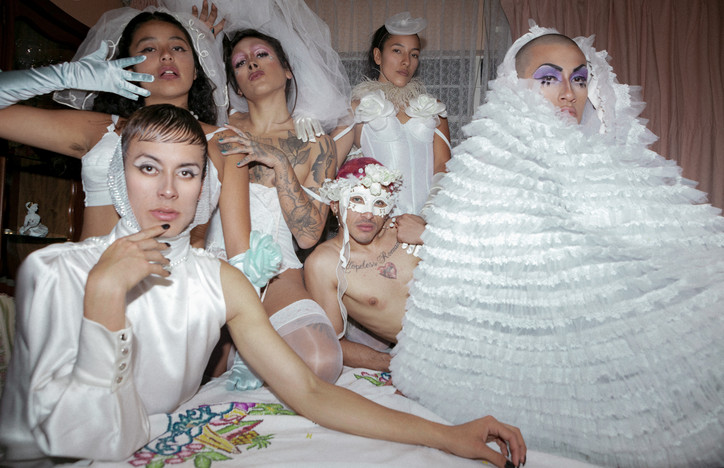
It seems that the newest celebration of artistry comes almost exclusively from oppressed communities with little visibility. Do you agree with this? Why do you think this?
La Mendoza: When one is oppressed what you seek is to create. We’re a very creative community that is always providing mutual support and grows together. Little by little people realize what we’re capable of and become interested. Unfortunately sometimes this visibility can be deemed “exotic” and thus superficial but there’s many people that have genuine interest and support us and that’s badass.
Pony: It’s natural to want to express oneself when one’s limited. It activates one’s imagination, figuring out incredible things in order to communicate.
AKA Overkill: I wholeheartedly agree. When you don’t follow the rules, society can be oppressive and tries to erase you. That causes depression, and many of us seek active ways to combat it with artistic expression. The purest art is born from vulnerability.
Is it dangerous to be openly queer in Mexico City in 2019? What problems are at the forefront of the Mexican queer community today?
La Mendoza: Mexico City is a bubble. There are many parts of the city with relatively safe spaces for the community. Now that I live in a different state I’ve come to see how queer people elsewhere lead their authentic lives behind closed doors, only being able to enjoy the scene online. Thankfully, in Mexico City, there are many events in which the creative community at large supports us and lifts us up.
Pony: Right now there’s a deeply concerning problem of kidnapping and disappearing of women. Especially in the subway, it’s been happening a lot—the murder of trans women in Mexico. You’d think that it’s not dangerous because there’s just so many people and most don’t care if you don’t pass as cisgender, but since it’s such a large city there are also really bad, homophobic people that have it in them to hurt you and even kill you.
AKA Overkill: If the mere day-to-day life in Mexico City is dangerous, deciding to live as a visibly queer person and to work in nightlife exacerbates the risk. The topics that worry me the most is gender education and sexual health.
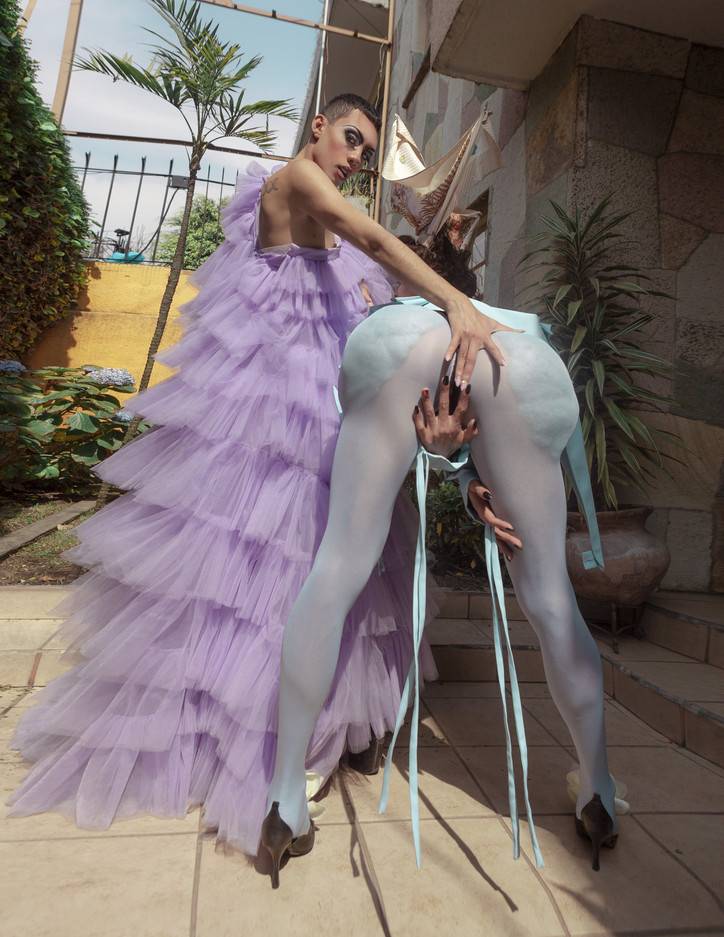
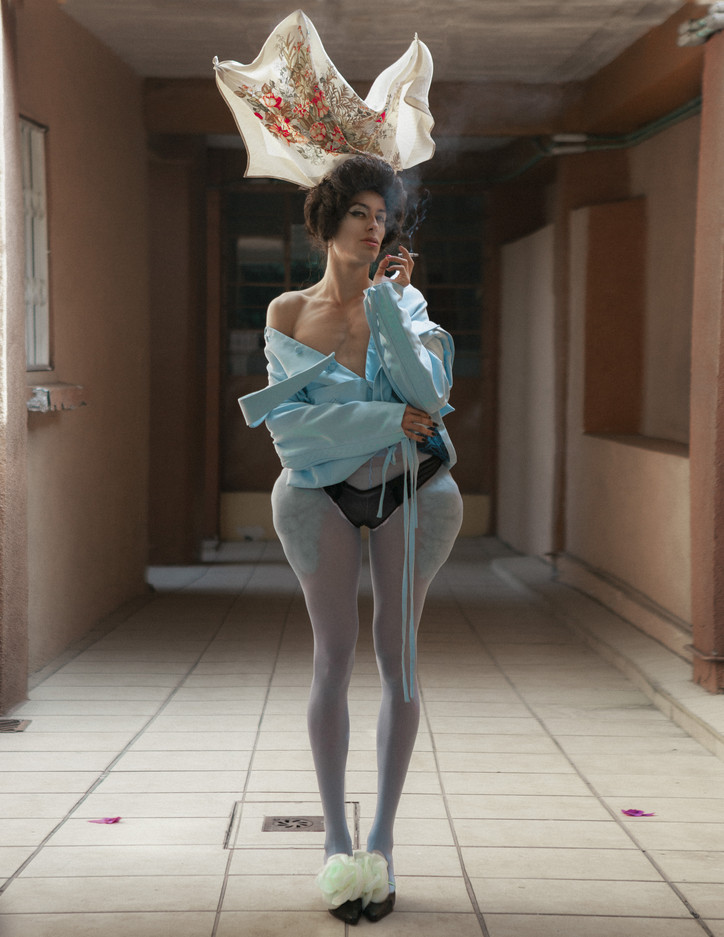
What’re the effects of machismo in Mexico?
La Mendoza: Machismo runs deep in Mexico and it threatens to destroy us constantly. The worst is that aggression toward femmes is a pillar of machismo. It sees femmes as vulnerable and worthless.
Pony: It’s a social construct deeply rooted in Mexico’s culture and it affects everyone who visually appears femme. Every day women disappear throughout the country, imagine the deep implications of that.
AKA Overkill: Machismo permeates everything, the only thing I can say about it without breaking down in tears is to implore people to keep an open mind and have respect toward all people.
What’s the power of makeup and hair today?
La Mendoza: Drag is very popular now. It’s breaking down gender barriers, so now makeup can be used by anyone and I think it’s because it allows you to attain the fantasy of becoming who you’ve always dreamed of.
AKA Overkill: Hair and makeup are what fill my moments of loneliness and transform them into moments of expression. For me, it’s one of the most transformative, powerful, and spiritual vocations.
What’re your essential beauty products?
Pony: I prefer homegrown health products. I love herbalism and make my own creams and masks. I learned a lot from witches. I recently found a generic brand in a Mexican pharmacy that’s worked wonders.
AKA Overkill: I can’t get enough from Smashbox’s primers and “Glow Duo” from City Color.
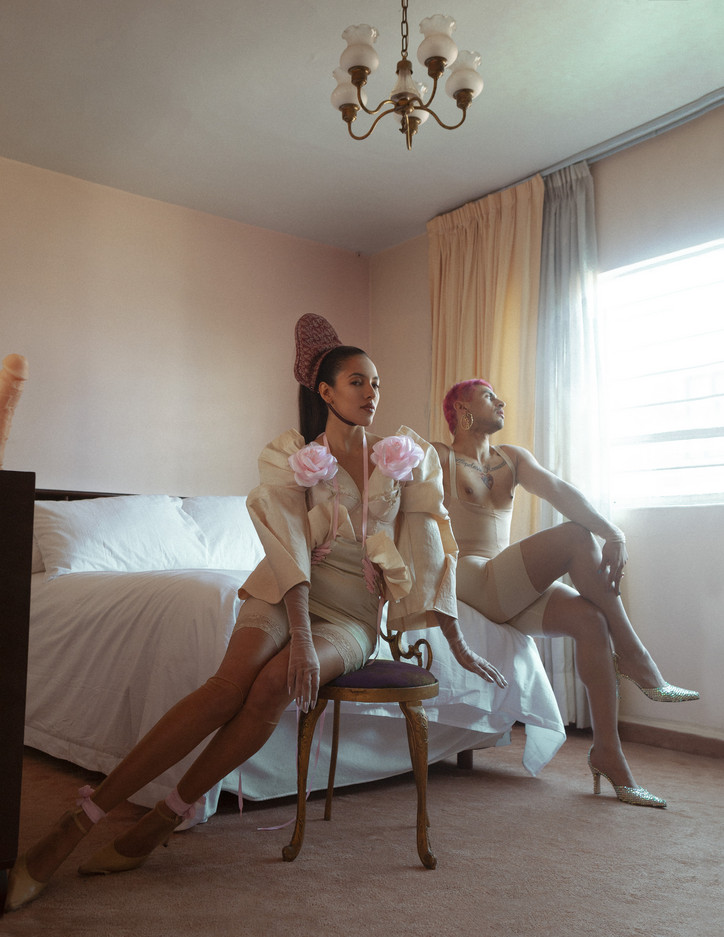
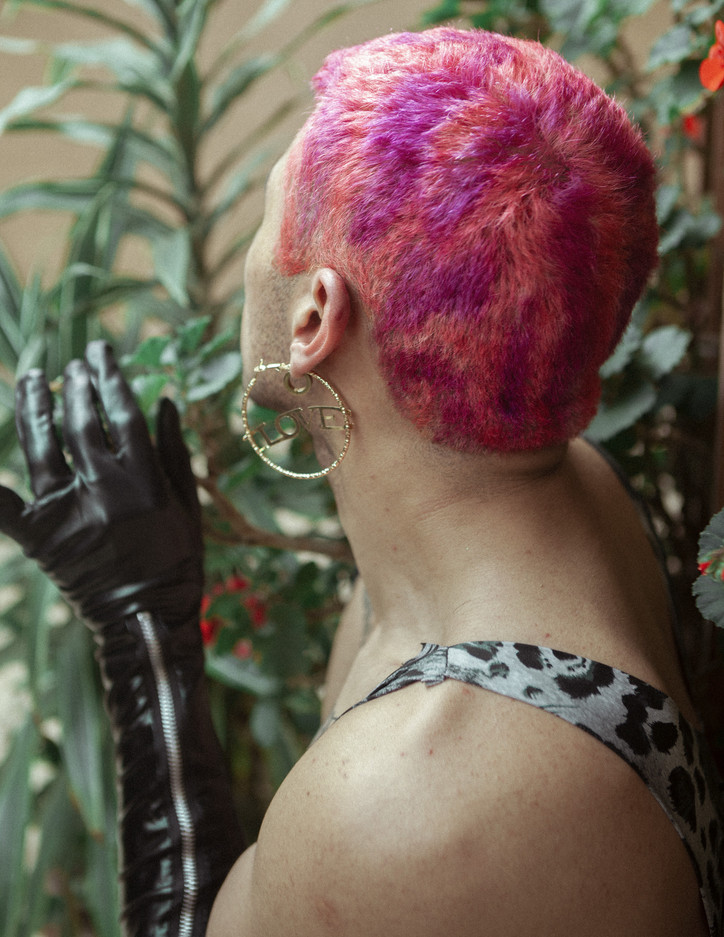
Original Spanish interview:
¿Cómo comenzó ´House of Mamis´? “La casa de las Mamis” ¿También es literal una casa?
La Mendoza: La casa comenzó cuando yo me salí de House of Apocalipstick en el 2017. House of Mamis no es literal una casa, antes sí, cuando yo vivía en Ciudad de México mi departamento era el punto de reunión para todas. Ahora yo me mudé a Mérida y otras también están fuera de la Ciudad, pero seguimos estando en contacto.
Aka Overkill: House of Mamis fue producto de la globalización, la idea del amor y la familia. Primero de manera conceptual uniéndonos a practicar, después una temporada estuvo reinando la familia entre dos o tres departamentos. Ahora hemos tomado rumbos diferentes pero la casa sigue siendo conceptual”
Bajo tu experiencia. ¿Cuál es el significado de ser madre, hija o hermana en 'House of Mamis'?
La Mendoza: Yo llevo el rol de madre. El primer año y medio fue un proceso súper intenso en cuanto a tomar ese rol, era mucha responsabilidad, preocuparme por todas, conseguirles empleo, cocinarles y hacer que conviviéramos. Yo veo por el bienestar de todas.
Pony: Significa lealtad, confianza, empatía, autocuidado y cuidado hacia las demás. Mi familia de núcleo no está conformada por mamá, papá y hermanos. Solo dos hermanos me hablan a mí, otro está peleado con mi papá, etc. A mi familia yo integré a Mendoza, Rio y a Luisa que son personas que se preocupan por mí aún estando lejos. Se trata de crear tu familia con las personas que quieren estar contigo.
Aka Overkill: Tener empatía por alguien que decides sea tu familia no es lo más fácil. Cuando tienes el papel de madre o hermanx sientes mucha responsabilidad por el bienestar de los demás integrantes de la casa.

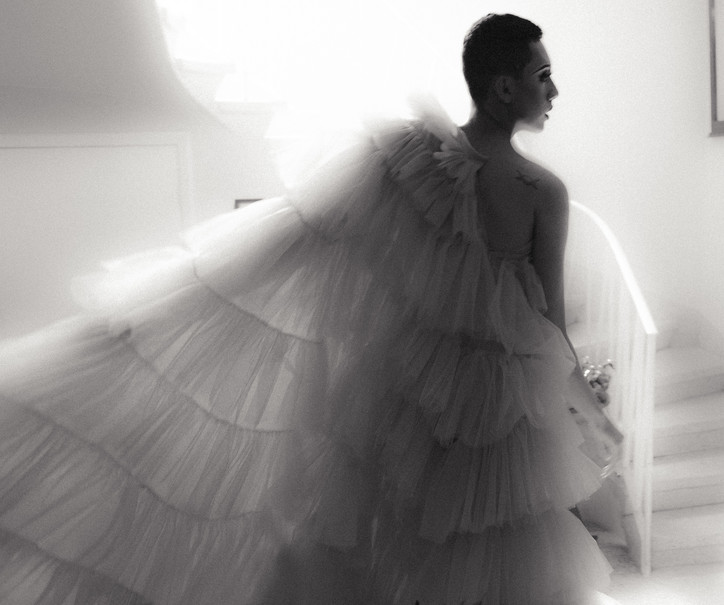
¿Cómo funciona la escena del Voguing actualmente en México? ¿Tienen balls con categorías similares a “Paris is Burning”?
La Mendoza: Hay distintas casas y se organizan varios balls en Ciudad de México y ahora en ciudades como Guadalajara, Monterrey o Mérida. La comunidad está creciendo y cada vez hay más gente interesada. Hay dos tipos de casa, las Kiki House que son de esparcimiento y las Mainstream House que están reconocidas a nivel Ballroom o de competencia. Las categorías que más se caminan aquí en México son Vogue Femme, Runway, Old Way y Sex Siren; esta última es una categoría muy específica del Ballroom mexicano adaptada a nuestra cultura latina o mexa.
Pony: Paris is Burning es la mejor referencia para saber cómo empezó este movimiento. Fuera de ese documental ya existe una historia de gente icónica en esa escena que han venido a México a compartirnos sus reglas y cultura. En nuestros balls hay un tema, hay categorías, hay un chanter y hay batallas. En la Ciudad de México ya somos varias casas y la comunidad del voguing sí está en constante movimiento.
Aka Overkill: Hay eventos, Kiki Balls para ir a conocer o experimentar y Balls para competir. En realidad la escena va madurando. Hemos aprendido de todos los países con drama pero también con mucho cariño.
¿Cómo es la relación entre las diferentes casas de Voguing en México?
La Mendoza: A veces hay mucho drama sobre todo en la Ciudad de México. Ahorita nos estamos cuestionando mucho sobre cosas políticas o sobre apropiación cultural. Las escenas nuevas o frescas se apoyan mucho para poder generar comunidad.
Pony: Es una relación de hermandad. Al principio hubo riñas, desacuerdos y diferencias, creo que era natural porque todos estábamos aprendiendo, todos querían dar su opinión y poco a poco nos pusimos de acuerdo. Claro que en la competencia siempre habrá quién no esté de acuerdo con algo pero cada vez existe mayor amistad y apoyo entre todas.
Aka Overkill: La mayoría mantiene una relación cordial. Creo que casi todos tienen muy claro donde están parados al momento de coexistir en Balls. El ego y el poder es lo que genera enemistades entre algunos.
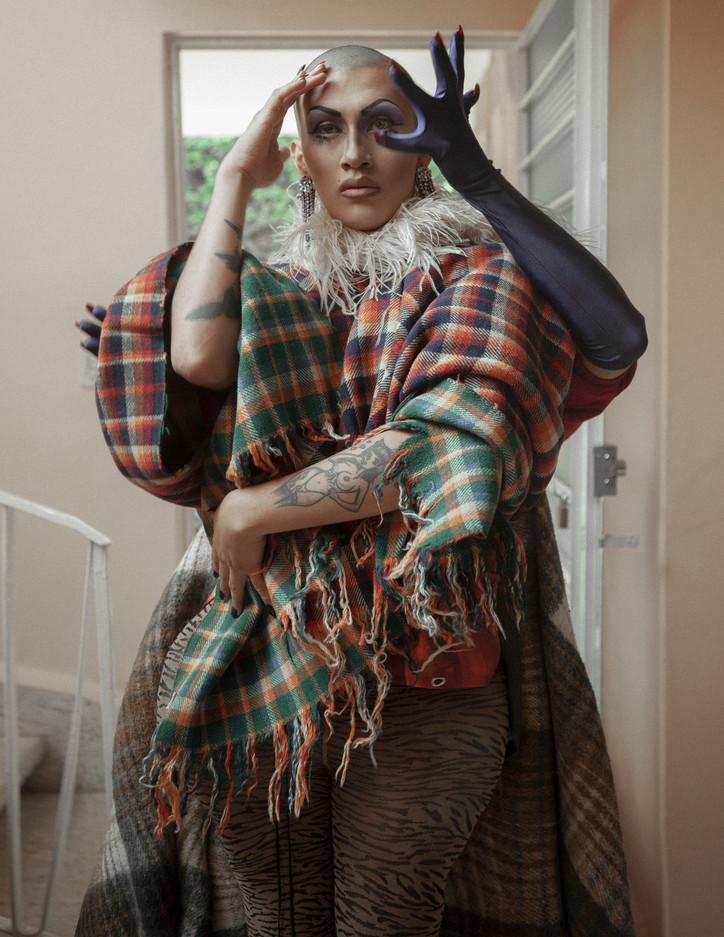
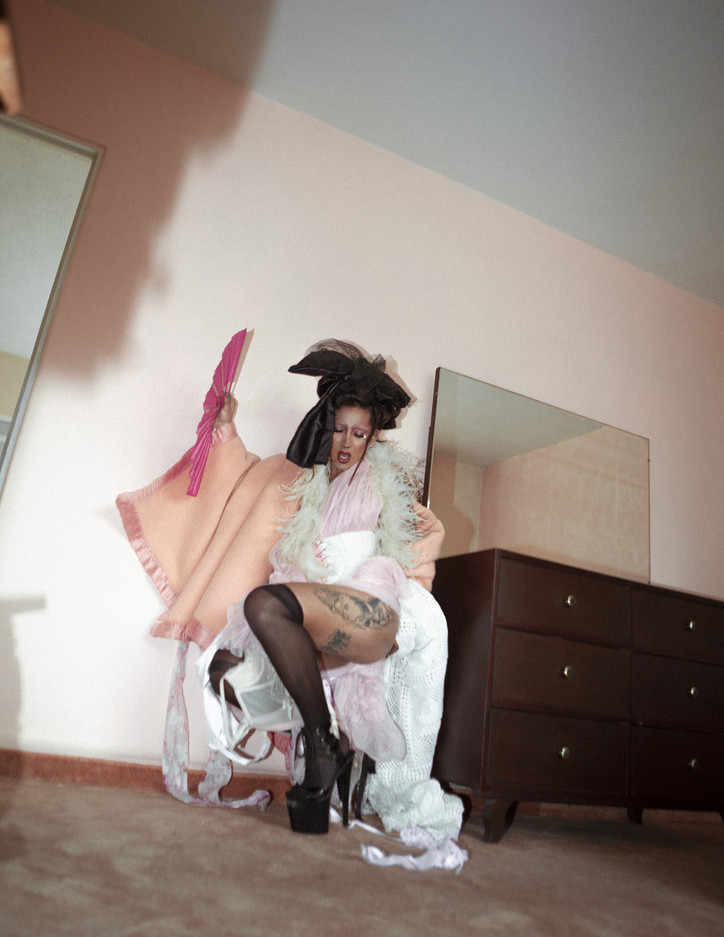
Podemos imaginar que el Voguing ha sido adaptado en México alrededor de su cultura ¿Qué significa para ti ser mexicano/ latino queer?
La Mendoza: Para mi es ir contracorriente. La cultura de machismo en este país es muy fuerte y reconocerte con una identidad femenina que no encaja en los estereotipos de masculinidad es algo difícil.
Pony: Creo que ser mexicano no tiene nada que ver con mi género. Estoy muy orgulloso de ser mexicano, amo mis raíces y mi cultura. Una vez escuché a una de mis hermanas cantar ópera en náhuatl y me di cuenta de lo rico que es nuestro país. Yo soy de la Huásteca Potosina y amo la naturaleza tan única que existe en este país. Yo creo que una persona queer siente discriminación en cualquier país, el estigma es a nivel mundial a diferentes escalas.
Aka Overkill: Ser Queer en la cultura mexicana es complicado, más si eres de piel morena. Gran parte de la cultura mexicana es machista, clasista y misógina. Es muy interesante tomar esta cultura nueva de respeto a la comunidad que se ha globalizado y mezclarla con lo bueno de la cultura mexicana, por ejemplo la picardía y el ritmo de sus barrios.
¿Cuál es la diferencia que encuentras con la escena en otros países? ¿Consideras importante que cada comunidad busque tener su propio estilo o referencias?
La Mendoza: Creo que cada comunidad va adaptándose a sus propias necesidades. En México se dio como un espacio de resistencia, un espacio seguro para el baile, el goce y reconocer tu cuerpo. Sí se hacen competencias aquí pero siento que en México está aún más política la escena.
Pony: Claro, es normal que todo se tropicalice. Que la cultura se comparta y aprendamos todos de los demás. En Brazil los balls tienen un estilo único, ves algo similar al afro-voguing, los balls en Japón igual son únicos, es muy enriquecedor que todos le pongamos nuestro sello al hacer algo inspirado en un movimiento que surgió en otro país.
Aka Overkill: La escena mexicana tiene su propio estilo. La diferencia principal es la diferencia de economía y visibilidad a comparación de las de otros países. Me gustaría que mis vogueras mexicanas tuvieran presupuesto de primer mundo para poder presentarse. Porque el talento tiene a CDMX en llamas.
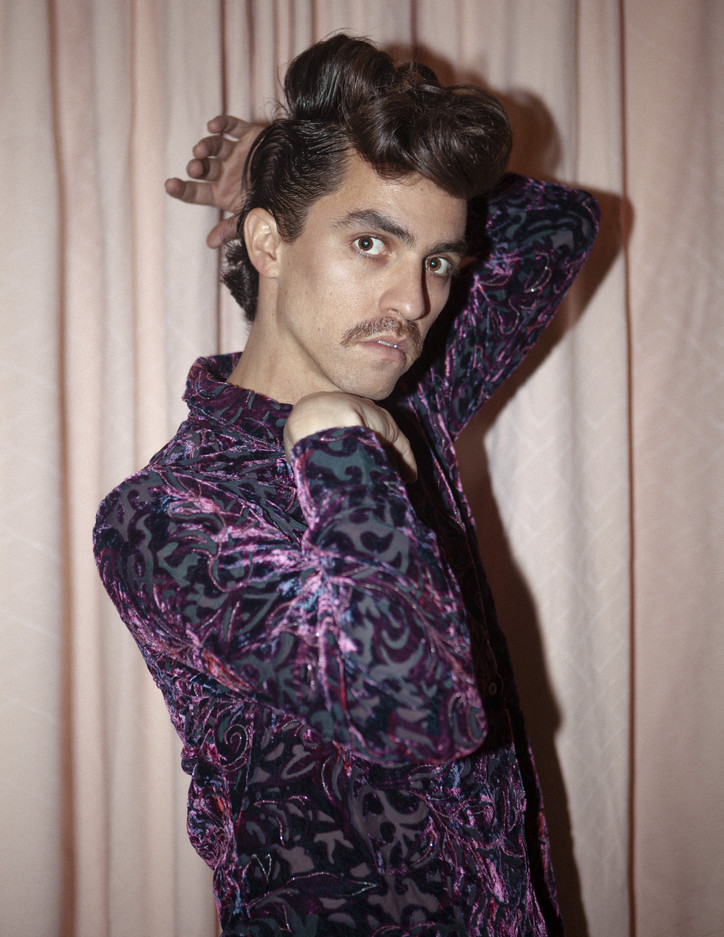
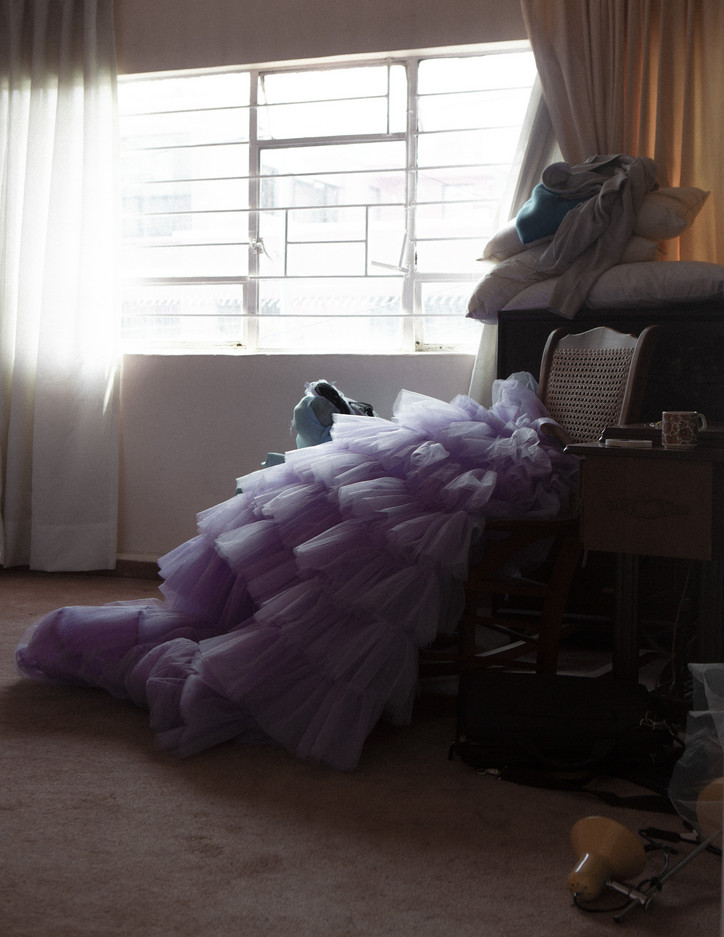
A veces siento que la mejor expresión artística al menos en la modernidad viene de comunidades oprimidas y no visibilizadas. Estás de acuerdo con esto? Porqué piensas esto?
La Mendoza: Cuando estás oprimido lo que buscas es crear. Somos una comunidad muy creativa que todo el tiempo estamos pensando en apoyarnos y seguir creciendo juntos. Poco a poco la gente se va dando cuenta de lo que somos capaces de hacer y se interesan, algunas veces de mala forma viéndonos como algo “exótico” pero hay muchas personas que sí se acercan para apoyarnos y eso está muy chido.
Pony: Creo que es natural el expresarnos y cuando alguien es limitado esa persona activará más su imaginación haciendo cosas increíbles para comunicarse.
Aka Overkill: Estoy muy de acuerdo. Cuando no sigues las reglas, la sociedad puede ser opresiva y tiende a borrarte. Esto genera depresión, y muchos buscamos maneras asertivas de combatirla, que mejor que con expresión artística. El arte más puro proviene de lo vulnerable.
¿Qué tan peligroso es ser abiertamente queer en la Ciudad de México en el 2019? ¿Cuáles son los temas que preocupan actualmente a la comunidad de CDMX?
La Mendoza: Creo que la CDMX es una burbuja pues hay muchas colonias con espacios relativamente seguros para la comunidad. Ahora que vivo en otro Estado me doy cuenta que la comunidad queer aquí viven resguardados en sus casas, viendo la escena desde el internet. Y en la Ciudad de México sí hay muchos eventos en los que la comunidad creativa nos apoya y nos respalda.
Pony: A través de mis amigos veo que en este momento preocupa la desaparición y el secuestro de las mujeres, sobre todo en el metro que ha estado sucediendo bastante, los asesinatos de mujeres transexuales en el Estado de México. Pareciera que no es peligroso porque hay tanta gente y a muchos no les importas, pero al ser una ciudad tan grande también existe gente muy mala que es homofóbica y pueden llegar hasta matarte.
Aka Overkill: Si ya vivir en la Ciudad de México puede ser peligroso, decidir vivir como persona queer y trabajar en la vida nocturna conlleva un triple riesgo. Los temas que preocupan son educación de genero y prevención de salud sexual.
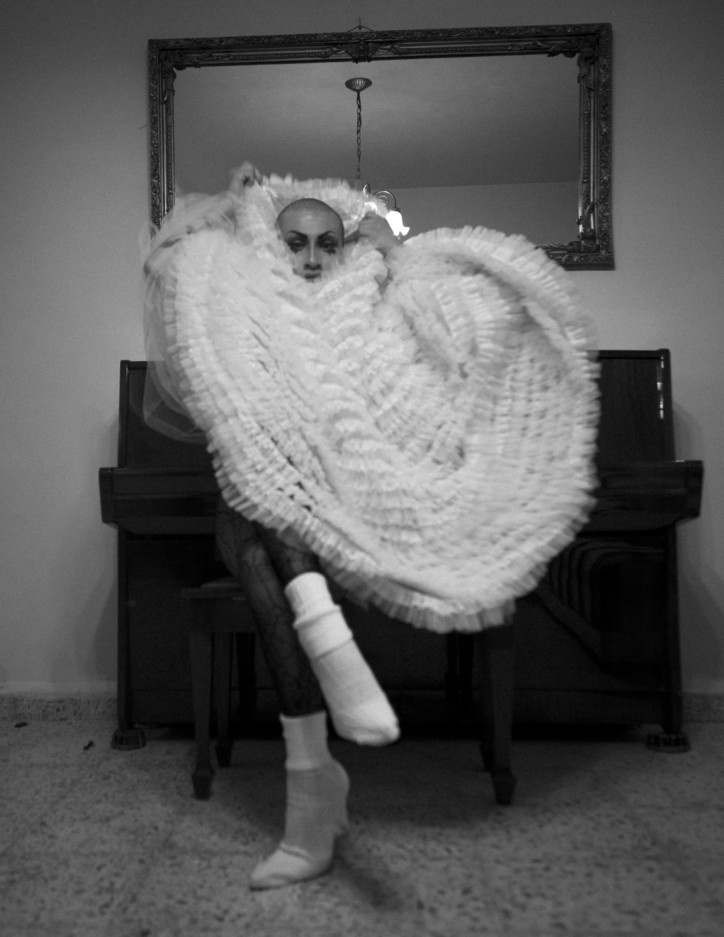

¿Cómo afecta el machismo a México?
La Mendoza: Lo cargamos mucho al ser mexicanos e intenta deconstruirnos todo el tiempo. Lo grave es que bajo el pensamiento machista es que ataca a las entidades femeninas, las piensa vulnerables y sin valor.
Pony: Es una construcción social ya muy arraigada en nuestro país y nos afecta tanto que lo femenino es agredido a nivel físico. Cada día desaparece una mujer en el país, imagina cómo afecta esto.
Aka Overkill: Afecta en todo sentido, lo único que puedo decir sobre esto sin ponerme a llorar es que sean abiertos de mente, tengan criterio propio ante cualquier persona.
¿Cuál es el poder del maquillaje y del peinado en el mundo actual?
La Mendoza: El drag es muy popular ahora. Se están rompiendo las barreras de género, el maquillaje puede ser usado por cualquiera y creo que es porque puedes lograr esa fantasía de ser quién sueñas.
Aka Overkill: El maquillaje y el peinado es lo que llena mis ratos de soledad para convertirlos en expresión. Es para mi una de las ocupaciones mas poderosas, transformadoras y espirituales.
- Production and Casting: In The Park Productions
- Director of Photography for Video: Rodrigo Alvarez
- Video Editor: Alan Aldana
- Production Assistant: Ricardo Arenas
- Queens: La Mendoza, Pony, Aka Overkill, Athenas, Dalia, Negraconda, Rio, La Patrona, Alexia

